
Top PhD in Nursing Programs
What is a ph.d. in nursing.
- Ph.D. in Nursing vs DNP
- Types of Programs
- Top Programs
- Program Overview
- Is a Nursing Ph.D. For Me?
The Ph.D. in Nursing degree opens career opportunities for nurses as researchers, forging new and cutting-edge nursing practices for future generations. This article explores this terminal nursing degree, how to get it, and the top Ph.D. in Nursing programs.

A Ph.D. in Nursing is the highest degree awarded to nurses and one of two terminal nursing degrees. Ph.D. stands for Doctor of Philosophy, and Ph.D. in Nursing programs focus on evidence-based research.
Throughout their 4-6 year study, nursing Ph.D. students learn how to conduct, analyze, and publish nursing research. The degree culminates in students conducting an independent research project and writing a dissertation on it.
Ph.D. in Nursing and DNP Differences
A Ph.D. in Nursing and a Doctor of Nursing Practice (DNP) are both terminal nursing degrees. However, comparing a DNP vs. a Ph.D. in Nursing reveals distinct differences. Notably, the Ph.D. in Nursing prepares you for a science, academic, or research-focused career as opposed to a clinical one.
Popular Online Doctor of Nursing Practice (DNP) Programs

GCU's College of Nursing and Health Care Professions has a nearly 35-year tradition of preparing students to fill evolving healthcare roles as highly qualified professionals. GCU offers a full spectrum of nursing degrees, from a pre-licensure BSN degree to a Doctor of Nursing Practice (DNP) program.
Enrollment: Nationwide
- DNP - Educational Leadership

At Purdue Global, discover a faster, more affordable way to earn your Nursing degree. Purdue Global is committed to keeping your tuition costs as low as possible and helping you find the most efficient path to your degree.
Enrollment: Nationwide, but certain programs have state restrictions. Check with Purdue for details.
- MSN-to-DNP Path
- MSN-to-DNP - Family NP
- MSN-to-DNP - Psychiatric Mental Health NP
- MSN-to-DNP - Adult-Gerontology Acute Care NP
- MSN-to-DNP - Adult-Gerontology Primary Care NP
- Certificate - Family NP Primary Care Postgrad
- Certificate - Psychiatric Mental Health NP
- See more Purdue nursing programs

Earn your DNP online, at your own pace, with FlexPath, our award-winning learning format. The faster you move, the more you save. Shape systems of care, solve complex health care problems, and educate future generations of nurses. No GRE required.
Enrollment: Nationwide, but certain programs have state restrictions. Check with Capella for details.

Enrollment: Nationwide, excluding NY and WA.
- DNP - Family NP
- DNP - Adult Gerontology Acute Care NP
- DNP - Nurse-Midwifery/Women's Health NP
- DNP - Women's Health NP

- DNP - Psychiatric Mental Health (Post-MSN)
- DNP - Psychiatric Mental Health NP (Post-BSN)

Key Ph.D. in Nursing vs. DNP Differences
| Evidence-based research and scientific inquiry | Advanced nursing care and practices, specialty skills, and healthcare leadership | |
| 4-6 years | 3-4 years | |
| Most Ph.D. in nursing jobs will not require further certification | DNPs with an advanced practice specialty will need board certification in their field of practice. | |
>> Related: Top Online DNP Programs
Types of Ph.D. in Nursing Programs
The United States is home to over 135 Ph.D. in Nursing programs, which you can attend in multiple formats at nearly every educational level. The types of Ph.D. in nursing programs include the following:
- BSN to Ph.D. in Nursing: These Ph.D. in nursing programs allow nurses with a Bachelor of Science in Nursing (BSN) degree to pursue a career in nursing research without first attending an MSN program.
- MSN to Ph.D. in Nursing: Designed for Master of Science in Nursing (MSN) trained nurses, these programs typically include core courses for the doctoral program, electives, and dissertation study.
- DNP/Ph.D. Dual Degree: These rigorous programs allow students to concurrently attain expertise in scientific inquiry and faculty practice and hone the practical skills of expert nurse clinicians.
>> Show Me DNP Programs
Online Ph.D. in Nursing Programs
Are Ph.D. in Nursing programs available online? The answer is yes; you can find several online options to pursue this degree. Since a Ph.D. in Nursing focuses on scientific inquiry, it doesn't have the same onsite practical hours as other nursing degrees.
Program dependant, you may still need to show up on campus a few times each year. However, for the most part, all you need to earn a Ph.D. in nursing is Wi-Fi, good study habits, and determination.
Top Ph.D. in Nursing Programs
Each Ph.D. in Nursing program is unique, offering its own benefits and features. We assembled the top five Ph.D. in Nursing programs nationwide following Nurse.org's proprietary ranking algorithm , which considers and ranks schools based on factors like:
- Tuition costs
- Program length
- Nursing school accreditation
- Admission requirements
- The variety of available programs
- Additional program accolades
1. University of Pennsylvania
- Program Cost: $46,934 per academic year
- Program Length: 4-6 years
- Application Due Date: Dec. 1st
The University of Pennsylvania boasts one of the top Ph.D. in nursing programs nationwide. To offset the expensive tuition, the university offers full-time students stipends during their first four years. In exchange, students may work as Teaching Assistants within UPenn's School of Nursing for up to 16 hours a week.
Contact UPenn about this program:
- Phone: (215) 898-4271
- Email: [email protected]
Source: University of Pennsylvania
2. Duke University
- Program Cost: Fully funded (up to 5 years)
- Application Due Date: November 30th
In 2023, U.S. News & World Report named Duke University the second-best graduate school for nursing. Duke's Ph.D. in Nursing program prepares nurses to become stalwart scholars. Graduates will build nursing science by leading multidisciplinary research that determines the relationship between chronic illness and care systems.
Contact Duke University about this program:
- Phone: (919) 684-3786
- Email: Contact Request Form
Source: Duke University
3. Duquesne University
- Program Cost: $1,765 per credit
- Program Length: 3-4 years
- Application Due Date: February 1st
As the first fully online Ph.D. in Nursing program, Duquesne offers a highly flexible education option to many students nationwide. Additionally, students attending the program may get to study abroad at the Duquesne campus in Dublin, Ireland. The 56-credit program culminates in a dissertation proposal and final defense in which students orally defend their research thesis to the dissertation committee.
Contact Duquesne University about this program:
- Phone: (412) 396-6219
- Email: [email protected]
Source: Duquesne University
4. Columbia University
- Program Cost: Fully funded (up to 3 years)
- Application Due Date: November 15th
Ph.D. in Nursing student at Columbia choose one of three major areas to study, which include Theoretical Foundations of Nursing Science, Analytical Foundations of Nursing Science, and Electives and Applications. The programming heavily focuses on publication, grantsmanship, presentation, and networking. In addition to their coursework, students participate in research experience and training.
Contact Columbia University about this program:
- Phone: (212) 305-5756
- Email: [email protected]
Source: Columbia University
5. Rush University
- Program Cost: $1,344 per credit hour
- Program Length: 3-5 years
- Application Due Date: March 4th
Rush University's Ph.D. in Nursing is fully online except for an on-campus orientation and summer intensive learning sessions. The program focuses on preparing nurses and non-nurses with graduate degrees to become leaders in clinical research and educators who influence healthcare policy. While many students keep working throughout the program, they often must take fewer hours while completing their dissertation.
Contact Rush University about this program:
- Phone : (312) 942-7100
- Email: [email protected]
Source: Rush University
What to Expect in a Ph.D. in Nursing Program
Nursing Ph.D. degrees focus on scholarship and nursing research. By the end of the course, you'll be able to conduct and publish evidence-based research that can alter the face of nursing practice and healthcare policy for future generations.
Generally, these educational pathways combine graduate study and research activities and do not include clinical rotations. Instead, you will be required to complete a long-form research paper called a dissertation. To write your dissertation, you'll complete independent research based on a significant and relevant scientific inquiry in the nursing field.
>> Related: The Best Nursing Research Topics
What Can You Do With a Ph.D. in Nursing?
Ph.D. in Nursing programs prepare graduates to pursue careers in research and teaching, advanced clinical practice, health care administration, and policy. Following graduation, your future may hold a career as a nurse scientist, as an administrator, as a nurse educator, or in establishing health policy.
Ph.D. in Nursing Salary
Healthcare workers who hold a Ph.D. in nursing earn an average annual salary of $100,00 or $60.45 per hour , according to Payscale . However, your nursing salary will vary depending on your career, employer, location, experience, and other relevant factors.
How Much Does a Ph.D. in Nursing Degree Cost?
Ph.D. in nursing programs range from $400 to over $2,300 per credit hour at more distinguished institutions. However, several universities will fund your Ph.D. tuition itself or through a federal research grant. Most often, these funding opportunities are only available to full-time students, while part-timers must pay the full tuition costs.
How Long Do PhD in Nursing Programs Take?
Most Ph.D. in nursing programs take between 4-6 years to complete. Your educational timeline will vary based on your previous education and whether you attend full or part-time.
What Will You Learn in a PhD in Nursing Program?
Since all Ph.D. degrees in nursing emphasize healthcare research, their curriculums will all share certain core elements, which include:
- The philosophical and historical foundations of nursing knowledge
- Review of existing and evolving nursing theory
- Methods and process of developing theory
- Research methodology and data management
- Academic, research, practice, and policy development
Your graduate nursing program will consist of several key milestones to reinforce your education. These include:
- Leadership strategies related to nursing, healthcare, and research
- Mentorship and working alongside faculty on their individual research programs
- Immersion experiences are designed to encourage leadership and scholarship.
- Each student will be required to complete a dissertation.
Ph.D. in Nursing Program Requirements
Each university sets its own entry standards, which vary based on the type of program . However, general Ph.D. in nursing admission requirements include the following:
- BSN, MSN, or non-nursing graduate degree
- Personal research statement
- A minimum GPA of 3.0
- Admissions interview
- Writing sample
- Resume or curriculum vitae
- Letters of recommendation
- Unencumbered RN license
- Official post-secondary school transcripts
- TOEFL or IELTS scores
Is a Ph.D. in Nursing Degree Right for Me?
Your professional goals play a massive role in deciding whether to pursue a Ph.D. in nursing. If you're interested in scientific and academic nursing research, healthcare policy, or becoming a nurse educator, a Ph.D. in nursing is an excellent option. Remember, it will not qualify you for APRN positions, so if you have clinical aspirations, a DNP is the right doctoral nursing option.
Next Steps to Enroll in a PhD in Nursing Degree Program
Ready to start your educational journey toward earning a Ph.D. in Nursing? You can start working toward those goals today with these simple steps:
- Research Universities: Find a program that suits you based on your budget, attendance needs (e.g., part vs. full-time and in-person vs. online), and interests.
- Plan Applications: Understand the program requirements and application deadlines for each school you're applying to. Then, make a plan to collect and submit all the necessary materials and documentation on time.
- Prepare Properly: If a university considers you for Ph.D. candidacy, you'll attend an admissions interview. Planning and practicing this interview and paying close attention to why you chose the program and your research interests will optimize your chances of admission.
- MSN-to-DNP - Family NP Primary Care

Plus, get exclusive access to discounts for nurses, stay informed on the latest nurse news, and learn how to take the next steps in your career.
By clicking “Join Now”, you agree to receive email newsletters and special offers from Nurse.org. We will not sell or distribute your email address to any third party, and you may unsubscribe at any time by using the unsubscribe link, found at the bottom of every email.
PhD Program in Nursing
Phd program in nursing goals.
The PhD Program in Nursing prepares nurse scholars who will advance nursing science and promote equitable health outcomes and care systems, with a focus on social determinants of health (SDOH). Students will acquire the knowledge and skills necessary to design, implement, and evaluate innovative models of care that improve health outcomes across diverse populations. Graduates of the program will be prepared to lead and transform nursing practice, policy, and research to promote health equity and social justice. PhD student tuition and 12-month stipends are fully funded for up to five years.
At Duke University School of Nursing we admit a small number of highly qualified, diverse applicants that work closely with one or more faculty members in a series of mentored experiences supported by formal coursework.
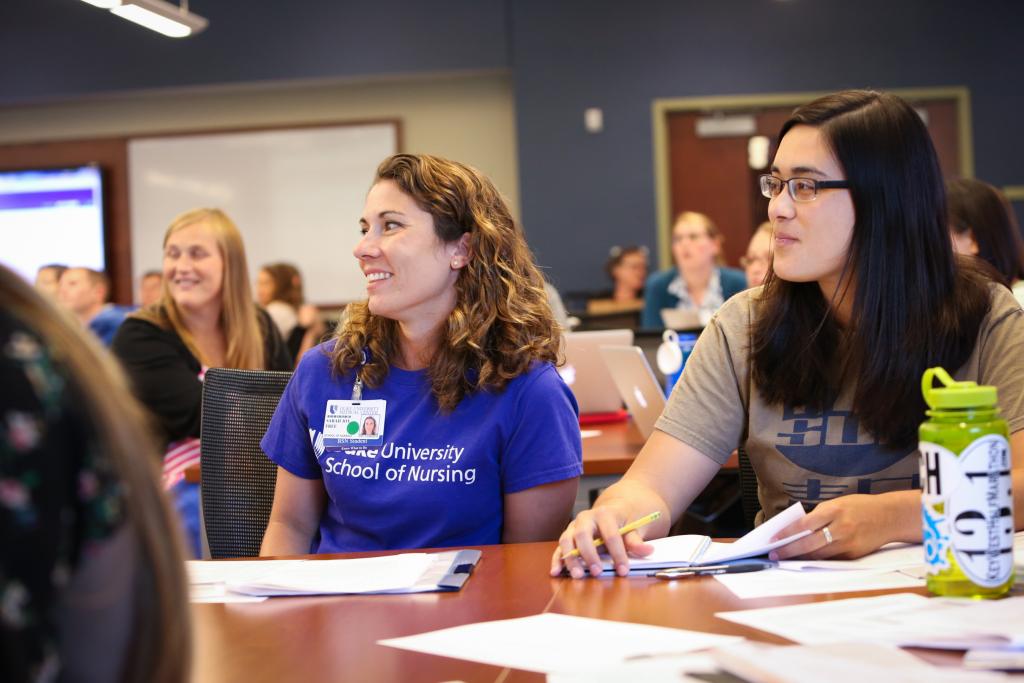
PhD Academic Calendar
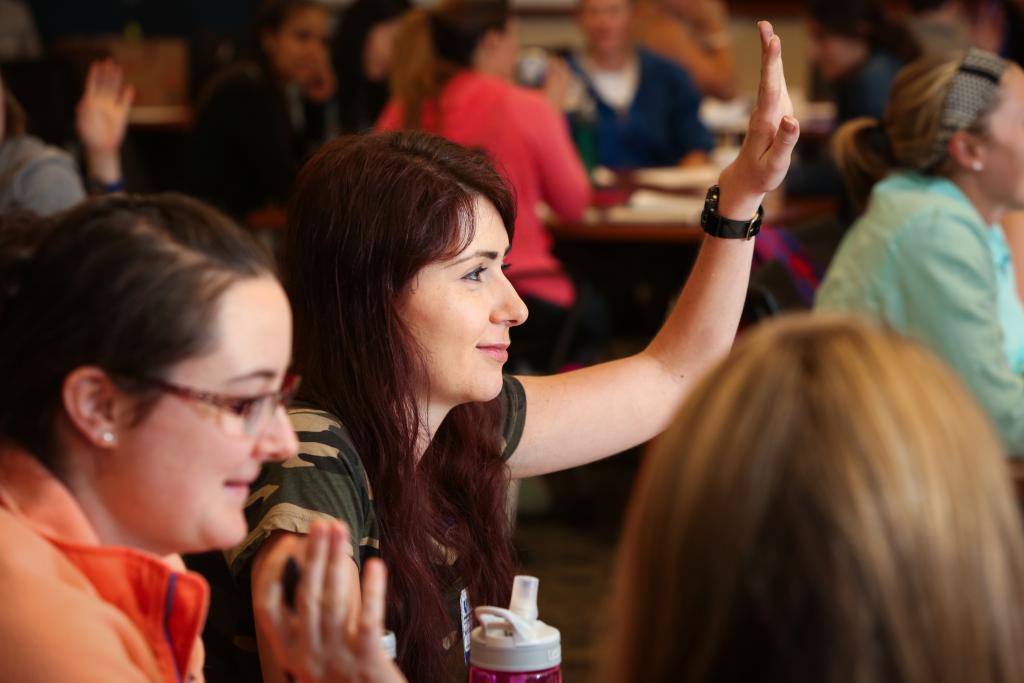
PhD Admissions

PhD Financial Support

Current Research Grants

What Makes Duke Great?

Reasons to Choose Durham
Your work with our faculty will:
Socialize you to the role of nurse scientist;
Ensure you gain significant knowledge and acquire the skills for launching a successful independent program of research post-doctorate; and
Prepare yourself for an entry-level role as a nurse scientist in a research setting (e.g., academic, clinical, or industry).
To help our students succeed, the Duke School of Nursing PhD Program provides:
A broad perspective on the philosophy of science and its application to solving challenging health problems facing our nation, particularly those related to health equity, social determinants of health, and justice;
Experience with standard and emerging research designs and methods;
Rigorous training in statistics; and
Mentored research and teaching experiences to reinforce knowledge acquisition and skill development.
In addition to addressing the standards of Duke University and ensuring the highest-quality PhD education, the Duke PhD Program in Nursing is designed to meet the indicators of quality in research-focused doctoral programs set forth by the American Association of Colleges of Nursing.
Study with Duke expert faculty focused on:
Acute & Long-Term Care Systems
Adaptive Leadership
Data Science
Digital Health
Decision Making
Disease Prevention
Family Caregiving
Health Equity
Informatics
Mental Health
Multi-level Interventions
Nurse-led Models of Care
Palliative and End-of-Life Care
Perioperative Care
Social Determinants of Health
Symptom Management
Specialty Populations
Premature and High-Risk Infants
Children with Acute and Chronic Illnesses
Adults with HIV, Hepatitis C, Diabetes, Sickle Cell Disease, Cancer, or Cardiovascular Disease
Older Adults
PhD Program in Nursing Description
The program requires a minimum of 52 credit hours of graduate coursework. Students will work on research projects; it is expected most will graduate with several publications. Coursework is structured with a substantive core of nursing science and research methods to be taken in the School of Nursing. This core is expanded with elective courses that typically support the student’s dissertation and future research career. These can be taken in other Duke University departments or other Universities that have arrangement with Duke (i.e., University of North Carolina at Chapel Hill, North Carolina State University, North Carolina Central University). Additional requirements include research practicums and elective credits that may count towards specialty certificates (i.e., teaching, global health, data science, entrepreneurship, etc.).
In addition to course work, the PhD Program in Nursing will require each student to develop a scholarly portfolio, successful completion of a preliminary examination, and a dissertation. Students are expected to disseminate their work through scholarly venues such as publications and conference presentations.
Terminal Objectives
After the PhD Program in Nursing, students will be able to:
- Demonstrate advanced knowledge and understanding of health equity, social determinants of health (SDOH), and nurse-led models of care to improve health outcomes for a population and/or system of care.
- Apply conceptual models and theories from nursing and other relevant disciplines to design and conduct research.
- Use a health equity, SDOH, and/or nurse-led models of care lens to critically evaluate and synthesize research conducted in nursing and other disciplines.
- Demonstrate scientific integrity and ethics in research across phases of the research process.
- Apply appropriate methods and analytic strategies to design, conduct, and evaluate research across phases of the research process, from discovery to translation.
- Collaborate effectively with interdisciplinary teams to perform research using socioculturally aligned approaches.
- Disseminate research findings through publications, presentations, and other scholarly venues to advance the evidence base for nursing and healthcare, with a focus on promoting health equity and social justice.
- News & Events
- Faculty & Staff

A world-class city filled with art and culture and an incredible campus that offers cutting edge resources–that’s what students receive at Penn Nursing. And that’s just the start. Penn Nursing and the wider university offer something for everyone, as well as a lifelong community.

Penn Nursing is globally known for educating dynamic nurses—because our School values evidence-based science and health equity. That’s where our expertise lies, whether in research, practice, community health, or beyond. Everything we do upholds a through-line of innovation, encouraging our exceptional students, alumni, and faculty share their knowledge and skills to reshape health care.

Penn Nursing students are bold and unafraid, ready to embrace any challenge that comes their way. Whether you are exploring a career in nursing or interested in advancing your nursing career, a Penn Nursing education will help you meet your goals and become an innovative leader, prepared to change the face of health and wellness.

Penn Nursing is the #1-ranked nursing school in the world. Its highly-ranked programs help develop highly-skilled leaders in health care who are prepared to work alongside communities to tackle issues of health equity and social justice to improve health and wellness for everyone.

Penn Nursing’s rigorous academic curricula are taught by world renowned experts, ensuring that students at every level receive an exceptional Ivy League education . From augmented reality classrooms and clinical simulations to coursework that includes experiential global travel to clinical placements in top notch facilities, a Penn Nursing education prepares our graduates to lead.

Join the challenge!
If 100 donors give any amount to Penn Nursing’s Annual Fund by June 30, we’ll unlock an extra $20,000. Make Your Gift Today!
Doctor of Philosophy in Nursing (PhD)
Our goal is to develop scholars of the discipline of nursing capable of building a program of research that advances nursing knowledge and contributes to the health of individuals, families, and communities.

About the Program
The penn advantage.
Home to some of the most forward-thinking scholars and researchers in the world, Penn offers the opportunity to work alongside faculty who are actively shaping the future of nursing science and healthcare. Our networks and longstanding clinical and community partnerships throughout greater Philadelphia and beyond provide uncommon access to research and practice resources.
Program Information
Program Length
Financial aid available?
Start Semester
Learning Format
Program Details
The program consists of seven core courses, two statistics sequence courses, and five concentration courses; each course is worth one course unit, or CU. Students will take three to four courses each fall and spring semester. Most students complete their coursework within three to four years and then will be on dissertation status until the final dissertation defense.
Click the link below to view the curriculum and sample plan of study for this program on the University catalog.
View the curriculum
Requirements
Minimum qualifications for the program.
Bachelor’s or Master’s Degree in Nursing.
Application Deadlines
Fall 2025 enrollment.
Deadline: December 2, 2024 Decision Notification: mid-February
*Dates subject to change without notice.
Costs & Tuition
We are committed to assisting all full-time PhD students for four years of tuition, fees, living stipend, and health insurance. You may be funded internally or externally, depending on the options available. The doctoral program leadership will determine which funding is most appropriate for all incoming students. Students who choose part-time enrollment are responsible for paying for their own tuition, fees, and health insurance. Learn more about financial aid for PhD students .
The charts below outline costs based on the school year. For full-time doctoral students, after the first five years the reduced rate is charged until the Doctorate degree is awarded, or for a maximum of five additional years.
Full-Time: Fall 2023 & Spring 2024
| Tuition | $41,544 |
| General Fees | $3,802 |
| Technology Fee | $900 |
| Clinical Fee | $688 |
Part-Time Per CU: Fall 2023 & Spring 2024
| Tuition and Fees | $7,706 |
| General Fee | $472 |
| Technology Fee | $114 |
Doctoral Reduced Rate: Fall 2023 & Spring 2024
| Tuition | $5,192 |
| General Fee | $954 |
| Technology Fee | $900 |
| Clinical Fee | $954 |
Program Outcomes
Our doctoral graduates go on to take coveted leadership roles in academia, healthcare, government, and related fields, and are integral to the growth of our profession.
Related Links
Program activities, future-proofing healthcare.
How Penn Nursing’s PhD program is the key to unlocking innovative and equity-focused care and policy.

Frequently Asked Questions
What is the difference between a phd and a dnp.
- Prepares nurse scientists to conduct research, develop the scholarship needed to advance the body of nursing knowledge, guide the practice of nursing, assume leadership in nursing and health care organizations, and participate in the development of social and health policy
- Methods and theories used to guide research
- Grant writing skills
- Technology used in research
- Statistical & other analytical methods
- Research traditions & methodologies
- Faculty role development
- Cognate areas of interest to guide research
- Clinical Requirements – No
- Research Requirements - Faculty guided research residency hours working on an established research project(s) to hone selected research skills
- Final Product - Original research project that makes a significant contribution to the science of nursing
- Academic faculty position which includes research, education, and service roles
- Research Scientist for healthcare organizations, industry or government agencies
- Principal Investigator on extramural research grants
- Leadership positions in health organizations, industry and government agencies
- Government advisor on health policy
- Purpose - Prepares expert clinical scholars to perform direct clinical practice, translate, disseminate and integrate evidence-based research into clinical practice and improve quality of health outcomes for individuals, populations and systems.
- Advanced clinical practice
- Clinical scholarship skills
- Technology used in practice
- Analysis of clinical outcomes
- Evidence-based practice
- Leadership role development
- Rural and underserved populations
- Clinical Requirements - No
- Research Requirements – No
- Final Product – Project based
- APRN in a variety of healthcare settings
- Academic faculty position which includes practice, education, and service roles
- Leadership positions in health care organizations, industry, government agencies
- Evidence-based Practice Coordinator
- Outcomes Manager
- Magnet Coordinator
- Quality Improvement Director
How many are accepted to the PhD program at Penn Nursing?
Approximately 6-12 applicants are accepted each year.
How can I get more information on the research faculty are doing for my application?
Please find our faculty’s research interests here .
Can I reach out to faculty for more information?
Yes, you are encouraged to reach out to faculty who align with your research interests and may be a good mentor during your PhD program. The PhD application is about looking at faculty’s research interests and how they align with yours. In your application, you should highlight these connections.
Is there a clinical component?
Is there an admissions interview.
Competitive applicants will be invited to interview.
When does the PhD program start?
The PhD program starts in the fall semester, and it typically takes 3-5 years to complete the program.
If I am an international applicant with an international RN license, can I still apply to the PhD program?
Yes, you may apply to the PhD program with an international RN license. The license must be valid at time of application.

Ready to take the next step?
See yourself here.

- Precepting at YSN
- Event Calendar

PhD Program in Nursing
Mentoring nurse scientists of the future is our priority.
PhD Program
Financial support.
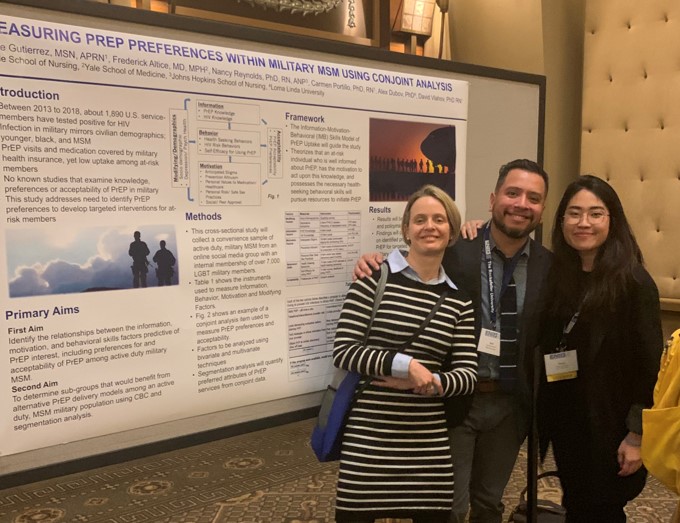
Meet the Students

Focus on Clinical Research
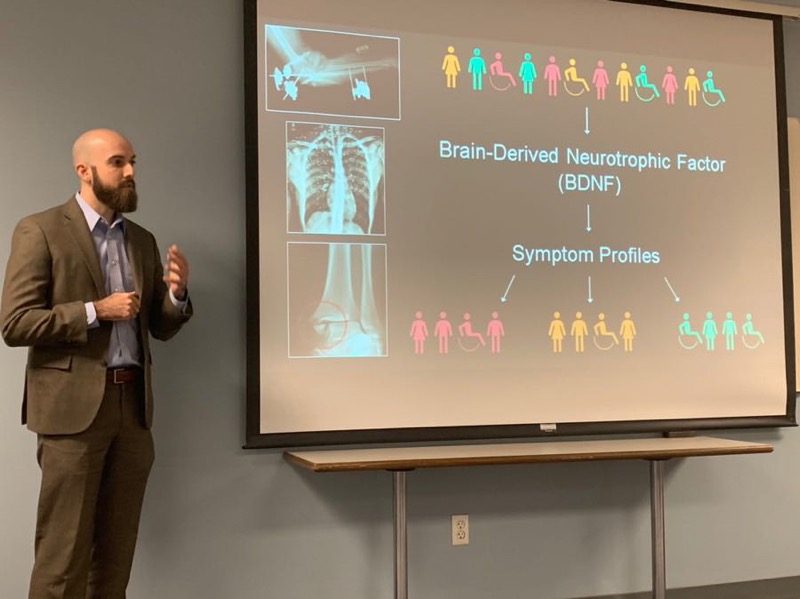
Experience Yale

World Renowned Faculty
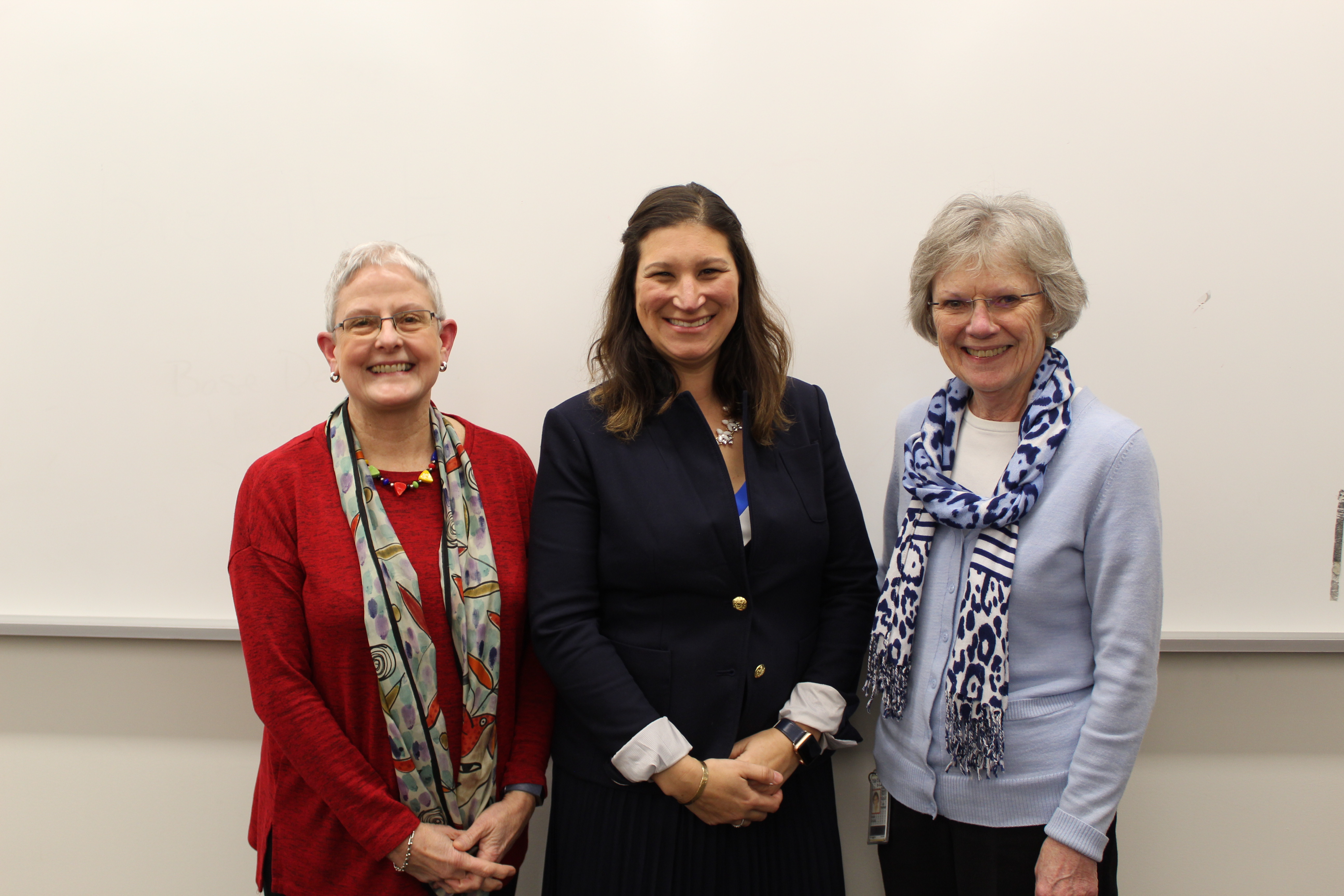
How to Apply

Skip to content
Our Culture
Diversity, equity, and inclusion.
Learn about our commitment to social justice and health equality and anti-racism.
Academic Programs
Admissions at a glance.
Learn more about Admissions at Columbia Nursing, including important dates and deadlines, and how to apply to all of our programs.
Research Centers and Programs
Research areas of focus.
Explore the research areas of focus conducted by our faculty, postdocs, and students.
Patient Care
Primary care services.
The ColumbiaDoctors Primary Care Nurse Practitioner Group, combines evidence-based practice with a personalized approach to provide quality care.
Global Health
Global opportunities for students.
Global opportunities for clinical practicum and research may be available for MDE and doctoral students at Columbia Nursing.
Doctor of Philosophy
Doctor of philosophy (phd), ignite your future with a columbia nursing phd.
The Columbia University School of Nursing PhD program is a full-time, research-intensive curriculum that prepares nurses for careers as nurse scientists who will conduct research across a broad range of populations and health conditions. Importantly, much of our research is focused on health disparity populations with the long-term goal of informing health policy and clinical practice across the lifespan.
Columbia Nursing provides three years (eight semesters) of funding for tuition, related fees, health insurance, and a stipend for full-time PhD students.
Program Design
Our PhD program provides students with an understanding of the philosophical and theoretical underpinnings of nursing science and a strong foundation in research methods (design, statistics, measurement, quantitative and qualitative methods) for clinical, translational and health services research. All students are mentored by research advisors with active programs of research as they move toward independent research and assume the roles of doctorally prepared nurse scientists.
As a Columbia Nursing PhD student, you will learn to:
- Design, conduct, and report multidisciplinary research studies that increase knowledge to improve the health and well-being of patients and families across the lifespan
- Advance the state of the science in a substantive area of research through application of innovative and rigorous methods
- Promote health and well-being for individuals and families in the context of their communities
- Provide leadership in improving the health care delivery system at local, national, and international levels
- Collaborate with other professionals to evaluate and develop policies for delivery of health service
- Translate evidence accumulated through research into practice and policy at multiple levels
As part of Columbia University Irving Medical Center (CUIMC), Columbia Nursing enjoys a unique collaboration with the College of Physicians and Surgeons, the Mailman School of Public Health, and the College of Dental Medicine. CUIMC provides myriad opportunities for interprofessional collaboration in research .
The PhD curriculum builds on the foundation of nursing science by bringing together practice, policy, translational research, and leadership. The core courses provide the knowledge and skills necessary to conduct relevant and well-designed research studies. Electives strengthen an area of clinical interest or intensify understanding of a specific research or analytic method.
Both post-master's and post-BSN students admitted to the program will complete a minimum of 57 credits. The curriculum plan is designed to make it possible to complete the program in three years for those students with clearly defined plans for their dissertation research.
PhD courses are offered in three major areas:
- Theoretical foundations of nursing science
- Analytical foundations of nursing science
- Electives and application
Students must be registered as full-time for the duration of the program (typically three to four years). The minimum number of semester credits in required coursework is 37 (four semesters) for eligibility to progress to the qualifying exam. Six of the 37 credits required to be completed prior to the qualifying examination are elective courses tailored to the student’s dissertation topic and/or dissertation methods. The PhD program requires nine credits of elective courses. A minimum of 57 total credits is required for program completion.
Concurrent with Coursework
- Research Experience (participating in faculty research projects and/or a research practicum)
- Research Faculty Training
Request a Sample Academic Program Plan
Qualifying Examination
The qualifying examination helped me to combine the content I learned in my courses and my research interests so I could further articulate my research question. Performing a scoping review on my topic of interest immersed me in the current literature and was crucial to the development of my dissertation. This experience prepared me to successfully work independently through the rest of my Ph.D.
Kylie Dougherty, BSN, RN, M.Phil.
In addition to coursework, students must successfully complete a qualifying examination with written and oral components. The Master of Philosophy (MPhil) is awarded after successful completion of the qualifying examination and the student enters doctoral candidacy status.
Dissertation
Students are expected to successfully defend a dissertation reporting original research. Four dissertation credits are required each semester during the dissertation phase of study.
Scholarship Expectations
My advisor and the Columbia Nursing faculty provided me exceptional guidance throughout the PhD program to extend my learning beyond the classroom with the goal of becoming an independent nurse scientist. I learned valuable skills and knowledge to successfully obtain a NIH-funded predoctoral training award, present research findings at local, regional, and national conferences, and publish manuscripts in peer-reviewed journals with good impact factors.
Joseph Belloir, MSN, RN, PMHNP-BC
- Publication: At least one manuscript published in an appropriate peer-reviewed journal.
- Grantsmanship: At least one grant application submitted to an appropriate funding agency or organization.
- Presentation: At least one abstract submitted for presentation as a poster or oral presentation at an appropriate professional meeting.
- Networking: Student will attend at least one regional or national research meeting.
Preparation for Postdoctoral Fellowship: Research Career Next Step
The coursework and research mentoring at Columbia Nursing helped prepare me for the next steps in my education and career post-PhD. In addition to structured coursework and educational seminars, the school provided beneficial informal support and resources. Feedback sessions with both peers and faculty were very helpful in preparing me to present posters and presentations at research conferences. The school also provided funds for travel to conferences where I presented my research. The grant writing workshop and mock reviews of grant applications provided me with tools and feedback needed to successfully apply for additional funding for my research. Finally, interdisciplinary research collaborations with faculty provided me with opportunities to work with researchers from several disciplines to complete my dissertation.
Melissa Beauchemin, PhD '19, MS '10, RN
PhD Student Handbook
The Columbia Nursing PhD student handbook provides information to aid doctoral students in planning coursework and proceeding through all phases of the program.
Request a PhD Student Handbook
What is it like to be a PhD student at Columbia Nursing?
Required courses (excluding electives).
Building upon the foundations provided in the quantitative and qualitative research method courses, in this course students examine advanced methods and frameworks frequently used in studying health policy, health services research problems and comparative effectiveness research. In addition to a critical review of the methods, the course examines the relationship among science, policy and healthcare delivery, and identifies critical questions shaping the future policy research agenda.
Interdisciplinary research is an approach to advancing scientific knowledge in which researchers from different disciplines work at the borders of those disciplines in order to address complex questions and problems. Successful interdisciplinary efforts require mastery of specific competencies. This seminar will introduce students to competencies in interdisciplinary research through a combination of readings, case studies, and lectures in each necessary aspect, chosen from fields essential to successful interdisciplinary research. It is intended to assist learners to understand why and how different professional disciplines must work together to generate and disseminate knowledge. We will examine: different conceptualizations of interdisciplinary; barriers to and facilitators of interdisciplinary research; approaches, benefits, and limitations of collaboration and team science; methods for measuring interdisciplinary collaboration; the intersection of translational and interdisciplinary scientific strategies; and individual researchers' experiences with and evaluations of their own interdisciplinary scientific projects. Learners will develop a set of skills to be effective members and leaders of interdisciplinary research teams.
The student works with a faculty member or other scientist who is conducting a research project. The specific nature of the experience depends on the nature and stage of the research, but might include search and review of relevant literature, data collection, data analysis and/or grant preparation.
This course is intended for PhD students who are engaged in relevant scholarly activities that are associated with dissertation research.
This foundational course will examine the philosophy of nursing knowledge including foundations of nursing theory, concept development, and its application to research. Students will explore approaches to the analysis and development of concepts and the application of nursing concepts and frameworks to clinical practice and research. Ideas, assumptions, events, people, and writings are examined for their influence, inter-relationships, and significance to nursing. Types of reasoning will be evaluated within the context of nursing and health. Major theories, frameworks, and concepts of nursing and health and their implication for research will be discussed. The focus of the course will be on development of critical thinking skills in analyzing key elements of philosophies, concepts, and conceptual frameworks.
In this foundational course students will study the links between theory and the psychosocial and biophysical measures used in nursing research. Students will employ the principles of classical test theory and item response theory to evaluate the reliability and validity of measurement. Application of computational techniques will be covered in the lab portion of the course. Course topics include types and uses of measures, item/scale development and validation, survey methods, reporting for publication, and the relationships between measurement and research ethics, cultural competency, and health disparities.
This course provides a foundation for quantitative research methods and design. Research process topics examined include: appraisal of the quality of existing evidence; identification of gaps in the literature; formulation of researchable questions and testable hypotheses; types of research variables; sampling designs and power analyses; and the uses, strengths, and weaknesses of various experimental and quasi-experimental research designs.
This course provides an in-depth examination of qualitative study designs and methods through a combination of theoretical discussion and hands-on practical experience. Topics include paradigm distinctions, theoretical perspectives, designs and methods, critique of research reports, and ethical issues in qualitative research.
The course is intended for PhD students who are engaged in relevant scholarly activities that are not associated with the required course sequence. Such activities must accrue more than 20 hours/week.
This course is intended to provide a hands-on introduction to delivering data visualizations to serve as a critical lens through which individual and population level health can be examined. The proposed course will combine concepts and theory in data visualization and exploration and practice to enable the student to gain the necessary knowledge to use graphics and statistics to explore the data, find and construct a narrative, and share findings in ways colleagues and decision-makes can readily understand and act upon.
This course is designed to provide the tools for the doctorally prepared nurse to evaluate, translate and integrate published research results into clinical practice. During the course, students will learn how to conceptualize clinical practice problems and transform them into answerable clinical research questions, how to search for the best clinical evidence, and how to assess clinical evidence using basic epidemiological, biostatistical and scientific principles. The course will culminate in a systematic review or meta-analysis of a body of research relevant to advanced practice nursing.
Total Credits:
- /
- Academic Programs
- Doctor of Philosophy in Nursing

- Admission Requirements
- How to Apply
- Curriculum and Courses
- Research Competencies and Terminal Outcomes
- Pre/Postdoc Fellowships
- Scholarships and Financial Aid
- PhD Student Profiles
Ways to Study
As part of a cutting-edge, research-intensive university with top-ranked schools of nursing, medicine, public health, pharmacy, dentistry and social work located within steps of each other and adjacent to the renowned UNC Hospitals, the School of Nursing provides a diverse, energetic and collegial environment for participating in world-class interprofessional education, scientific inquiry and practice opportunities.
Apply Now | PhD
Applications for 2025 will open in August, please check back later for more information.
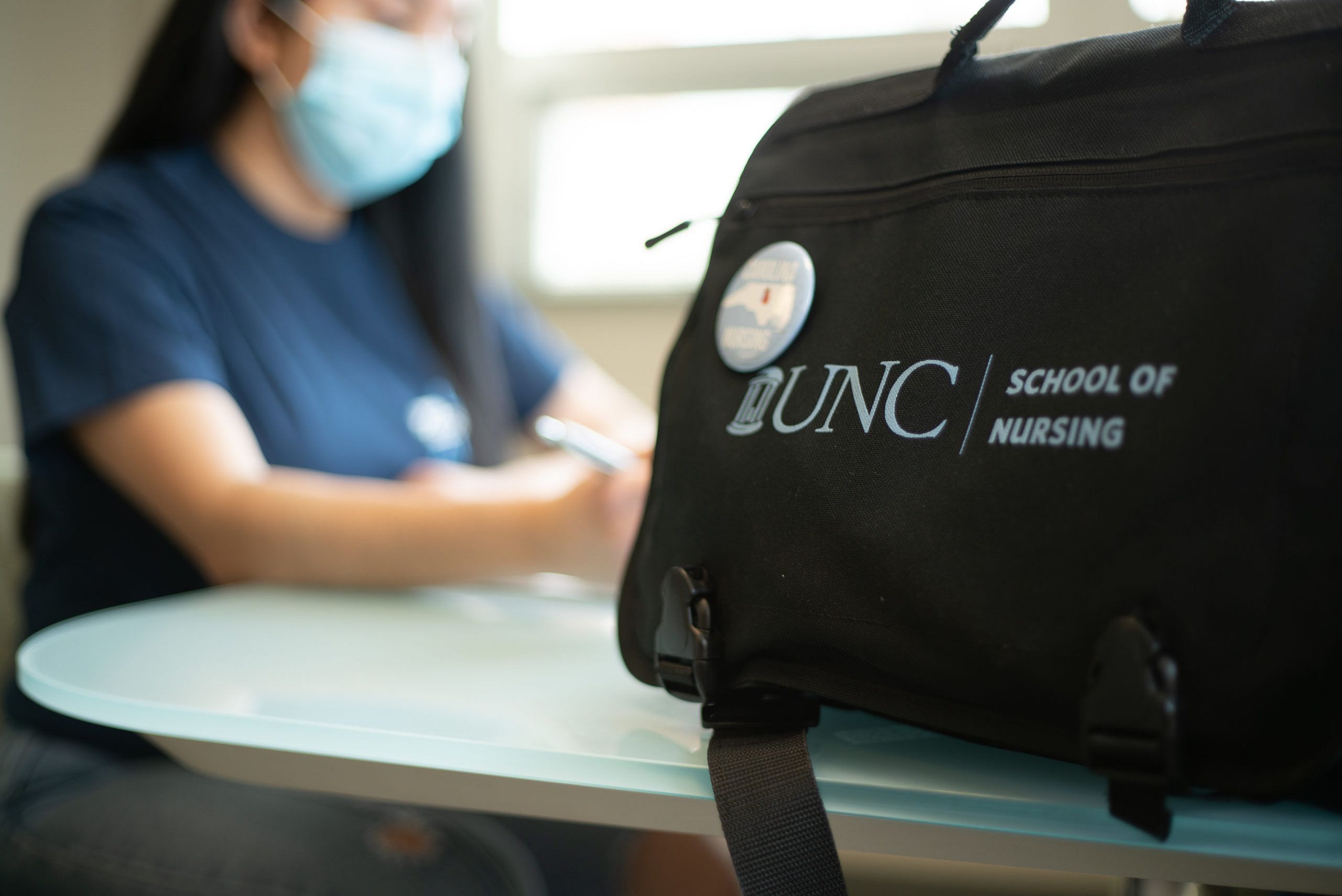
- Pre / Postdoc Fellowships
- Faculty Accepting New PhD Students
- Faculty Available for Advisory Committees
- Contact Admissions
[email protected] 919.966.4260
Information Sessions & Tours
Pre- and Postdoctoral Fellowships at Carolina Nursing: Preventing and Managing Chronic Illness
At Carolina Nursing, our pre- and postdoctoral T32 funding will support research aimed at preventing and managing chronic illness using multilevel, theory-based interventions that target behaviors, environmental factors, and personal determinants that increase the risk of illness onset, greater burden, and poorer outcomes.
Interested in learning more? The article linked below summarizes how our T32 grant will prepare nurse scientists using community-engaged intervention mapping.

Interested in learning more about our new PhD curriculum? Please check out the new PhD curriculum map here .

Our vision is to prepare a diverse group of graduates who are highly capable and driven to engage in a career devoted to research and scholarly scientific activities that enhance the health of individuals, families and communities; using biobehavioral, psychosocial and ecological approaches; that increase the effectiveness of health care systems; and further the translation of research into practice.

The PhD program in Nursing at UNC is one of the best in the country. We:
- Prepare nursing scholars to conduct scientific studies consistent with the program vision: to enhance the health of individuals, families and communities; increase the effectiveness of health care systems; and further the translation of research into practice.
- Have consistently been identified as one of the top Schools of Nursing in the country. A variety of faculty research grants provides multiple opportunities for research training, interdisciplinary collaboration, and professional development. These opportunities provide an outstanding training context to ensure that our graduates are prepared to assume scientific leadership roles early in their research careers.

- Are part of a cutting-edge research-intensive university, with a wonderfully rich and diverse environment within which to conduct research.

- Are part of an extraordinarily strong health science division that includes public health, pharmacy, medicine, social work and dentistry – all of which are located on the main campus of the University.
- Are part of a University that is home to 121 interdisciplinary research centers, institutes, and initiatives that bring faculty together across campus to collaborative research-focused areas. SON faculty, doctoral students, and postdoctoral fellows are highly active members of many of these centers.

Among the many outstanding resources that are available to our PhD students at the University of North Carolina at Chapel Hill, the following are housed within, and managed by the School of Nursing:
- The Biobehavioral Laboratory (BBL) assists with the development of biological and behavioral measuring techniques for the study of chronic illness and nursing intervention outcomes.
- The T32 research training grant on Prevention and Management of Chronic Illness provides extensive opportunities for doctoral and postdoctoral trainees to be involved in funded studies. Continued funding has been sought for the T32 research training grant in Health Care Quality and Patient Outcomes, which is also designed to support doctoral and postdoctoral trainees.
- The Office of Research and Scholarship (ORS) assists in grant development, preparation and submission.
To provide adequate mentoring, we want to assure that your planned research aligns well with the scientific expertise of one or more faculty members. This is what we refer to as a faculty-student “match”. This match may take a number of different forms. One type of match occurs when you are studying the same problem as is the faculty member – say, cardiovascular disease, or cancer, or increasing access to care for diverse populations. Another type of match occurs when you are using the same methodological approach as the faculty member – this might be qualitative or quantitative, cross-sectional or longitudinal, or observational or experimental. Another kind of match occurs when you are studying similar populations, say, children or the elderly.
We provide an opportunity for you to communicate your research interests to selected faculty before you decide to apply, so please take some time to explore our Areas of Expertise to learn about the current research taking place at Carolina Nursing.
If you have questions, please don’t hesitate to email the Office of Student Affairs .
Associate Dean, PhD Division & Program

Cheryl Jones, PhD, RN, FAAN
- Information Sessions & Tours
- Scholarships & Financial Aid
- Comparison of DNP and PhD Programs
- Faculty Directory
- Areas of Expertise
Today marks the 177th Commencement Ceremonies at Emory University! After the activities at the Quandrangle, the Nell Hodgson Woodruff School of Nursing will host a Degree Candidate Recognition Ceremony at 11 a.m. at the Emory Student Center. All events will be streamed live.

Doctor of Philosophy in Nursing (PhD)
Emory’s PhD program in Nursing is committed to improving human health, the experience of health, and the provision of health care through the discovery of new knowledge and its translation into practice. The program is designed to prepare researchers who want to revolutionize health care and improve health outcomes for diverse populations.
The Fall 2025 application deadline is December 1, 2024.
Virtual Open House Events
All virtual open house events will take place Tuesday evenings from 6-7 p.m. EST on Zoom. Use the links below to register.
Upcoming Meetings:
- 08/20/2024 : Tuesday, 6:00-7:00 PM (EST)
- 09/10/2024 : Tuesday, 6:00-7:00 PM (EST)
- 10/08/2024 : Tuesday, 6:00-7:00 PM (EST)
- 11/05/2024 : Tuesday, 6:00-7:00 PM (EST)
Previous Meetings:
- September 26, 2023
- October 24, 2023
- November 14, 2023
- December 12, 2023
Program Contacts
Jean Harrell Graduate Program Administrator
Emory University’s School of Nursing PhD program is a full-time, intense learning experience designed to develop the next generation of researchers who will change the face of health care. The program is interdisciplinary, drawing on the strengths of Emory University and its partners in areas as varied as the humanities, natural and social sciences, public health, engineering, law, and business.
At Emory, we offer a PhD track with a focus on data science in addition to our standard PhD curriculum.
Signature Areas of Focus
Our program is built on the research strengths of our faculty in six signature areas:
- Aging Studies
- Artificial Intelligence/Data Science
- Natural Disasters, Environmental, and Climate Science
- Translational and Neuroscience
- Women’s Health
Other Areas of Focus
Emory nursing faculty are committed to supporting the learning and discovery for our doctoral nursing students. We have faculty who are renowned scholars within a diverse range of expertise in areas such as:
- Alzheimer's Disease
- Cardiovascular Health
- Caregiver Well-Being
- Data Science
- Environmental Health
- Farmworker Health
- Global Health
- Health Informatics
- Maternal/Child Health
- Mental Health
- Metabolic Disease
- Nurse Workforce and Quality of Patient Care
- Pain, Opioids, and Harm Reduction
- Palliative Care
- Sleep Research
- Symptom Science
- LGBTQIA+/Transgender Health
For additional information, please visit our Office of Nursing research page.
This video gives prospective students pragmatic guidance in selecting a U.S. research-intensive doctoral program in nursing.

Teaching Assistant Training & Teaching Opportunity Program
The PhD in Nursing trains students to teach through the Teaching Assistant Training and Teaching Opportunity Program , or TATTO, program. This program provides a short course offered in late summer before the second year, training and teaching assistantships and teaching associateships.
The Jones Program in Ethics
The Jones Program in Ethics (JPE) at Emory University provides students with a foundational, cross-disciplinary introduction to the question of ethics for their research, training and careers. It is a required, integral part of the curriculum in LGS doctoral programs: Learn more Link here:
T32 Nurse Scientist Training Opportunities
The Nell Hodgson Woodruff School of Nursing invites applications for full time study in the PhD in Nursing program, and applicants for postdoctoral traineeship funded by the T32 program. T32 pre-and postdoctoral trainees will participate in a tailored research training program , which aims to prepare nurse scientists acquire knowledge and skills to employ data science (DS) and/or emerging health information technologies (HIT) into their research.
Provisional Artificial Intelligence Track
Artificial intelligence (AI) and associated computational sciences (machine learning, natural language processing, cybersecurity, etc.) are fundamentally changing the healthcare landscape. Accompanying these changes are tremendous opportunities as well as profound ethical concerns and social impacts. View a summary of the program . View a provisional version of the courses of study .
Admission Requirements
Fall 2024 Application Deadlines
- Priority deadline: December 1, 2023
- Final deadline: January 2, 2024
- All applicants selected for an interview will be interviewed by video/zoom meeting, scheduled at a convenient time for applicant and faculty.
- Admitted applicants will visit campus February 5, 2024 to meet with faculty, other PhD students, and to experience Atlanta.
Applications are submitted through Emory's Laney Graduate School (LGS). For more about LGS admissions, click here .
For admission to the Doctor of Philosophy in Nursing program, Emory University seeks highly qualified applicants with the discipline and motivation to excel in interdisciplinary research. To be considered for admission, you must submit the following items:
- Completed application
- Submission of a Statement of Purpose that describes the applicant’s vision for what they want to study, who they want to study with, and why they want to study at Emory.
- Research interests that match faculty expertise
- Three (3) recommendations
- Satisfactory TOEFL scores (if applicable)
- Credential evaluations from any evaluator affiliated with NACES, The National Association of Credential Evaluation Services . The most common ones are World Education Services , Educational Credential Evaluators , and Educational Perspectives .
- Transcripts issued by the registrar’s office from each post-secondary institution attended
- Resume or curriculum vitae
Emory University considers applicants who hold a BSN or MSN from a CCNE or NLNAC accredited program in the US or an international equivalent (Applicants holding a degree in a non-nursing related discipline will be considered on an individual basis).
Students entering with a BSN and intending to pursue advanced practice certification must be eligible for licensure as RN in Georgia by the end of the first year of study.
Application
Meet our students.
Meet our current and past doctoral students and learn a little more about how they impact the world of nursing research.
Student graduate’s dissertations include:
- Evaluating Stochastic Epigenic Mutations as a Potential Mechanism Translating Psychosocial Stressors into Risk for Postpartum Depression (Julianne Todd)
- Relationships among Dietary Patterns, Metabolites and Symptoms in Persons with Heart failure (Erica Nicole Davis)
- The Gut and Vaginal Microbiome in Pregnant Patients with and Without Urogenital Infections (Emily Faith Wissel)
- End-of-Life Care of Uong Adult Solid Organ Transplant Recipients: A Retrospective Cohort Study (Carolina Gustafson)
- LivFit with HIV: Reducing inflammation and improving endothelial function with exercise adherence among older persons with HIV (Crista Irwin)
- Identifying and Addressing Healthcare Disparities in the Pediatric Acute Care Setting (Amy Rebecca Kolwaite)
- Sexual Dysfunction in Women with Gynecologic Cancer Pre-and Post-Radiotherapy and its Association with Obesity and the Gut Microbiome (Haerim Lee)
- Evaluation of Facility-Based Individual Differentiated Service Delivery Among Stable People Living with HIV in Nairobi, Kenya Using Mixed Methods Research (Rosemary Kinuthia)
- Relationships Among Strong Black Woman Belief, Coping Behaviors, Social Support, and Psychological Distress for Black Mothers after Stillbirth (Carrie Henry)
- The Influence of Postpartum Retention in Care on Mortality in Women Living with HIV (Jade McBroom)
- The role of the circulating registered nurse in communicating and fostering relationships and the impact on time spent in the operating room (Kent Haythorn)
- The Role of Vitamin D in Hypertensive Disorders of Pregnancy and Gene Expression within an African American Cohort (Sheila Jordan)
- Diabetes Management and Self-Care among Emerging Adults: Emerging Adult and Diabetes Care Provider Perceptions of Self-Management Influences, Visit Interaction, and a Tool to Enhance Diabetes Care at Visits (Rachel Wolf)
- Staying Alive in Little Five: Perceptions of Service Industry Workers Who Encounter an Opioid Overdose in Little Five Points, Atlanta (Sara Febres-Cordero)
- The Occupational and Health Histories of Undocumented Immigrants Receiving Frequent, Emergent-Only Hemodialysis (Daniel Smith)
- Characteristics and Treatment Outcomes of Adolescents with Disruptive Mood Dysregulation Disorder in Psychiatric Residential Treatment (Amy Greenblatt)
A full list of student accomplishments is updated regularly (PDF) .
Here are just a few job titles of our graduates.
- Chief Nursing Officer with the Jamaican Ministry of Health
- Epidemic Intelligence Service, Center for Disease Control
- Pediatric Center for Wellness
- RTI International – Division of Public Health and Clinical Research
- The Children’s Hospital of Philadelphia, Center for Pediatric Nursing Research and Evidence Based Practice
Tuition and Awards
Full-tuition scholarships.
All full-time admitted students are granted full tuition waiver and receive an annual stipend over 12 months in exchange for teaching and research services. The stipend is drawn from a combination of faculty advisor grant support, school support and student research grants received during the program. Stipends are renewed each year, contingent upon satisfactory academic and research performance, for a total of four years. Faculty and students work together to identify and apply for National Institutes for Health's National Research Service Award and other fellowships for stipend and research support funding during the doctoral program. Students also receive Professional Development Support Funds from Laney Graduate School to attend conferences and support research-related expenses.
T32 Predoctoral Fellowships through Spring 2023
The School of Nursing offers a research training program for selected predoctoral students to focus on developing and testing interventions to improve health outcomes of persons with or at risk for chronic conditions such as cardiovascular and neurological diseases, cancer, diabetes mellitus, HIV-AIDS, and asthma/COPD. Individuals selected as fellows in this training program receive a monthly stipend, benefit assistance, assistance for professional travel, and modest funds to support research related expenses. The Laney Graduate School also offers scholarships to PhD students.
Charting Innovative Paths for Nursing Research & Scholarship

Many of our students participated in the 11th Annual Georgia Nursing Leadership Coalition Doctoral Symposium, “Charting Innovative Paths for Nursing Research & Scholarship” at Emory Nursing Learning Center on 2/11/23.
Students gave the following presentations at the Event:
- Policing Mental Health: Race and Psychiatry in Atlanta Avi Wofsy – PhD Student, Emory University
- Childhood Trauma Exposure and Length of Labor: A Potential Oxytocin-Linked Contributor to Adverse Perinatal Outcomes in Black Birthing People Abby Britt – PhD Student, Emory University
- Personal Measures of Air Pollution During Pregnancy and Infant Head Circumference and Length at Birth Hina Raheel – PhD Student, Emory University
- Ways of Knowing: The Historical Intersections of Breastfeeding, Capitalism, and Whiteness Octavia Vogel – PhD Student, Emory University
- Bots and Fake Participants: Ensuring Valid and Reliable Data Collection Using Social Media Recruitment MethodsZ Roseline Jean Louis – PhD Student, Emory University
Many students presented posters. Hayden Herring, 1st year student, won 1st place for his poster.

How to Successfully Apply to Our PhD Program
Application process questions.
How Much is the Application Fee
$75 US. The fee is non-refundable, and can be paid by credit card as part of the online application.
When exactly is the application deadline?
The deadline falls at midnight, U.S. Pacific time, on the deadline date of the each program. Nursing PhD program application deadline is January 1.
May I request a fee waiver?
Yes. Application fee waivers are processed through Laney. The application fee waiver page explains our waiver policy. https://www.gs.emory.edu/admissions/fee-waivers.html
Should I wait until I have my official test scores before submitting my application?
No. Complete the online application at your earliest convenience. When we receive your scores, they will be matched with your application.
Do I need to submit non-degree transcripts?
Yes. Admissions committees consider your complete academic record.
If my undergraduate Degree is from Emory, Do I need to request a transcript from Emory?
Yes. You will need to upload one as part of your online application. (If you are offered admission and accept, you will not need to submit an official copy, since we are able to verify the one you uploaded.)
If I participated in an exchange program while an undergraduate, do I have to request that transcript?
If you took some courses at a university as part of an exchange, like a study abroad program, and those course credits (course name, credit hours, and grade) are reflected on the transcript that includes your degree, then you do not need to submit a separate transcript from the university where you studied as part of an exchange. If you list that exchange experience as a separate educational experience on your application, you will need to upload either a separate transcript or a note explaining to us that the credits are included in another transcript.
How should I submit my transcripts in the application?
Scan and upload them through the online application. Unofficial transcripts issued by the Registrar to you (the student) are acceptable.
You are required to submit one transcript from each post-secondary institution attended, present school included. International transcripts must be translated and notarized.
Please do not mail paper transcripts. If you are admitted and decide to attend Emory, then you will need to submit official copies of your transcripts before you can enroll. But for your application, the scanned, unofficial versions are all that's needed.
Does the recommendation letter have to be on the Emory form?
We encourage the use of the online recommendation system. If a recommender is unable to use this system, contact the program you are applying to for instructions. You can find contact information on our Degree Programs page .
Must letters of recommendation be submitted by the application deadline?
It is possible to submit letters of recommendation after the application deadline, but it is not advisable. Most programs begin to review applications very soon after the deadline, and an application is not considered complete unless it has three letters of recommendation.
Can I make changes to my application after I have submitted it?
No. Contact the graduate program to which you are applying for advice. You can find contact information on our Degree Programs page .
Can I reactivate my application from last year?
No. Applicants who wish to reapply must submit a new application, application fee, and supporting credentials.
Technical issues with the application: Email CollegeNet at [email protected] .
Additional Questions
Do you have to have your research focus before entering the program?
No, but strongly encouraged.
Can I start the PhD program in the spring semester?
NO. This program begins with the fall semester matriculation only.
Can this program be completed in 3 years?
It can be done in three years if you are really focused. But it will be challenging.
What are the fees students pay?
Enrollment, technology, health and wellness, athletic and activity fees.
Fall and spring you should be prepared to pay approximately$442, summer fees are about $351
When do I submit the application for the T32 program?
T32 application is due one day after the PhD program application, Jan. 2nd
Can I have my international transcripts reviewed by an agency other than World Education Services (WES)?
Laney Graduate School requires WES services review.
Do I have to have a master’s degree to enter this program?
No. Students can apply to the program with a BSN
Can I work/ be employed outside the program?
Any work/employment has to be approved by the program
How many hours can I work if approved?
Students are allowed to work 10 hours a week
Accreditation
Emory University undergoes accreditation at the university level and throughout our colleges and schools to ensure our educational programs meet the highest standards. The Nell Hodgson Woodruff School of Nursing is accredited by multiple organizations. For a list of accreditations, you can visit our Accreditations page.
Featured Story

Emory nursing doctoral students receive prestigious NIH predoctoral fellowship awards
Test content heading.
The rich text element allows you to create and format headings, paragraphs, blockquotes, images, and video all in one place instead of having to add and format them individually. Just double-click and easily create content.
Static and dynamic content editing

How to customize formatting for each rich text
Headings, paragraphs, blockquotes, figures, images, and figure captions can all be styled after a class is added to the rich text element using the "When inside of" nested selector system. How to customize formatting for each rich text
Headings, paragraphs, blockquotes, figures, images, and figure captions can all be styled after a class is added to the rich text element using the "When inside of" nested selector system.
- Test and more Test
- asdasteawsdsf
A rich text element can be used with static or dynamic content. For static content, just drop it into any page and begin editing. For dynamic content, add a rich text field to any collection and then connect a rich text element to that field in the settings panel. Voila!

- testasdf; as;dflkjas dl;asdf a;slkdjf;asldkfjasd;fas
- as;dlfkjasd aljsad;lkfjas df;kljasd
- asdf;laskdflkasjdf as
Images, and video all in one place instead of having to add and format them individually. Just double-click and easily create content.

Emory Nursing
- Academics & Admissions
- Student Experience
- About Emory Nursing
- Job Opportunities
- Faculty & Staff
Find us on Social

PhD in Nursing Science
Drive the future of nursing through scientific discovery.

- School School of Nursing | Graduate School
- Duration 4 years, full-time
- Format Hybrid
- Enrollment Fall
- Tuition Fully funded, stipend provided
About the Program
Conduct multidisciplinary, cutting-edge research that will transform nursing with Vanderbilt’s PhD in Nursing Science degree . This four-year, full-time program prepares diverse scholars to lead the nation in nursing research, education and policy.
The program is delivered predominantly online with limited campus visits once a semester, and its state-of-the-art curriculum emphasizes both clinical and health services research. All students receive a customized plan of study tailored to their specific research interests. Research is organized into the following signature areas: Acute and Chronic Illness, Data Science and Health Technologies, Palliative Care Science, and Pregnancy Outcomes and Mother, Infant, Child and Family Health.
Student tuition for the program is fully funded, covering up to four years of research and coursework, and students receive annual stipends.
Facts & Stats
- #8 U.S. News & World Report 2023 rankings of Best Value School
- #13 U.S. News & World Report 2023 rankings of National Universities
- 26% Ethnic racial student enrollment across all VUSN programs in 2020
Key Takeaways
- Bene f it from a blended learning format that pairs online classes and coursework with periodic campus vi sits
- Receive competitive financial awards, including fully funded tuition and an annual stipend
- Conduct cutting-edge , multidisciplinary r e search alongside nationally and internationally recognized faculty w ho have a wide range of research foci
- Learn with a n advanced curriculum that emphasizes both clinical and health services research
- Launch your research or academic career with strong faculty mentorship and a personalized plan of study
Who Should Enroll ?
The PhD in Nursing Science program is designed for diverse nurse scholars who are interested in pursuing research and academic careers in public or private health care. Admitted students seek to advance nursing through scientific discovery, and they hold bachelor’s degrees in nursing (or BSN equivalent) and master’s degrees in nursing (or a related field) or doctoral degrees in nursing (or a related field).
Admission to the program is competitive and requires research and career goals that are in alignment with the School of Nursing’s research efforts and faculty expertise.
- Skip to Content
- Skip to Main Navigation
- Skip to Search

IU School of Nursing

School of Nursing School of Nursing School of Nursing
- Sigma Theta Tau International Honor Society
- Milestones in IU Nursing History
- Faculty Governance
- Staff Council
- Organizational Chart
- Mission, Vision & Values
- Strategic Plan
- Accreditation, Honors & Awards
- Open Positions
- Culture & Community
- Visiting Scholars
- IMPACT Sessions
- Advisory Council
- Explore Career Options
- How to Apply
- Scholarships & Fellowships
- Honors Program
- Second Degree Accelerated BSN Track
- RN to BSN Track
- Adult-Gerontology Clinical Nurse Specialist
- Adult-Gerontology Acute Care Nurse Practitioner
- Family Nurse Practitioner
- Nursing Education
- Nursing Leadership in Health Systems
- Pediatric Clinical Nurse Specialist
- Pediatric Nurse Practitioner
- Psychiatric-Mental Health Nurse Practitioner
- Executive Leadership Track
- Advanced Clinical Track
PhD in Nursing Science
- Certificates
- Pre- and Postdoctoral Training
- Simulation & Skills Centers
- Online/Distance-Accessible Learning
- Software, Hardware & Network Requirements
- Clinical Partnerships
- Become a Preceptor
- Study Abroad
- Global Programs
- Health Policy & Advocacy
- Champion Center for Cancer Control Research
- Center for Enhancing Quality of Life in Chronic Illness
- Faculty Innovating for Nursing Education
- Social Network Health Research Lab
- Research in Palliative & End-of-life Communication and Training (RESPECT) Center
- Meet Our Researchers
- Current and Past Fellows
- Advanced Training in Self-Management Interventions for Serious Chronic Conditions.
- Cancer Prevention and Control
- CNA Program Director and Instructor Training
- Qualified Medication Aide Program Director Training
- Canvas Intro
- Lectureship Series
- Simulation Excellence
- Urgency of Now
- Getting Started in Nursing Professional Development
- Frequently Asked Questions
- Legacy Leaders Award
- Bicentennial Award
- Share Your Story
- Parents & Families
- Ways to Give
- Military Service Survey
- Advisory Board Members
- IU Indianapolis Faculty Support
- Pre-nursing Coursework
- Education & Leadership Tracks
- Nurse Practitioner Tracks
- Clinical Nurse Specialist Tracks
- Doctor of Nursing Practice
- Programs & Degree Tracks
- Simulation & Skills Center
- Student Research Opportunities
- Student Organizations
- Pulse Newsletter
- Graduate Programs
- Scholarships
- Parent Engagement Form
- Nursing News
- Lafayette Street Clinic
- Elite 50: Stephanie Zidek
- Top 100: Gillienne Boyd
- Top 100: Megan Szymanski
- Top 100: Abby Henderson
- Top 100: Emma Bucher
- Kiki Suttle
- Elham Algashgari
- U.S. News & World Report's Best Online Nursing Rankings 2024
- Faculty Feature: Dr. Cindy Hill
- Faculty Feature: Britney Arce
- Faculty Feature: Dr. Melanie Gall
- Top 100: Valliei Chandrakumar
- Top 100: Tatum Murawski
- National Mentoring Month: Drs. Pei-Shiun Chang and Yvonne Lu
- Search Articles
- School of Nursing News
- Indianapolis
- Bloomington
- News & Events

Become a leader in the field of nursing
Our PhD program prepares you for a career in nursing education, research, health systems, or clinical science to enhance the care of individuals and families across the lifespan. PhD-prepared nurses lead the profession, teach the next generation of nurses, and expand nursing’s impact on health policy and public health.
Is a PhD right for you?
The PhD program is available through the IU Indianapolis campus, but it is distance-accessible, using videoconferencing technology that synchronously places you in the classroom with your classmates. You can also choose in-person classes if you prefer to learn in a face-to-face setting. We attempt to schedule the required PhD courses across one day each week so that students know in advance which day to plan to be available for class.
This program features both a Master of Science in Nursing (MSN) to PhD pathway, as well as a Bachelor of Science in Nursing (BSN) to PhD path. The MSN-PhD can be accomplished in three years as a full time student, or five years as a part time student. The BSN-PhD can be accomplished in four years as a full-time student, or six years as a part-time student.
As a PhD student, you are linked with faculty researchers who provide supportive mentoring throughout your entire PhD program. There is one core curriculum, but you can choose to work with faculty experts on one of two tracks: Clinical Nursing Science or Health Systems, which includes Nursing Education.
Two research tracks to choose from
Clinical nursing science.
Clinical nursing science concentrates on the intersections of health promotion, health behavior, and quality of life in acute and chronic illness throughout the lifespan. It includes the prevention and early detection of disease and disability across the continuum of care and the enhancement of the health and well-being for individuals, families, and communities.
Examples of scholarship and faculty research in clinical nursing science include:
- Improving the quality of life of persons with chronic illness
- Behavioral oncology across the cancer continuum
- Childhood and family adaptation to chronic illness
- Family caregiving across the lifespan
- Tailored intervention studies to improve quality of life
- Patient care safety
Health Systems
Health systems operate to create structures and resources that enable individuals and communities to achieve optimal health. This focus area includes the science of nursing education, informatics, health policy, and administration.
Examples of scholarship and faculty research within the focus of health systems include:
- Teaching and learning in distance courses
- Clinical reasoning
- Assessment of learning and program evaluation
- Health policy and public policy analysis
- Computer systems to enhance care delivery
- Nursing informatics
- Narrative pedagogies
- Patient care simulations
- Community-based care coordination
Professional Development Core
| Students will develop knowledge regarding the responsible conduct of research, including conflict of interest, responsible authorship, policies for handling misconduct, data management, data sharing, policies regarding the use of animals and/or human subjects, and institutional vs. individual responsibilities for scientific integrity. This meets the NIH requirements for instruction of pre- and postdoctoral fellows. | ||
| Examination and development of knowledge, skills, and strategies to support critical and creative thinking, identification of research and evaluation interests, socialization, and development of scholarship in nursing. | ||
| This course helps students develop competencies as doctorally-prepared educators in academic and other complex organizations. Course concepts include functioning within the educational environment; understanding the relationship between teaching, research/scholarship and service and preparing to be a doctorally prepared member of the faculty. | ||
Nursing Theory Core
| This course focuses on comparison of philosophical approaches to knowledge development. Emphasis will be on concepts as building blocks of theory and approaches to concept development and analysis for theory development. | ||
| This course focuses on evaluation of theory, the utility of theories in research, and the influence of various theoretical perspectives on research strategies. Emphasis is on midrange, multidisciplinary theories relevant to nursing research. | ||
Nursing Science Research Major
| Required Courses | ||
|---|---|---|
| This course covers multiple linear regression, ANCOVA, factorial ANOVA, repeated measures, sensitivity and specificity, logistic regression, and survival analyses. Understanding the mathematics and logic behind these techniques is emphasized. Students develop skills to answer research questions, and critically analyze, interpret, and evaluate evidence related to nursing research. | ||
| This course is an in-depth critique of quality indicators for quantitative research designs. Designs, sampling methods, data collection methods, measurement strategies, and quality of measures are evaluated for threats to internal and external validity. In addition, the logical consistency among problem, purpose, design, data analysis, and conclusions are examined. | ||
| The focus of this course is on in-depth critique of the quality indicators for qualitative research designs. Designs, sampling methods, data collection methods, and analysis methods are evaluated for credibility, neutrality, consistency and usefulness of findings. In addition, the consistency among research questions, purpose, design, data analysis and conclusions are examined. | ||
| Cafeteria Options: Select TWO FROM THE FOLLOWING FOR A TOTAL of SIX (6) CREDITS | ||
|---|---|---|
| Designed for nurses and other professionals, this course focuses on policy and advocacy at institutional, local, state, national, and international levels. Participants communicate with policy makers, analyze factors and apply evidence to influence health policy decisions. | ||
| This course provides an opportunity for the student to develop expertise in developing and testing the psychometric properties of an instrument to measure health-related phenomena. Content focuses on theoretical foundations of measurement, item construction, questionnaire design, and content analysis, item analysis, assessment of reliability and validity, accuracy and precision, and manuscript preparation to report psychometric properties. | ||
| Evaluates and applies issues relevant to intervention research and health services research. Content will include intervention dosage, sensitivity, mediators and moderators, and quality assurance and feasibility of intervention delivery. Translational research, multisite research, intent-to-treat, nested designs, and outcome designs will be discussed for application. | ||
| This course focuses on the methods of grounded theory research within the context of its origins, history and philosophical foundations. | ||
| This course provides an overview of comparative effectiveness and patient‐centered outcomes research (CER/PCOR). Topics include history, definitions, and key terms; engaging patients and stakeholders; evidence‐based medicine; health technology assessment; policy issues; government and private sector roles and programs; CER/PCOR funding; role of cost and quality; and methods and standards. | ||
| This course focuses on models, methods, and measures used in symptom science. The NIH Symptom Science Model and core symptoms of cognition, depression, fatigue, pain, and sleep will be examined. Students will critically evaluate scientific literature and conduct an in-depth evaluation of one symptom related to their area of research interest. | ||
| In this course, students develop beginning grantsmanship skills by understanding the process of successful grant writing and common components of grant applications. Students will collaborate with research mentors/teams to develop substantive content of a grant application that has potential for funding. Students will participate in peer review and critique. | ||
| This course is for graduate students in health sciences focusing on preparing a research or scholarly works manuscript for publication. The content of the course is organized to take students through the process of journal selection, manuscript preparation, and submission. Emphasis is placed on peer review, contemporary issues in publishing, and publication ethics. | ||
Nursing Science Concentration
| Required | ||
|---|---|---|
| This course focuses on increasing the students' understanding of how knowledge has developed relevant to their phenomena of interest. Each student will develop skills needed to critically analyze and synthesize relevant literature in the area of a specific phenomenon. Special emphasis is placed on the application on critical analysis and synthesizing skills. | ||
| Students will develop research skills through directed study and supervised research experience. Multidisciplinary research experience may include, but is not limited to, pilot-testing and evaluating research methods, data collection, data analysis, and secondary analysis of existing datasets relevant to the student's research interests. This course may be taken more than once. | ||
| Choose ONE for a TOTAL OF THREE (3) CREDITS | ||
|---|---|---|
This course focuses on synthesis of leadership research, theory, and organizational models within the context of health systems. Environmental influences, team relationships, partnership models, organizational culture, and achieving performance outcomes are explored and applied. Self-knowledge, strategic vision, risk-taking, and effective communication are discussed relative to complex systems. | ||
| This course provides in-depth analysis of the theoretical and research literature that provides evidence for biological and behavioral factors that influence self- and family management. Students will critically evaluate theories/models applicable to self- and family-management and complete an in depth analysis of self-management interventions relevant to their area of interest. | ||
| This course focuses on models, methods, and measures used in symptom science. The NIH Symptom Science Model and core symptoms of cognition, depression, fatigue, pain, and sleep will be examined. Students will critically evaluate scientific literature and conduct an in-depth evaluation of one symptom related to their area of research interest. | ||
Internal or External Minor
Dissertation
| Dissertation research is facilitated through individualized research mentoring. Each semester, goals/objectives and a timeline for work to be accomplished are mutually determined by the student and chair. The student and dissertation chair meet regularly and dissertation committee members are involved as needed to ensure consistent progress. | ||
Learning outcomes
As a PhD graduate, you are well-positioned for a successful career as a leader within academic and practice settings. Graduates of the program are expected to:
- Synthesize knowledge from nursing as well as biological and behavioral sciences to investigate health phenomena.
- Utilize analytical and empirical methods to extend nursing knowledge and scholarship.
- Conduct and communicate independent research that advances the body of scientific knowledge.
- Defend the social significance of the expanded knowledge base of nursing.
- Interpret nursing science within an interdisciplinary context.
Ready to take the next step?
Financial aid & fellowships
See degree information in the bulletin
Pre- and postdoctoral training
Explore other degree programs
Discover our interactive learning facilities
Contact an advisor with questions
IU School of Nursing - Resources and social media channels
- Home / Academics / PhD in Nursing
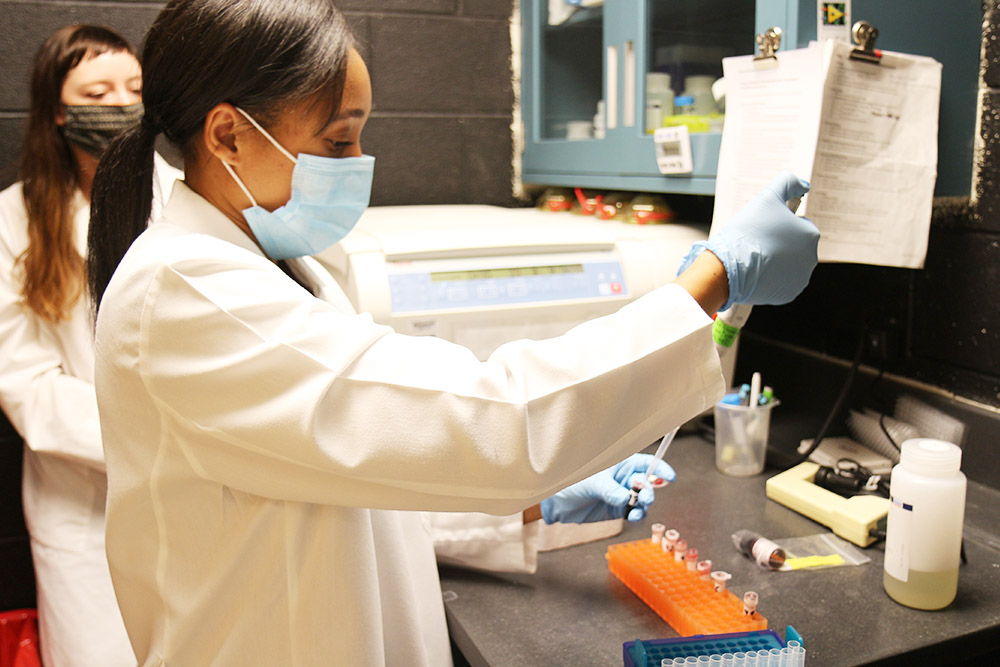
Doctor of Philosophy in Nursing (PhD)
Our PhD in nursing offers students a chance to become nurse scientists, nursing professors, and nurse policy- and change-makers.
- World-class scholar-mentors exploring a rich variety of research
- 4 years' free tuition + generous annual stipends for ALL admitted students
- Powerful development of students' grant and scholarly writing , and ample opportunities and funding to present at major conferences
- Loan forgiveness programs if pursuing full-time careers in academia
- Deadline to apply: December 15 (for entry the following fall)
The PhD in Nursing is administered by the School of Nursing, but the degree is conferred by the Graduate School of Arts & Sciences (GSAS). Therefore, applicants will complete the application through GSAS. Please review this detailed information about the application process and admission requirements .
[VIDEO] Discover the PhD in Nursing
Download the video file .
The PhD in nursing program prepares students for careers as scholars, nurse scientists., and academics ready to contribute to nursing science, knowledge, theory, and practice through systematic inquiry. By graduation, PhD in nursing students will:
- demonstrate advanced knowledge of nursing, related sciences and humanities, and methods of inquiry
- expand the research base of nursing theory and practice
- serve the Commonwealth, the nation, and the world by addressing major nursing and healthcare issues through research and in a scholarly manner
All applicants for the PhD must possess a BSN. Many also possess an MSN and nurses with other graduate degrees (MPH, MBA, MS in Health Administration, etc.) are also encouraged to apply.
Every year, UVA PhD nursing students earn grants to support their doctoral studies, and many publish and present around Virginia, the U.S., and internationally.
UVA's PhD in nursing program is focused on research, and the curriculum includes courses in qualitative, quantitative, and historical research. Over the course of the program, all PhD students submit a research proposal for peer review, and many submit proposals to the NIHNR's annual service awards competition.
Because research is such a critical element of the PhD program, we seek to admit students whose scholarly interests are congruent with those of our faculty. A list of faculty eligible to chair PhD student committees is available on the Faculty Directory page .
PhD in Nursing Admission Requirements
To be considered for the PhD program, applicants must:
- Submit a completed application to the Graduate School of Arts & Sciences (not the School of Nursing) and pay an $85 application fee
- Have at least a baccalaureate degree in nursing from a nationally accredited program and a minimum "B" average
- Submit transcripts for all post-secondary work
- Submit three letters of reference that speak to the applicant's ability to pursue doctoral studies (two must be from doctorally-prepared nurse educators and one may be from a current or recent employer)
- Submit a CV reflecting professional achievements and productivity
- Submit an essay (1,000 words or fewer) describing the applicant's educational, research, and professional goals, including a specific description of the planned focus of study and a researchable topic for development
- Have completed a recent course in statistics (with software applications)
- Be available for an interview with one or more faculty members (conducted in Charlottesville or via Zoom as needed)
- International applicants have additional requirements
- The Graduate Record Exam (GRE) is no longer required to apply to the PhD program; however, the option remains for applicants to provide scores as part of the application. The institutional code for UVA is R-5820 .
Statistics Prerequisite
One option is to complete Courses 1-3 of this series: https://www.coursera.org/specializations/statistical-analysis-r-public-health . Please note that the certificate showing successful completion of the course is required. The student needs to choose the paid option to receive the certificate. This is one example; please contact [email protected] if you have questions.
Steps to Apply for the PhD in Nursing
Those interested in applying to the PhD in nursing program apply through UVA's Graduate School of Arts and Sciences (GSAS), which prefers to receive one package containing all supporting materials (recommendations, transcripts and scholarly writing). The completed application, the application fee and all supporting data must be received no later than December 15.
Financial Aid for PhD in Nursing Students
Graduate teaching assistant (gta) positions.
- All admitted students to the PhD program are eligible to be awarded four years of scholarship to cover tuition, insurance, and fees, in exchange for serving as a GTA 10 hours per week.
- See the Financial Aid page for more information.
Loan Programs for Future Nursing Faculty
- The school also offers financial support programs to students considering full-time faculty positions through the Nurse Faculty Loan Program and the Virginia Nurse Faculty Loan. Through the Nurse Faculty Loan Program, funded by HRSA, doctoral students may borrow funds for their academic expenses (tuition and books). If they become a full-time faculty member at any accredited institution, up to 85% of the loan (principal and interest) is forgiven.
- Doctoral students enrolled in UVA’s PhD or DNP programs who are planning on teaching full-time in Virginia can apply to the Virginia Nurse Faculty Loan. Students may be eligible to borrow up to $25,000 per year during the coursework phase of their programs. This loans is eligible for cancelation if graduates go on to teach full-time at any public or private nursing education program in Virginia for four years.
Visit our Tuition and Financial Aid web pages for more information.
Plans of Study for the PhD in Nursing
Please see a suggested Nursing PhD Plan of Study .
Please visit the Graduate Record for the official program requirements for the Doctor of Philosophy in Nursing.
- Faculty & Staff

School of Nursing
- Meet the Dean
- GW Nursing at a Glance
- Administration
- Diversity, Equity and Inclusion
- Health Workforce Institute
- Where We Are
- Accreditation
- Bachelor of Science in Nursing
- Master of Science in Nursing
- Doctor of Nursing Practice (DNP)
- Certificates
- PhD in Nursing
- Health Care Prerequisites
- Simulation Professional Development and Practice
- Open Educational Resources
- Clinical Placement Model
- How to Apply
- Admissions Events
- Information for Veterans
- International Student Requirements
- Request Information
- Student Right to Know
- Transferring Credits
- Admitted Students
- Financial Aid
Frequently Asked Questions
- State Authorizations
- Center for Aging, Health and Humanities
- Center for Health Policy and Media Engagement
- Community Engagement Initiatives (CEI)
- Partnerships
- Student Success Resource Hub
- Academic Calendar
- Student Groups
- Milestone Events
- News Archive
- Event Calendar

PhD: Doctor of Philosophy in Nursing
Earn a GW Nursing Doctor of Philosophy in Nursing to advance the theoretical foundation of healthcare delivery and nursing practice. Our PhD program is designed to equip graduates with the knowledge and skills in theoretical, methodological, and analytical approaches needed to conduct research and apply knowledge in the fields of nursing science and healthcare.
At GW Nursing, our students have access to world-renowned nursing faculty with research programs centered on addressing issues that contribute to inequity. . Our research faculty conducts clinical, community, health services, and educational research, underpinned by our commitment to health equity. They work closely with students to ensure that they have the necessary skills to build a program of research with high potential for impact on health and educational outcomes. Graduates of our PhD program will be prepared to:
Implement theoretical and methodological approaches required for discovery science
Assume high level faculty positions within a university, apply for post-doctoral research fellowships at universities or agencies, influence nursing-related policy, education, and scientific discovery, our hybrid curriculum.
Our program is a hybrid format that combines carefully developed on-campus, learning-intensive weekends with weekly online learning experiences. Through our cutting-edge facilities at our Simulation and Innovation Learning Center, and award-winning online technology courses, students can develop the skills needed to design and implement scientific research programs and kickstart their careers.
Want To Learn More About The Program?
Questions about our PhD program should be directed to the program director, Laurie Theeke at [email protected] . We offer info sessions periodically throughout the year. During each session, we cover the admissions basics, tips on funding your education, why you should choose GW, and offer the opportunity to ask questions of faculty and admissions staff. View our upcoming info sessions.
REQUEST INFO
COSTS & AID
Hear From Our Faculty & Students
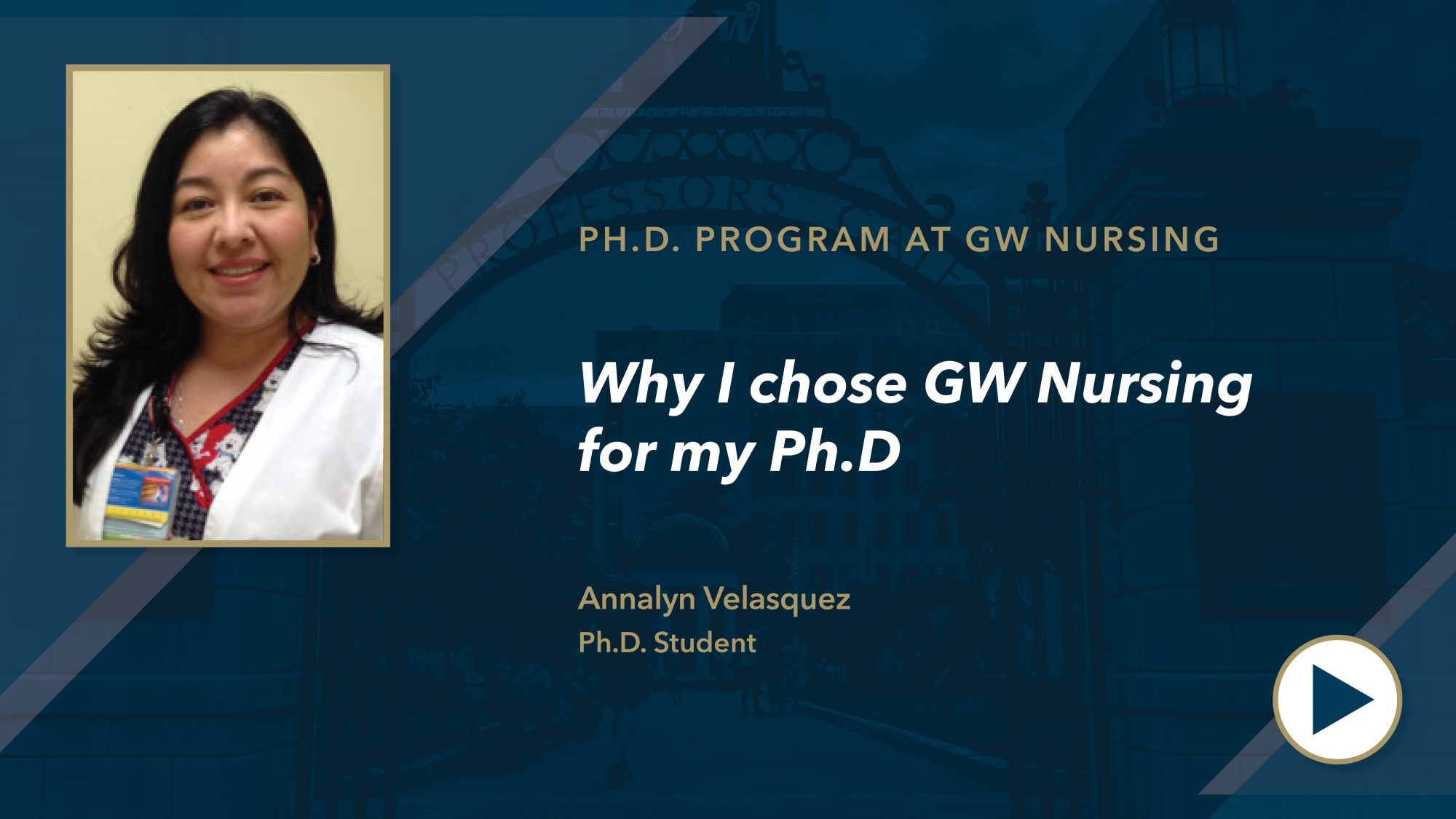
Application Deadlines
Application Open: 10/03/23 — Priority: 12/01/23 Release Date: Rolling — Final: 02/15/24 Release Date: Rolling
About the Program
- Faculty Research Areas
- Prerequisites
The Doctor of Philosophy in Nursing program consists of 57 credit hours.
Programs of Study
- PhD Program of Study - Full Time
- PhD Program of Study - Part Time
For full listing of courses and descriptions, please visit the University Bulletin .
On-Campus Requirements
You will be required on GW campus to attend Orientation the summer before year 1, as well as Friday/Saturday weekend intensives on each semester of years 1, 2 and 3..
Technology Requirements
Each student admitted to the program is expected to own and have ready access to a laptop or tablet with basic productivity software for classroom use. View Policy .
Competitive applicants will be offered admission first. Applicants are encouraged to apply early, as space is limited.
Complete applications submitted by the priority deadline will be reviewed first. Applications do not have to be verified by the priority deadline, only completed and submitted. Completed applications received after the priority deadline are reviewed solely on a space-available basis.
Students working more than 20 hours per week will be considered for the part-time program of study only.
A completed application includes the following components:
- Active and unencumbered RN License
- Master's degree in nursing or related field
- Three letters of recommendation
- Current resumé
- Statement of Purpose (addressing research and potential GW research mentors)
- Writing sample (published article or graded academic paper)
- Score > 100 TOEFL (international applicants)
Graduate-level inferential statistics course taken within the past five years *
*NURS 6208: Biostatistics for Health Care Research (3) is offered in the spring and summer for those who have not met this requirement
Admission Selection Criteria:
- 3.0 (on 4.0 scale) preferred Masters GPA
- Candidate Interview
- Candidate Essay
Contact the Office of Admissions at [email protected]
At the conclusion of the PhD program, you will be able to:
- Evaluate, critique, and synthesize knowledge from nursing and other academic disciplines to generate new ideas.
- Examine diverse modes of inquiry to select the appropriate design to conduct research that builds on nursing science and theory.
- Integrate team science principles in the conduct of research with interdisciplinary teams.
- Demonstrate scientific integrity and the protection of human subjects in the design, conduct and analysis of research studies.
- Apply theory-base approaches and philosophic perspectives from nursing and healthcare research.
- Disseminate knowledge through publications and presentations.
- Employ strategic leadership skills to advance the profession, influence policy, and the conduct of research.
- Explore our Faculty
- Explore our Research
Scholarship funding is available to select applicants. Students eligible for scholarship funding must be enrolled full-time, must agree to work no more than 20 hours a week while enrolled, must be continuously enrolled, and must maximize any employer tuition benefits first.
For students who have access to tuition assistance from their employers, GW tuition awards cannot be used in lieu of such assistance.
Students who apply before the priority deadline will receive preferential scholarship consideration and will be notified about funding status 2-4 weeks after acceptance into the Ph.D. program.
- Funding is reviewed and awarded annually
- Employer tuition benefit documentation is required and will be reviewed during the time of acceptance.
- skip to main content
- skip to main navigation
- skip to sidebars
Wellness Resources
Search form

- Meet our community
- Dean Patricia D. Hurn
- About the University of Michigan
- Discover Ann Arbor
- Maps & directions
- Tours and Information Sessions
- Facilities and Safety
- Department of Systems, Populations and Leadership (SPL)
- Operations teams
- Data and dashboards
- Sharing Your Ideas & Innovations
- Advancing a Culture of Innovation
- The Innovator Pathway
- Supporting Our Innovators
- Building Innovation Bridges
- Building Student Engagement
- Innovate 4 Change
- Resources and Funding
- Innovation Webinars & Podcasts
- HiiP Innovation Fellows
- HiiP Innovations in the News
- Contact HiiP
- 2024 HiiP Innovation Week
- Tech support
- History of our School
- Mission and Vision
- Sexual Misconduct & Harassment Resources
- Honors program
- Population health in a global context minor
- Master of Science in Nursing (MSN)
- Doctor of Nursing Practice (DNP)
- Faculty mentors
- Student grants, awards and publications
- Training Grant
- Adult-Gerontology Acute Care Nurse Practitioner
- Adult-Gerontology Primary Care Nurse Practitioner
- Nurse-midwifery
- Nurse-midwifery and Primary Care Family Nurse Practitioner (Combined)
- Primary Care Family Nurse Practitioner
- Primary Care Pediatric Nurse Practitioner
- Leadership, Analytics and Innovation
- Post-master's DNP
- Concentrations
- Certificates
- Accreditations & Disclosures
- Facilities of the Clinical Learning Center
- Student code of conduct
- Clinical placements
- Nursing courses
- Digital Education
- Prospective students
- BSN program - Sophomore transfer applicants
- Certificate programs
- PhD program
- Post-baccalaureate DNP program
- Post-master's Doctor of Nursing Practice program
- U-M School of Nursing BSN program - first-year applicants
- U-M School of Nursing MSN program
- Sophomore transfer credit policy
- Financial aid FAQs
- Government supported programs
- Other support & awards
- School of Nursing graduate scholarships
- Undergraduate student funding
- Tuition and fees
- Frequently asked questions
- Admin. Guidelines - Faculty Grants
- Admin. Guidelines - Student Grants
- Applied Biostatistics Laboratory
- Research resources
- Funding resources
- Postdoctoral research fellows
- Research, Scholarship and Innovation Symposium
- We Dare to Provide Health For All
- Global Health Summer Institute
- Office of Global Affairs
- PAHO/WHO Collaborating Center
- Current & past international visiting scholars
- Becoming an international visiting scholar
- Global Health Academic Programs
- Undergraduate global opportunities
- Graduate global opportunities
- GO student scholarships
- Pre-departure preparation
- Global Resources
- Our DEI Commitment
- DEI Strategic Plan
- DEI Dialogues, Trainings and Events
- DEI Resources for Students
- Through the eyes of
- DEI Resources for Staff
- DEI Resources for Alumni
- DEI News and Features
- Contact the DEI team
- 2024 Alumni Reunion
- Update Your Contact Information
- Alumni Helping Alumni
- Support Your Alma Mater
- Share Your Story
- Contact Alumni Relations
- Alumni Resources
- Nursing Alumni Awards
- Elizabeth Tone Hosmer Professorship
- Jo Anne Horsley Faculty Research Fund
- Sara and Robert Rothschild Global Health Scholars
- Terri Murtland Memorial Midwifery Lectureship and Terri Murtland Midwifery Scholarship
- Make a Gift
- Dean's Priorities
- Student Scholarships
- Research & Centers
- Leadership Giving
- Annual Fund
- Estate & Legacy Giving
- Contact Development
Ph.D. Program Info
Ph.d. program focus.
The University of Michigan School of Nursing Ph.D. program, which began in 1975, produces leading scientists who advance knowledge for the discipline of nursing and the health sciences.
The program is predicated on a strong foundation of clinical expertise framed by a nursing perspective; education at the doctoral level builds upon and extends content acquired at the baccalaureate and master’s levels and emphasizes theory development and research skills.
Our graduates are clinically proficient and have advanced preparation in nursing and related sciences, as well as in research methods and data analysis.
As a student at the School of Nursing, you can take advantage of all of the disciplinary strengths of the University of Michigan. Our students have the opportunity to study physiological, psychological, and socio-cultural variables, alone or in combination, as they influence health outcomes supported by strong interdisciplinary methods and teamwork.
Meet our current Ph.D. students and recent graduates .
Applicants to the Ph.D. program have the opportunity to apply for a unique funding opportunity: the training program on Complexity: Innovations in Promoting Health through Team Science (CHEeTAh) .
Find a mentor for current Ph.D. students
Find a faculty mentor to help you towards your goals.
Find a mentor
Apply for the Ph.D.
The Ph.D. program is open to post-baccalaureate or post-master’s applicants. See the application requirements for this program.
Come to an information session
The curriculum
In order to meet the diverse needs of the field of nursing and the goals of the student, the course of study provides flexibility. The program prepares nurses who are competent in research design, data analysis and inferential processes, and thus capable of pursuing research related to the delivery of patient care and developing theory oriented toward the application of nursing practice.
The Ph.D. Program curriculum requires completion of coursework (42 credits), dissertation research (minimum 8 credits per term) and apprentice hours. The two broad areas of coursework are Statistics and Methods and Substantive Research Focus. Students without practice experience are required to take an additional praxis course. This course facilitates learning about how practice informs science, and students gain skills that help them to lead successful multidisciplinary research teams in the future.
The flexible curriculum aligns with American Academy of Collegiate Nursing Core Competencies for Ph.D. education. All Ph.D. curricular components are aligned with 13 core competencies to ensure that our graduates demonstrate competence in all phases of research/scientific methods, in-depth knowledge in a substantive area of science, and capacity to conduct research that is grounded in theory, practice and policy. After completing the required coursework, students complete a preliminary/candidacy exam and proposal defense.
Students attend several seminars that provide opportunities for student-student networking and mentorship across cohorts. These seminars are designed to orient students to academic culture and program expectations, establish strong mentor/mentee relationships, introduce students to numerous researchers/labs, and provide early access to resources that will foster their success at the beginning of their academic journey and beyond. The Peer Seminar (mandatory attendance required) is student-led and attended by students from all admission cohorts. It provides opportunities for peer review of scientific products, student-student mentorship and leadership training. The Research and Professional Development Seminar is attended by all first-year Ph.D. students and facilitates skill building in areas that foster academic success (e.g., CV development, scientific writing, public speaking, peer-review, leadership). These seminars foster strong mentor/mentee relationships; reduce anxiety, misinformation and misdirection; increase student retention and satisfaction; and foster steady progression to degree. The following quote highlights some of the major strengths of our program.
“UMSN's program is wonderful in many ways: We receive excellent and rigorous training, we are socialized as and have access to a community of leading nurse scientists, we are generously funded, and the program is highly efficient (full time and designed to complete in three to four years) for the motivated student.”
– Elizabeth Umberfield, Ph.D., U-M School of Nursing Graduate
Core competencies
Graduates will be prepared as scientific scholars and stewards of the discipline. Upon completion of the program, graduates will be able to:
Scientific scholar
- Critically evaluate and synthesize the scientific literature to formulate new research questions to address gaps in current knowledge.
- Demonstrate mastery of study designs and ability to select a design that is appropriate to address specific aims.
- Demonstrate a thorough understanding of causal inference, sources of bias and methods that can improve the rigor of research.
- Understand key quantitative and qualitative analysis processes, principles and methods of measurement, data collection and data management in the design and conduct of research.
- Demonstrate an understanding of methods and processes of theory development and application.
- Demonstrate mastery of scientific knowledge in a substantive research area.
- Routinely guide themselves by diversity, equity and inclusion principles in scholarship and research.
Stewards of the discipline
- Understand the historic, philosophic and theoretical foundations, contemporary issues and trends for nursing science.
- Demonstrate an understanding of the evolving discipline of nursing science and the integration of theory, practice and policy. Articulate the contributions of nursing science for improvement of health and health care.
- Utilize professional and research ethics and judgment in the conduct of research.
- Show evidence of excellent written and oral communication in all aspects of the research process with articulation of implications for practice, public policy and future research.
- Participate in, engages with and begin to lead interdisciplinary teams.
Program plan options
Students may elect to enroll as full-time students based on either a three-year (accelerated) or four-year (traditional) program plan. Students are required to enroll in three terms per year. These three- and four-year, full-time program plans are outlined below.
Please see table 1 for comparisons of the program plans.
Table 1: Ph.D. program plan comparisons
|
|
|
| 3 years | 4 years |
| Full time | Full time |
| 42 plus minimum of 8 dissertation credits | 42 plus minimum of 8 dissertation credits |
| Per approved program plan | Per approved program plan |
| Winter year 2 (2 years) | Winter year 2 (2 years) |
| Spring/summer year 2 | Fall year 3 |
| 20 hours/week over 9 terms | Equivalent to 20 hours/week/9 terms, but spaced out over 12 terms |
| Fully funded | Fully Funded |
|
|
Tables 2A, 2B, 3A and 3B below outline the funding packages available to students who elect a three- or four-year, full-time program plan beginning in the fall of 2024. Based on projections, the funding packages are estimated to be worth:
- $231,950 for an in-state resident in the accelerated three-year program.
- $297,820 for an out-of-state non-resident in the accelerated three-year program.
- $292,960 for an in-state resident in the traditional four-year program.
- $363,960 for an out-of-state non-resident in the traditional four-year program.
| ||||||||||
2A: In-State (Michigan Resident) | 2B: Out-of-State (Non-Michigan Resident) | |||||||||
Academic Year | Tuition Support | Stipend | Benefits | Total | Academic Year | Tuition Support | Stipend | Benefits | Total | |
Year 1 (2024-2025) | $40,630 | $38,640 | $4,860 | $84,130 | Year 1 (2024-2025) | $81,340 | $38,640 | $4,860 | $124,840 | |
Year 2 (2025-2026) | $33,240 | $39,420 | $5,000 | $77,660 | Year 2 (2025-2026) | $58,400 | $39,420 | $5,000 | $102,820 | |
Year 3 (2026-2027) | $24,810 | $40,200 | $5,150 | $70,160 | Year 3 (2026-2027) | $24,810 | $40,200 | $5,150 | $70,160 | |
3 Year Total | $98,680 | $118,260 | $15,010 | $231,950 | 3 Year Total | $164,550 | $118,260 | $15,010 | $297,820 | |
| ||||||||||
3A: In-State (Michigan Resident) | 3B: Out-of-State (Non-Michigan Resident) | |||||||||
Academic Year | Tuition Support | Stipend | Benefits | Total | Academic Year | Tuition Support | Stipend | Benefits | Total | |
Year 1 (2024-2025) | $37,510 | $38,640 | $4,860 | $81,010 | Year 1 (2024-2025) | $74,970 | $38,640 | $4,860 | $118,470 | |
Year 2 (2025-2026) | $33,790 | $39,420 | $5,000 | $78,210 | Year 2 (2025-2026) | $67,330 | $39,420 | $5,000 | $111,750 | |
Year 3 (2026-2027) | $16,540 | $40,200 | $5,150 | $61,890 | Year 3 (2026-2027) | $16,540 | $40,200 | $5,150 | $61,890 | |
Year 4 (2027-2028) | $25,530 | $41,010 | $5,310 | $71,850 | Year 4 (2027-2028) | $25,530 | $41,010 | $5,310 | $71,850 | |
4 Year Total | $113,370 | $159,270 | $20,320 | $292,960 | 4 Year Total | $184,370 | $159,270 | $20,320 | $363,960 | |
Our Office of Business and Financial Aid is available to answer questions about program costs at [email protected] . In addition, students may visit the registrar’s office website for current tuition rates.
Dissertation grants
All Ph.D. students are eligible to apply for dissertation grants from the Rackham Graduate School and UMSN. Grant awards typically range from $3,000 to $6,000. Students use the funding to offset the costs associated with their dissertation research (e.g., subject incentives, equipment and materials, computer software, publication fees). Students may also compete for other grants designed to support their scholarship.
Ph.D. students at UMSN work hard. Full-time students should consider their responsibilities like a full-time job that requires approximately 40 hours per week of dedicated investment. However, we strongly value and support a satisfactory work-life balance for students with diverse backgrounds and personal lives — our students are successful regardless of who they are or what they like to do. For example, our students represent those who are:
- Novice or experienced nurses.
- BSN-prepared or already have earned a graduate degree.
- Parents, married, partnered or single.
- Accomplished athletes.
- Musicians or artists.
- Members of an underrepresented minority community.
- Living in Ann Arbor or commuting regularly.
- Clinically active (limited to eight to ten hours per week)
- Graduates of UMSN or other domestic or international universities.
Students interact and socialize with fellow cohorts and take advantage of the university’s vast extracurricular opportunities such as recreational sports, faith-based organizations, and musical groups, among others. Established students who “know the ropes” welcome the new students and encourage their new peers to stay connected via Facebook and other social media venues. Here’s what our Ph.D. students say about their work-life balance.
"The Ph.D. program is a whole new experience and requires adjustment to achieve a healthy work-life balance no matter who and where you are. However, the U-M School of Nursing Ph.D. community is special because we truly care about, support and mentor one another. Students find ways to connect, whether over the enjoyment of coffee, happy hours, or sports and outdoor activities. The Rackham Graduate School also shows a clear commitment to promoting students' well-being by providing various campus social events for all the graduate students throughout the year. During the Ph.D. program, I have served regularly at my church, played intramural sports, clinically practiced biweekly, and spent time with my family and friends."
– Grace Kanzawa-Lee, Ph.D., RN, Class of 2020
“We have a tradition of celebrating each other's accomplishments together. Several students have hosted writing retreats and get-togethers in their homes, and groups of students get together for IM sports and trivia nights.”
– Elizabeth Umberfield, Ph.D., RN, Class of 2020
"I like to train for triathlons and practice yoga after I finish classes and research for the day. I'm able to find time for exercise with thoughtful time management. My mentor and other faculty members care about my work-life balance as well. They emphasize that wellness is a priority during graduate school."
– Alex Fauer, Ph.D., RN, Class of 2020
Perhaps more than with other degree programs, excellent Ph.D. programs rely on apprenticeship-based teaching and learning methods. Academic success in Ph.D. programs is not only an outcome of hard work, but outstanding mentoring is also a key to success. Because our faculty take mentoring very seriously, we created the Collaboration for Leadership and Innovation in Mentorship (CLIM) Program. The CLIM program targets four key domains of effective Ph.D. mentorship: 1. Mentor-mentee fit, 2. Individual training plans, 3.Multi-mentor teams and 4. Mutual benefit.
Mentor-mentee fit: Upon admission to our program, we match our students with dedicated mentors who have experience working with doctoral students, compatible personalities and work styles, and deep scientific expertise in areas related to the student’s scientific interests. Starting with the application process, applicants and potential mentors meet to initially assess work style, personality and scientific compatibility. Because optimal mentor-mentee matching is critical to the success of the dyad, we do not admit students who do not have an acceptable mentor match.
Individual training plans: Once a student has been matched with an ideal primary mentor, the pair works closely together to set mutually agreed-upon goals. The pair will attend training programs that assist the dyad to build a productive and mutually respectful relationship; develop, monitor and readjust (as needed) an individual training plan (IDP); consider multiple career options; and celebrate success. The primary mentor provides intensive one-on-one support to their mentee throughout the program and typically becomes a lifelong mentor.
Multi-mentor teams: Further, our Ph.D. students become members of large and productive research teams. Through these connections, students gain additional experience through engagement in broader research activities and learn about “team science.” This engagement facilitates support from a multi-mentor team of diverse scientific experts not only from within the University of Michigan, but also from national and international research networks. The following student quotes illustrate the depth of these phenomenal research-intensive experiences.
“I am grateful for opportunities presented throughout the nursing Ph.D. program to collaborate with researchers from the schools of Medicine, Public Health, Law and Business. I welcomed the chance to develop effective cross-cultural teams with students and professors in Zambia, Ghana, Ethiopia and Brazil. We maintain these diverse team relationships, and I am confident they will lead to many more fruitful international research endeavors in the future.”
– Dr. Julie Buser, Class of 2018
"As part of a multi-mentor team, I had the opportunity to conduct research at other universities and to work with well-known leaders in my area of research. Through this collaboration, I was able to study and publish with some of the top researchers in my field at both the national and international level."
– Dr. Monica Wagner, Class of 2017
Mutual benefit: The student and mentor work together throughout the program, and the outcome of this relationship is mutually beneficial. Students and mentors learn from each other. Mentors pass along their experience and scientific knowledge, provide opportunities for exploration and professional development, facilitate connections with key leaders in the field, and provide career coaching. Students can teach their mentors about contemporary research topics and methods, and provide valuable hands-on support as research and teaching assistants. As coauthors on papers, abstracts and grants, the mentor-mentee team advance the science more quickly. Lastly, faculty promotion and tenure is supported by this enhanced productivity, and the student is better positioned to move into postdoctoral fellowships or other competitive career opportunities.
We know that being a Ph.D. student can be stressful at times, and we have services in place to help with that. UMSN has an embedded staff clinician from Counseling and Psychological Services (CAPS). The CAPS counselor provides students with free and confidential short-term counseling to help address and overcome personal and interpersonal difficulties that interfere with the pursuit of academic and career objectives. Common concerns that CAPS staff work with students about include self-esteem, academic difficulties, test anxieties, stress, problems with relationships, sexuality, anxiety, depression, insomnia, substance abuse, suicide, and others. CAPS services are free, confidential and available to currently enrolled students. Services include: brief counseling for individuals, couples and groups; consultation to students, faculty, staff and parents; assistance with referrals to community resources; and crisis interventions.

Additional opportunities
Our Ph.D. students not only complete course work; students complete a variety of academic products that build scholarship and team collaboration skills. Our faculty assist students to write scholarly papers for publication in peer-reviewed journals. Student serve as first and coauthors on papers and abstracts; these student-authored publications demonstrate strong potential for future academic productivity as future scientists. Our students present their work at local, regional, national and international scientific conferences. All students write and submit a training grant and contribute to the submission of their mentor’s grants. Because of their scholarly productivity, our students are highly competitive applicants for a variety of career opportunities following graduation.
Clinical practice
Many Ph.D. students want to maintain their clinical practice expertise while in our program. Full-time students can chose to work a maximum of eight to ten hours per week at an outside clinical job.
BSN-Ph.D. students who have less than six months of clinical practice experience can participate in our Clinical Fellowship Program. Beginning the summer prior to starting the Ph.D. program, we work with the University of Michigan hospital system to place board-certified RNs in staff nurse positions. Following a full orientation, RNs work 40 hours per week on an inpatient unit that aligns with their interests. Students decrease their work hours to eight to ten hours per week upon starting the Ph.D. program in the fall.
Career opportunities
Once students obtain their Ph.D., many new career opportunities will become available. However, it is not always easy to decide on the best path. Our faculty mentors provide guidance based on what they have learned over time about their students’ unique talents. Faculty alumni frequently give seminar presentations that provide real-world perspectives about the job market for Ph.D.-prepared nurses. Further, the Rackham Graduate School has many resources to help emerging graduates find their way.
Informed by their dreams and talents, students can achieve their career goals with help from UMSN faculty. Our students are prepared to continue their research training as postdoctoral fellows. For example, some of our graduates have accepted fellowship positions at very prestigious universities (e.g., Harvard, University of Pennsylvania, University of Southern California-Los Angeles, University of Pittsburgh). Others have been immediately hired into faculty positions at research- and teaching-intensive universities. Several graduates have taken high-level leadership positions as directors of nursing at large academic medical centers and become leaders at the Centers for Disease Control and Prevention, American Academy of Nursing, and the Centers for Medicare and Medicaid Services, just as a few examples.

© Regents of the University of Michigan
Privacy Notice

Cookie Notice
This website uses cookies. Contact us for questions or requests.

Information for:
- Current Students
- Faculty & Staff
- Degrees & Programs
- Campus Maps
- Jobs & Careers
- Campus Shuttles
- Student Life
- Giving

College of Nursing
Doctor of Philosophy
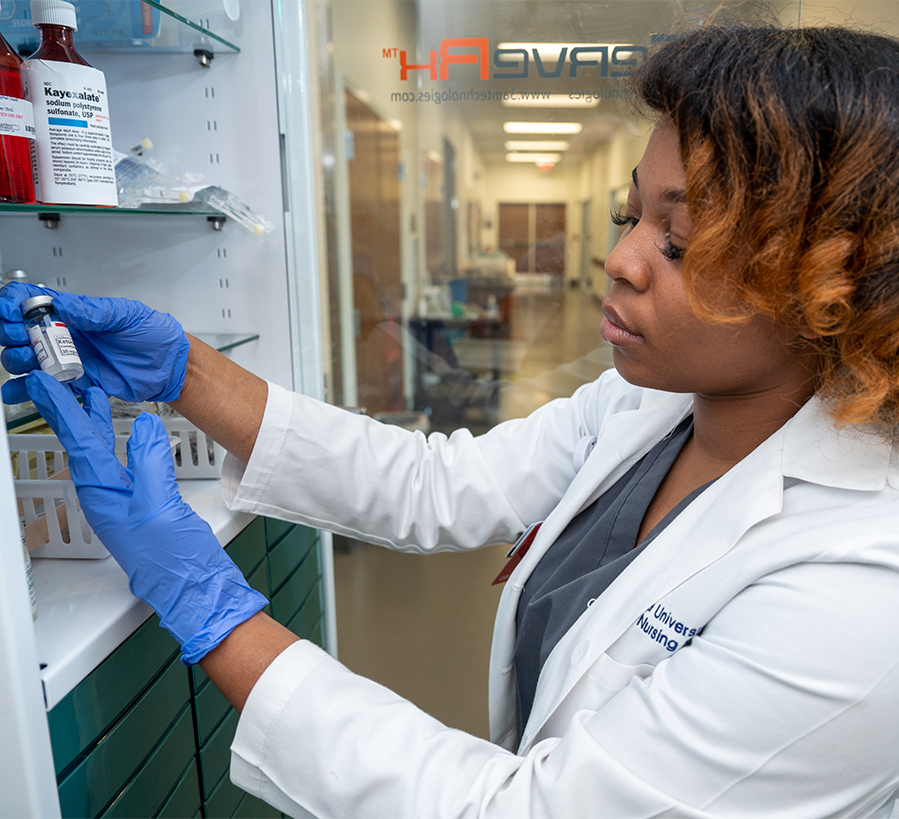
- Augusta University
- PhD in Nursing
This Doctor of Nursing (PhD) program is a research-focused degree that prepares nurse scientists for research-intensive academic careers.
The curriculum delves into the evaluation of both behavioral and biological theories related to health and illness. You'll gain the expertise to design and conduct rigorous clinical nursing studies that investigate the effectiveness of healthcare interventions within specific communities.
By choosing Augusta University's College of Nursing for your doctoral studies, you'll be joining a program renowned for its groundbreaking research in critical areas such as health disparities, cardiovascular risk reduction, and cancer prevention and control.
Nursing is for you if you consider yourself
Want to learn more about the Nursing program at Augusta University?
Nursing PhD Program
706-721-4781
What You'll Study
Students in Augusta University’s Doctor of Philosophy with a major in Nursing program will complete 81 credit hours, including a minimum of 18 dissertation credit hours.
A minimum of three years of full-time attendance, or four years of part-time attendance, is required.
Curriculum | Admissions Criteria | Tuition and Fees | Application Deadlines

EXPLORE. EXCEL. EXPAND.
Graduate School Advantage
Augusta University's graduate programs are among the best in the nation – and the world – and our graduate students are our most valuable assets. To ensure that our students earn more than a degree, the Graduate School offers a range of opportunities so they can develop the leadership, communication and personal skills needed for a rewarding life and academic, research or professional career.
See what the Graduate School has to offer »
Experience-based Education
Outside the Classroom
Augusta University is home to several research centers and institutes, including the Center for Nursing Research, the Georgia Cancer Center, the Center for Healthy Aging and the Georgia Prevention Institute.
Graduate assistantships, including research and teaching assistantships, provide financial assistance while providing valuable teaching or research experience.
Community partnerships like the Costa-Layman Health Fair and the Healthy Grandparents Program give students opportunities to participate in health-oriented community service.
Research Assistance
The Center for Nursing Research helps facilitate faculty and student efforts to obtain external funding to support research or educational and service demonstration projects.
Loan Program
The Nurse Faculty Loan Program helps students cover educational costs, and eligible students can have up to 85% of this loan forgiven while serving as a full-time nurse faculty member at an accredited nursing school.
Research-Oriented
The program is designed with a research focus and emphasizes interdisciplinary knowledge development through collaboration with faculty mentors in nursing and related disciplines.
Advanced Facilities
State-of-the-art technology abounds on the Health Sciences Campus, including at the Interdisciplinary Simulation Center, where students can advance their research interests in exciting ways.
Your Future
Career Options
According to the U.S. Bureau of Labor Statistics, job growth for medical scientists is projected to rise much faster than average through 2031.
In 2021, the median pay for a medical scientist was $95,310 per year.
Student Stories
As the healthcare environment rapidly changes, PhD prepared nurses are uniquely prepared to generate knowledge leading to vital clinical change.
Steven Waldrop
I believe every day I have a purpose, and completing this degree increases my capabilities to serve, impact positive outcomes, and increase success for individuals at our University and the community at large.
Shelli Larkin
Admissions Criteria at a Glance
GPA: A minimum overall undergraduate grade point average (GPA) of a 3.0 a 4.0 scale and a minimum overall graduate GPA of a 3.2 on a 4.0 scale.
Degree Requirement: Bachelor of Science in nursing (BSN) from an accredited program and an accredited college or university. A Master’s degree or higher with a major in nursing (MSN, MN, DNP) alone may fulfill the minimum degree requirement.
Transcripts: Official transcripts are required from all universities and colleges ever attended. Unofficial transcripts from US colleges and universities can be used in the admissions review process in lieu of official transcripts for this program.
Standardized Test Requirements: None are required for this program.
Prerequisite Coursework: 3 credit hours in statistics or biostatistics with a "B" or higher.
Letters of Recommendation: Recommendations from three individuals must be submitted through the application portal.
Resume or CV: Applicants must submit a resume or curriculum vitae within the application portal.
Writing Samples: An essay addressing experience and autobiographical information as well as an original paper reflecting research ability must be submitted within the application portal.
Licensure: Nurse applicants must currently hold an unrestricted RN license and be eligible for an unrestricted RN license in the state of Georgia.
Criminal Background Check and Drug Screen: Completion of criminal background check (CBC) and drug screen with results deemed satisfactory.
International Students: Please review the verification process for international transcripts and the english proficiency requirement .
Tuition & Fees Estimate
Estimated total Full-time / In-State / Per Semester
Tuition Per Hour
Mandatory Fees
View Detailed Program Tuition
*Tuition & Fees listed here are for in-state students enrolling in the university for Fall 2024 semester.
Please visit the Graduate School for detailed admission criteria and important application process information .
Application Deadlines
Fall '24 application deadline.
- August 10, 2023 - June 15, 2024
Early submission of all application materials is strongly advised.
All required application materials and documents must be received in order for an application to be considered complete and before an admission decision can be made. The program does not accept applications after the published application deadline, however the program will continue to accept application materials up to 2 weeks after the application deadline.
The Student and Exchange Visitor Information System (SEVIS) Form I-20 for F-1 student status or Form DS-2019 for Exchange Visitor (J-1) Status cannot be issued by Augusta University for enrollment in this hybrid program per U.S. immigration regulations. Questions? Please email International & Postdoctoral Services Office at [email protected] .
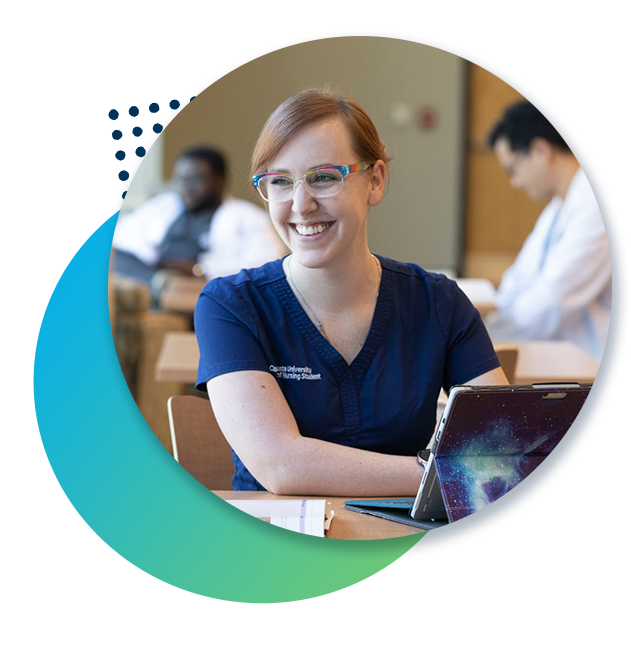
Learning Like No Other
Why Augusta?
Opportunities to engage in groundbreaking research in areas like cancer, health disparities and diabetes and epigenetics prepare you for research-intensive careers in academia.
Scholarships, assistantships and loan programs make the program financially accessible.
Community partnerships provide valuable experience while giving you the chance to improve health outcomes for a variety of communities.

Augusta University celebrates its outstanding faculty
"I feel very blessed to be recognized for these efforts, especially when there are so many at this University who are doing such great things."
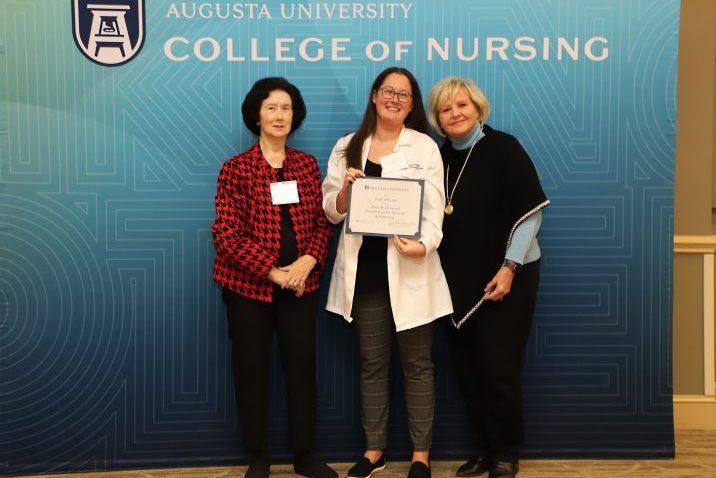
Endowment established to honor memory of ‘nurse’s nurse’
"She will always remain a giant to me as a role model for nursing," said Jeannette Andrews, PhD.
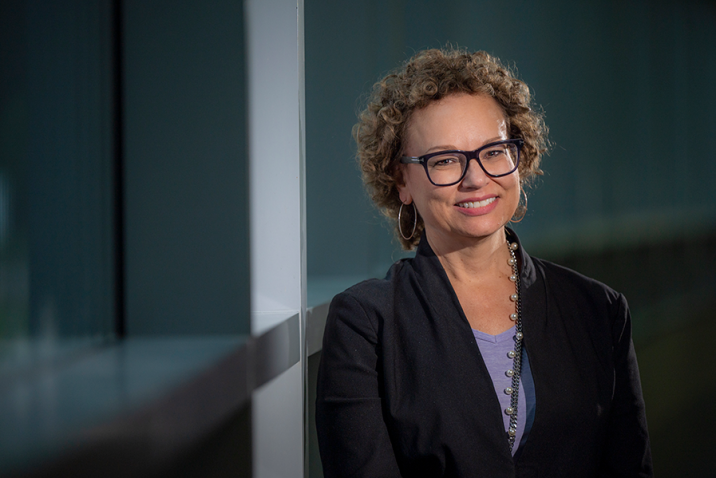
Beth NeSmith, PhD, named dean of AU’s College of Nursing
“I am grateful for this honor and ready to begin, as it is indeed privilege to be asked to serve our nationally recognized faculty and our incredible student body."
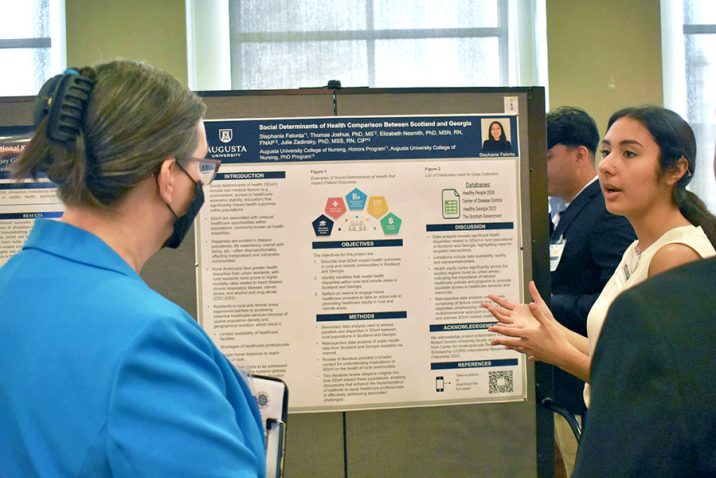
Nursing student shines with undergraduate research projects
“I appreciate the patient care aspect of nursing and just being there for people whenever they are experiencing vulnerable times," said Stephanie Felonta.
A Calling Like No Other
The College of Nursing at Augusta University trains and educates today’s nursing professionals, preparing them to enter the heath care workforce and immediately improve the lives of the sick and the hurting.
Request Information
PhD: Doctor of Philosophy
Good news! There are no application fees ever for PhD applicants!
For more than four decades, the University of Maryland School of Nursing's PhD program has prepared scholars and researchers to tackle the greatest challenges facing health care.
Learn more about research at UMSON:
- explore our faculty members' areas of expertise
- read profiles on our nurse researchers
- browse our web directory , where faculty available to chair PhD student committees are noted as "accepting PhD students"
- see a list of recent PhD dissertation projects
As a PhD student at UMSON, you'll:
- conduct important research that not only builds a foundation for your career, but also contributes to the advancement of nursing science
- study under accomplished faculty members from UMSON's organized research centers while taking full advantage of our state-of-the-art health sciences campus.
The University of Maryland, Baltimore (UMB) is the state's public health, law, and human services university devoted to excellence in professional education, research, patient care, and public service.
How the Program Works:
- Half of your coursework is delivered in a seminar format with some online modules.
- The other half includes electives, practicum experiences, and dissertation research.
- Electives are available in varied formats across University System of Maryland schools.
- Full-time and part-time options are available.
You're an ideal candidate for the PhD program if you are a bachelor's- or master's-prepared nurse or other health-related professional who wants a research career focused on some of the most important disciplines, topics, and trends, including:
- Aging Populations
- Cardiovascular Health
- Health Systems Outcomes
- Implementation Science
- Women's Health and Birth Outcomes
- Occupational Health
- Pain and Symptom Science
- Palliative and End-of-Life Care
The UMSON PhD program was initiated in 1979 as the 16th doctoral nursing program in the nation. Every student is carefully chosen and matched to the faculty member who can offer the greatest opportunity to succeed in developing his or her research program. As a graduate, you will join a thriving group of alumni—many of whom hold key leadership positions in academia, research, and administration across the country.
What You'll Do
After graduating from the phd program, you'll be prepared to:.
- Design, conduct, analyze, and disseminate research findings to expand knowledge in nursing and related disciplines
- Initiate, facilitate, and participate in interdisciplinary research with nurses and scholars from related disciplines
- Assume leadership roles in academic and health care settings
Courses You'll Take
For financial aid purposes, there are credit minimums for full-time status that may differ from the plans of study. See details .
In this Section:
- Full-Time Plan of Study All full-time students with Graduate Research Assistantships must consult with their advisor and the associate dean for the PhD program before registering to ensure that their credits align with the requirements of the GRA.
Part-Time Plan of Study
Full-time plan of study.
| Semester and Course Number/Title | Credits |
|---|---|
| NURS 840: Philosophy of Science and Development of Theory | 3 |
| NURS 850: Experimental Nursing Research Designs | 3 |
| NURS 851: Analysis for Experimental Nursing Research Designs | 3 |
| NURS 802: Research and Scholarship Seminar | 1 |
| Total: | 10 |
| NURS 841: Theory and Conceptualization in Nursing Science | 3 |
| NURS 814: Design and Analysis for Non-Experimental Nursing Research | 3 |
| NURS 815: Qualitative Methods in Nursing Research | 3 |
| NURS 819: Research Rotation** | 2 |
| Total: | 11 |
| NURS 818: Research Practicum*** | 2 |
| Total: | 2 |
| NURS 811: Measurement of Nursing Phenomena | 3 |
| NURS 816: Multivariable Modeling Approaches in Health Sciences Research | 4 |
| NURS xxx: Elective | 3 |
| Total: | 10 |
| NURS 818: Research Practicum*** | 4 |
| NURS xxx: Elective | 3 |
| NURS 821: Grant Proposal Writing* | 2 |
| Total: | 9 |
| NURS xxx: Elective | 3 |
| Total: | 3 |
| NURS xxx: Elective | 3 |
| Dissertation Credits | 6 |
| Total: | 9 |
| Dissertation Credits | 6 |
| Total: | 6 |
*Grant Writing Seminar: Offered only in spring.
**Research Rotation: A total of 2 research rotation credits are required for all students – 1 credit equals 3 hours/week or 45 hours over the semester.
***Research Practicum: A total of 6 credits of NURS 818 are required – these are intended to focus on the student’s research area where time is spent preparing for comprehensive exams, learning new techniques, conducting preliminary analyses, etc. As with NURS 819, for 1 credit students are expected to devote 45 hours over the semester. P - Prerequisite C - Concurrent
| Semester and Course Number/Title | Credits |
|---|---|
| NURS 840: Philosophy of Science and Development of Theory | 3 |
| NURS 802: Research and Scholarship Seminar | 1 |
| Total: | 4 |
| NURS 841: Theory and Conceptualization in Nursing Science | 3 |
| NURS 819: Research Rotation** | 2 |
| Total: | 5 |
| NURS xxx: Elective | 3 |
| Total: | 3 |
| NURS 850: Experimental Nursing Research Designs | 3 |
| NURS 851: Analysis for Experimental Nursing Research Designs | 3 |
| Total: | 6 |
| NURS 814: Design and Analysis for Non-Experimental Nursing Research | 3 |
| NURS 815: Qualitative Methods in Nursing Research | 3 |
| Total: | 6 |
| NURS 818: Research Practicum*** | 3 |
| Total: | 3 |
| NURS 811: Measurement of Nursing Phenomena | 3 |
| NURS 816: Multivariable Modeling Approaches in Health Sciences Research | 4 |
| Total: | 7 |
| NURS 821: Grant Proposal Writing* | 2 |
| NURS 818: Research Practicum*** | 1 |
| NURS xxx: Elective | 3 |
| Total: | 6 |
| NURS 818: Research Practicum*** | 2 |
| Total: | 2 |
| NURS xxx: Elective | 3 |
| NURS 899: Dissertation | 3 |
| Total: | 6 |
| NURS xxx: Elective | 3 |
| NURS 899: Dissertation | 3 |
| Total: | 6 |
| NURS 899: Dissertation | 6 |
| Total: | 6 |
| Remaining dissertation credits to total a minimum of 12 if not taken above | |
*Grant Proposal Writing: Offered only in spring.
Scholarship Opportunities
Your nursing education is an important investment. financial aid and scholarships can help make your goals a reality..
UMSON offers multiple opportunities to help you afford your graduate education.
| Type of Aid | Award |
|---|---|
| various award amounts | |
| $1,500-$3,000 per semester ( ) | |
| $500-2,000 per semester | |
| full scholarship: tuition and fees | |
| funding available through three programs: | |
| stipend, tuition remission, in-state status, and paid student health insurance |
Learn More About Financial Aid and Scholarships
All students receiving funds through the University must:
- be enrolled at least half-time (6 credits) in a degree-seeking program
- complete a Free Application for Federal Student Aid (FAFSA) each year by UMB's award priority deadline
- FAFSA Submission deadline: June 30, 2023
- FAFSA School code: 002104
The UMB Office of Student Financial Assistance & Education is available to guide prospective and current students through the FAFSA application process and the financial aid award package.
Contact Us:
UMSON Scholarships and Grants Office 410-706-0489 | [email protected]
UMB Student Financial Assistance and Education Office 410-706-7347 | [email protected]
PhD Admission Information
Phd applicants apply through umb’s graduate school., in this section:.
- Qualifications
- Application Materials and Instructions *There are no application fees ever for PhD applicants!
- Fall Enrollment: Dec. 1
PhD applicants apply through UMB’s Graduate School . Your application and all supplemental materials must be received by this date.
Qualifications:
Applicants should possess a bachelor's or master's degree with a major in nursing or a related health field from a regionally accredited college or university or an equivalent degree from a comparable foreign institution. For International Applicants or those with a degree outside the United States, please review the International Applicants webpage.
Application Materials and Instructions:
There are no application fees ever for PhD applicants!
PhD applicants apply through UMB’s Graduate School. All applicants must satisfy the general requirements of the University of Maryland Graduate School and submit the following materials:
Submit/request these materials via the Admissions Dashboard .
| via the Admissions Dashboard. The is where you will: You can save your progress and return to your application at a later date. We recommend that you continue to log in for regular updates. | |
| in English or native language transcript or mark sheets (if applicable) from your undergraduate and graduate schools listing subjects studied or marks received and rank in class or division. Transcripts should delineate a cumulative grade point average of at least 3.0 on a 4.0 scale for all previous course work (baccalaureate, master's, and any subsequent coursework). For International Applicants or those with a degree outside the United States, please review the . Returning students are not required to submit UMSON transcripts; we will upload a copy of your UMSON transcript to your application.
| Submit/request these materials via the Admissions Dashboard. |
| providing evidence of personal and professional qualifications from three doctoral-prepared professionals familiar with the applicant's ability, work experience, contributions to nursing, and potential for success in the PhD program. | |
| describing your academic goals and research interests. It is important that your research interests match with our faculty expertise. Please review our and mention a faculty member who may be appropriate. | |
| is required only for applicants with a GPA lower than 3.25 on a 4.0 scale or 4.01 on a 5.0 scale in your most recently earned degree. If the GRE is required you must have taken the test within five years of application date. To request a GRE waiver for international applicants, a . | Use code 5848 for the Graduate School. |
| For International Applicants or those with a degree outside the United States, please review the . the minimum score for admission is 550 for paper-based tests, 80 for the internet-based tests. IELTS test takers must score no less than Band 7 (total). | Use code 5848 for the Graduate School. |
If you have questions regarding the admissions requirements or process, contact [email protected] to avoid errors that could delay the processing of your application.
Recent Dissertation Topics
View the List of PhD Dissertations.
Best Online Ph.D. in Nursing Programs – 2024

What Factors Were Considered for Ranking the Best Ph.D. in Nursing Online Programs?
| Academic Quality | 30% |
| Affordability | 25% |
| Editorial Team Rating | 25% |
| Online Education Presence | 20% |
| to View the Detailed Ranking Methodology | |
Following are the 10 Best Online Ph.D. in Nursing Programs in the Nation for 2024
1) university of central florida - orlando, fl.
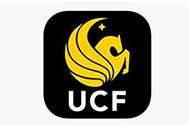
If gaining knowledge and expertise in nursing research interests you, then pursuing an online Ph.D. can be a fruitful decision. The University of Central Florida offers two online Ph.D. tracks that can be completed without keeping your current work assignments on hold. So, there is BSN to Ph.D. track that requires completing 75 credit hours post-BSN, whereas, if you have completed a master’s in nursing, your coursework for the MSN to Ph.D. track demands finishing 60-credit hours. Except for two intensives that require few days of campus visits per year, all courses are offered through the web.
Upon completion of this program, you will be able to explore promising employment opportunities, such as the director of nursing research, nurse scientist, nursing faculty, and research scientist.
Key Highlights
• UCF’s College of Nursing is highly ranked by the U.S. News and World Report in recognition of its innovative and pathbreaking online education. • The college has the expertise of offering quality web-based programs for the last 20 years that are well supported by its experienced faculty.
2) Vanderbilt University - Nashville, TN

Specializations Offered:
Vanderbilt University’s online Ph.D. in nursing science prepares you for a career in nursing research and education. Depending on your career goals, you can choose from either Clinical Research or Health Services Research. If you are inclined towards improving health outcomes by researching treatments that involve physical, psychological, and educational therapies, then the clinical research specialization is better suited. Whereas, the health services research specialty is focused on designing systems that evaluate treatments administered, their costs, and what happens to the patient, after that.
The coursework requires completion of at least 57 credit hours and is delivered completely online, with some parts being synchronous and some asynchronous. Out of the 57 credits, 32 are core courses, 15 credits are to be completed in your specialty-specific courses, and ten credits are towards your research thesis. To participate in experiential learning and interactive sessions with faculty, you must visit the campus for around 15 to 20 days per academic year.
• Vanderbilt University offers Ph.D. students multiple opportunities to interact with research scholars across the university and the nation. • You will be taught by a faculty that is nationally recognized and actively participates in research in your chosen specialty. • Eligible students can transfer 15 credits from their master’s degree towards this Ph.D.
3) Walden University - Minneapolis, MN

If you are keen on positively impacting the future of healthcare by actively participating in research, teaching, and policymaking, then completing your Ph.D. in any of the tracks offered by Walden University can be given a thought. One of the sought-after Ph.D. in Nursing online programs in MN, you need at least a master’s degree to be eligible for this program. Acknowledging your past education, the college allows a transfer of up to 40 credits towards the Ph.D. With five tracks in education, healthcare administration, interdisciplinary health, leadership, and population health, you can opt for the one that matches your career aspirations.
Regardless of what specialization you choose, the degree requires completing a total of 81 credits, comprising 20 credits of research courses, 25 credits in core courses, and 15 credits in courses of your chosen specialization. The curriculum culminates with a research thesis of 20 credits. Upon completion of this Ph.D. in your chosen specialty, you can go on to work as either a nursing professor, head a research organization, or become a health policymaker in a health organization.
• If you have completed your DNP, you can opt for the DNP to Ph.D. Bridge program where you can transfer 26 credits and save considerable time and tuition costs. • With Walden’s Sigma Theta Tau chapter, you can network with other nurses and share your nursing research ideas and gain a broader perspective.
4) University of Kansas - Kansas City, KS
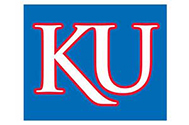
The University of Kansas has been offering Ph.D. education since 1983, and its over 125 graduates are successfully working as nurse educators and research scholars in various educational and healthcare organizations. Graduates are trained in the skills and advance art and science of nursing, with emphasis on critical thinking and evidence-based decision making. On average, students complete this online program in three years on a full-time basis.
Well, you can enter this program after your bachelor’s or upon completion of your master’s in nursing. With the master’s, you will require six fewer credits, whereas as a post BSN student, you must complete additional courses in theories for practice research and healthcare research as part of your Ph.D. curriculum.
The curriculum involves completing 52-credit coursework plus 15 credits of thesis, and there are three areas of specialization to choose from - Health Systems, Symptom Science, and Education. Well, to enhance your chances of admission into this or for that matter any other Ph.D. in Nursing online programs, ensure you earn a minimum GPA of 3.50 in your BSN or 3.25 in your MSN, apart from holding an active nurse license and demonstrating an aptitude for leadership and research activities.
• You will be able to select up to 11 credits of your total coursework in the topic related to your research thesis. • You can opt to be mentored by a graduate faculty who shares your research interests.
5) University of Arizona - Tucson, AZ

University of Arizona College of Nursing offers several pathways to Ph.D. aspirants. You can enter this program either post your BSN or MSN. Alternatively, you can also opt to complete your Ph.D. along with a DNP or even earn a Ph.D. after completing the DNP. Whichever path you choose, you can complete this program online, both on a part-time and full-time basis. Besides the online courses, you are required to attend a mandatory one week of on-campus orientation, where you will collaborate with peers and faculty to explore the Ph.D. curriculum.
This online Doctor of Philosophy in nursing is offered in three areas of focused study-Precision Science, Health Determinants Science and Data and System Science, out of which you must choose one. This study constitutes 12 credits of your Ph.D. coursework and helps gain specialized knowledge in your area of focus. The total Ph.D. curriculum requires completing 64 credits. The coursework includes an 18-credit dissertation that is completed over multiple terms.
• The college is among the top nursing schools in receiving funding from the NIH. As a potential student, you will certainly benefit from the school’s dynamic research profile. • The school’s stellar faculty is accomplished, and they engage in research and scholarly activity in all the three areas of focused study.
6) Indiana University - Bloomington, IN

Indiana University’s online Ph.D. training prepares you for a career in private or public organizations as nursing faculty, director of clinical research, and director of clinical services. The program is grounded in nursing science and offers concentration options in Clinical Nursing Science and Health Systems. Clinical Nursing Science is ideal if you are inclined towards the research of prevention and early detection of diseases and disabilities across the lifespan, whereas Health Systems emphasizes on informatics, nursing education, and public health policy.
You can enter this program, either after your BSN or post an MSN. While the former requires completing 90 credits, the latter is shorter and requires just 60 credits as 30 credits are automatically transferred from the MSN towards your Ph.D. While most of the courses are offered online, you require attending two campus intensives per year. These visits can be enriching as you get the opportunity to network with mentors and other experts from the field. The curriculum is well balanced, covering courses in nursing science, biostatistics for public health, data analysis, and quantitative research. The coursework ends with a 16-credit thesis in nursing.
• If you are a resident of Indiana, you can complete this program at only one-third of the tuition cost that out of state students incur. • As an online student, you will be taught by the same faculty that teaches on-campus. Moreover, didactic sessions are synchronous in nature, so you practically land up in a virtual classroom with your peers, taking classes through videoconferencing.
7) University of Colorado - Denver, CO

If you are looking at a career in nursing education, nursing administration, or nursing research, then the University of Colorado’s nursing Ph.D. can be considered. You can enter this program, either after completing a BSN or MSN. Depending on professional interests, you can choose from any of the three areas of focus - Health Care Systems Research, Caring Science, and Behavioral Sciences. Although all courses are offered via the internet, however, you must be prepared to travel to Denver once every semester for the on-campus intensives.
The 60-credit Ph.D. coursework includes 18 credits of dissertation. On a full-time basis, you can complete this program in three years. As a pre-requisite to this program, you must complete a graduate-level course in statistics. Upon completion of core and specialization courses, you will demonstrate the expertise of developing new knowledge and findings through your nursing research.
• You are eligible for in-state tuition costs if your permanent residence address happens to be in any of the 15 states that include Alaska, Arizona, California, Colorado, Hawaii, Idaho, Montana, Nevada, New Mexico, North Dakota, Oregon, South Dakota, Utah, Washington, and Wyoming. • Eligible Ph.D. students can also avail scholarships that the college offers twice a year.
8) Villanova University - Villanova, PA
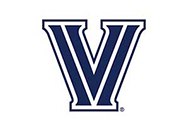
If you are looking at an online Ph.D. in Nursing program to attain the highest nursing degree, then you could consider Villanova University’s Ph.D. that prepares you to conduct clinical and educational based nursing research towards better nursing practice and education. This advanced credential will help you climb the career ladder in the academic field by preparing you to take up leadership positions in the higher education arena. With flexible schedules, you can complete this program in as little as two years or stretch it to three to four years. An additional two years are required for the completion of the nursing thesis.
The curriculum entails completing 51 credits; however, the exact number of credits may vary, depending on your past education. The coursework is designed to equip you with the practical and theoretical understanding required to create new knowledge of culturally relevant nursing practice and education. You will also learn to collaborate with members of other health disciplines to enhance your research.
• This Ph.D. program at Villanova is known for the personalized study experience it offers students. • Year after year, the National League for Nursing has honored the college’s Nursing School as being the Center of Excellence in Nursing Education, a testimony of the quality nursing education it offers.
9) Duquesne University - Pittsburgh, PA

The Ph.D. program being offered by Duquesne University since 1994 has trained over 100 graduates who are currently well established in their careers as nurse scientists. Primarily offered as a post MSN course, there is also a post-DNP track that can be completed in 2.5 years as it requires fewer credits. The Ph.D. program at Duquesne is mainly focused on preparing you for nursing research in addressing the health needs of the vulnerable and underserved populations that are economically backward and belong to racial or ethnic minorities.
To be eligible for this program, you must have earned a master’s, preferably in nursing, with a minimum GPA of 3.50. There is a three year and four-year track to choose from. The three-year track is rigorous and will hardly leave you any time for other commitments, whereas with the four-year track, you will be completing your coursework at a comfortable pace, typically taking six credits per semester, unlike the 6-10 in the three-year track. Both tracks require a graduate-level statistics course as a pre-requisite. The 53 credits curriculum includes 12 credits of a dissertation that takes place during the last year of your coursework.
• Residency requirements in this program include visits to the college campus, and as part of the Methods of Scientific Inquiry course, you will take part in a 10-14 day international trip to locations such as Dublin, Ireland, where you will be provided with housing at the college’s campus. • The program enjoys the distinction of being the first online Doctor of Philosophy in nursing program in the country.
10) University of Missouri - Columbia, MO

University of Missouri’s Ph.D. in Nursing prepares you for an advanced career in nursing, either as a scholar, educator, or clinical researcher. Due to its interdisciplinary approach, even non-nursing students can enter this program. To pursue this degree, you have three pathways; post-BSN, post-MSN, and post-DNP. Regardless of the pathway you choose, you will be taught by a faculty that comes from diverse academic backgrounds, bringing in their interdisciplinary experiences and knowledge.
This Ph.D. is offered in a hybrid mode, requiring few campus visits while taking the majority of your coursework online. There are three focus areas to choose from; innovations to improve health and health systems, health improvement of the vulnerable population, symptom, and behavior science. The post-BSN track requires completion of about 77 credits, whereas, the post-MSN and post-DNP require 56 and 48 credits, respectively.
• One of the few military-friendly online Ph.D. in Nursing programs in the nation, military personnel, veterans, and their eligible family members can avail of a 10% reduction in tuition costs. • You can benefit from the nursing school’s research connections across its various departments that include social work, public health, human development and family science, education, and health informatics.
- Accelerated BSN Programs
- BSN to DNP Programs
- DrPH Programs
- Family Nurse Practitioner Programs
- Masters In Gerontology Programs
- Nurse Practitioner Programs
- PhD in Nursing Programs
- Physician Assistant Programs
- RN to BSN Programs
- Student Experience
- Research Expertise
- Master of Science in Nursing (MSN)
- Doctoral Programs
- Dual Degree Programs
- Post-Degree Certificates
- Post-Doctoral Fellowships
- Executive Education
- Prerequisites for Health Professions
- Master of Science in Nursing (MSN): Entry into Nursing Program
- MSN Healthcare Organizational Leadership
- MSN Healthcare Organizational Leadership/MBA Dual Degree
- Doctor of Nursing Practice (DNP) Advanced Practice
- Doctor of Nursing Practice (DNP) Executive Track
- Doctor of Philosophy in Nursing (PhD)
- DNP: Adult-Gerontological Acute Care Nurse Practitioner
- DNP: Adult-Gerontological Primary Care Nurse Practitioner
- DNP: Family Primary Care Nurse Practitioner
- DNP: Pediatric Primary Care Nurse Practitioner
- DNP: Pediatric Dual Primary/Acute Care Nurse Practitioner
- DNP: Psychiatric Mental Health Nurse Practitioner
- DNP: Nurse Anesthesia
DNP Advanced Practice/PhD Dual Degree
- DNP Executive/MBA Dual Degree
- DNP Executive/MPH Dual Degree
- Doctor of Nursing Practice (DNP) to Doctor of Philosophy in Nursing (PhD)
- Post-Master’s Healthcare Organizational Leadership CERTIFICATE
- Post-Master’s Nursing Education CERTIFICATE
- Post-Master’s Pediatric Acute Care Nurse Practitioner CERTIFICATE
- Post-Master’s Psychiatric Mental Health Nurse Practitioner CERTIFICATE
- Post-Doctoral Opportunities
- How to Apply: Prerequisites for Health Professions
- Online Prerequisites for Health Professions FAQs
- Nutrition (NR.110.200)
- Human Growth and Development Through the Lifespan (NR.110.201)
- Biostatistics (NR.110.202)
- Microbiology with Lab (NR.110.203)
- Anatomy with Lab (NR.110.204)
- Physiology with Lab (NR.110.205)
- Chemistry with Lab (NR.110.206)
- Biochemistry with Lab (NR.110.207)
- Academic Advising
- Academic Calendar
- Academic Catalogue
- Academic Resources
- Course Schedules & Descriptions
- Student Academic/Administrative Forms
- Ask Admissions
Engage with Us
- Financial Aid & Scholarships
- How to Apply
- Tuition & Fees
- International Students
- Contact Admissions
- Admissions Talks
- Online Chats
- On-Campus Events
- Off-Campus Events
- Virtual Information Sessions
- Recorded Events & Informational Videos
- Connecting with Us
- Apply for Financial Aid
- Student Loans
- Scholarships, Grants & loans
- Student Employment Opportunities
- Other Funding Sources
- Financial Aid Forms and Helpful Links
- Financial Services Frequently Asked Questions and Financial Aid Policies
- Student Enrollment & Account Management (SEAM)
- Clinical Placement Services
- Disability Services
- Fellowships, Honors Programs & Learning Opportunities
- Student Affairs
- The Learning Collaborative
- Faculty Directory
- Faculty Opportunities
- Endowed Chairs in Nursing and Bloomberg Distinguished Professors
- Faculty Handbook
- Areas of Expertise
- Nursing Office of Research Administration (NORA)
- Research Centers, Institute, and Specialty Interest Groups
- Research Opportunities
- Research Projects & Funding
- Acute & Chronic Care
- Community & Global Public Health
- Gender-Based Violence
- Infectious Diseases
- Mental Health & Behavioral Interventions
- Policy, Leadership & Administration
- Women, Children & Family Health
Need your questions answered?
The best of both worlds.
Students in the DNP Advanced Practice/PhD Dual Degree program are motivated by clinical practice and research innovations that will produce practice transformations and improve care. This program is the first in the country where students can receive both degrees simultaneously from one school, and graduates will be prepared at the highest level to conduct clinical research, teach, mentor, and implement innovations to enhance patient outcomes.
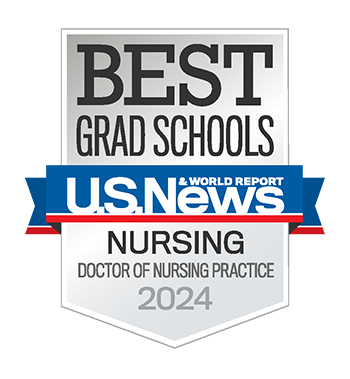
The DNP/PHD program creates rigorously prepared clinical scholars that offer the nursing profession a ’best of both worlds’ approach to creating innovative solutions for clinical curriculum development, faculty practice, and scientific inquiry. The program requires completion of both teaching and research residencies. Through the experiences, students will learn how to combine the roles of educator with clinician and scholar. Students will work with Hopkins faculty mentors to select courses and identify opportunities that align with their research and/or clinical training program.
Within the DNP portion of the program, students will select an advanced practice track from six nurse practitioner options, including pediatrics to family to adult/gerontology to psychiatric mental health. By combining the PhD goal of creating leaders in nursing science development with the DNP mission to prepare expert nurse clinicians into an integrated curriculum, students receive both outstanding research and clinical practice experience.
Program Details
Tuition & fees.
Estimated Tuition Cost: $2,179 per credit See Cost of Attendance Details Financial Aid: There are numerous options for financing your education including grants, scholarships, federal loans, and employment programs. Learn more.
Upcoming Application Deadlines
Fall entry: Dec 1
Requirements
Admission criteria.
Bachelor of Science in Nursing Degree or an entry-level nursing master’s degree from an ACEN or CCNE accredited college or university or an equivalent degree from a comparable foreign institution
Scholastic GPA of at least 3.0 on a 4.0 scale
Proof of current nursing licensure. Students must have or obtain Maryland RN licensure for matriculation (or RN license from a compact state)
One year of full-time RN experience preferred*
Three letters of recommendation (two academic and one professional)**
Official transcripts (from all previous colleges/universities)
Current Resume/CV
A written statement of Advanced Practice role and research goals including reason for interest in Johns Hopkins
Writing sample (publication or graded paper)
GRE scores are accepted but not required
Research interests that match faculty expertise and School resources
Interview with faculty (if moved forward by admissions committee)
TOEFL or IELTS if English is not your native language
Information for applicants with international education
*The DNP Dual Pediatric Primary and Acute Care NP track requires one year of full-time pediatric RN experience in an acute care setting engaged in the direct care of physiologically unstable pediatric patients within an acute care environment (critical care, intermediate care, Level 1 pediatric ED, stepdown, pediatric med-surg, hem-onc preferred) required by the start of the program.
*The DNP Adult-Gerontological Acute Care NP track requires one year of full-time RN experience engaged in the direct care of adults and older adults who are physiologically unstable, technologically dependent, and require frequent monitoring and intervention within an inpatient, acute care setting (intensive or critical care, intermediate care, progressive care, stepdown or telemetry unit) by the start of the program.
**References should be recent, written for the purpose of your application to this program and from professors who know you as a student or employers who know you as a professional in a job setting preferably in a supervisory role. Personal references from colleagues, friends, or family members do not meet the requirement. For PhD applicants, it is strongly preferred that a least one of your recommenders holds a PhD.
Prerequisites
No prerequisite courses.
Student Sponsorship
This program does not qualify for F-1 or J-1 student sponsorship. Legal Permanent Residents and non-immigrants who are otherwise physically present in the U.S. and in a status that allows for full or part-time study, may pursue this program.
No. 1 in the nation for its Doctor of Nursing Practice Program (DNP)
No. 1 (tied) in the nation for its Nursing Master’s Program (MSN)
No. 3 nursing school in the world, according to 2024 QS World University rankings
The program is designed to be completed in a five-year, full-time plan of study. The program highlights both a structured teaching and research residency. The plan below is a sample of the DNP Advanced Practice/PhD curriculum. For a dual degree, all coursework must be completed before either degree is awarded.
DNP Advanced Practice/PhD Total Number Of Credits And Clinical Hours By Track
Year 1 Fall 12 credits
- Quantitative Research Design and Methods [3cr]
- Statistical Methods in Public Health I (Biostats I) [3cr]
- Statistical Methods in Public Health II (Biostats II) [3cr]
- Philosophical Perspectives in Health [3cr]
Year 1 Spring 12 credits
- Qualitative Research Designs and Methods [2cr]
- Mixed Methods Research Designs [2cr]
- Statistical Methods in Public Health III (Biostats III) [3cr]
- Scientific Perspectives Nursing [3cr]
- Measurement in Healthcare [2cr]
Year 1 Summer 2 credits
- Grant Development & Writing [1cr]
- Clinical Research Residency I (EBP Project) [1cr]
- Comp Exams [NC]
- Teaching Experience [NC]
Year 2 Fall 12 credits
- Dissertation Seminar [1cr]
- Dissertation [2cr]
- PhD Elective [3cr]
- Introduction to Quality Improvement & Knowledge Translation (1st term) [2cr]
- Advanced Health Policy [2cr]
- Organizational and Systems Leadership for Quality Healthcare [2cr]
- Research Residency [NC]
Year 2 Spring 9 credits
- Responsibilities and Activities of Nurse Scientist [2cr]
- PhD Elective [4cr]
- Preliminary Oral Exams [NC]
Year 2 Summer 3 credits
- PhD Elective Credit [3cr]
- NRSA Submission [NC]
Year 3 Fall 11 credits
- Health Promotion and Disease Across the Lifespan [2cr]
- Advanced Physiology and Pathophysiology I [2cr]
- Pharmacology for Advanced Practice I [2cr]
- Introduction Comparative Effectiveness & Outcome Research (3rd term) [2cr]
Year 3 Spring 12 credits
- Advanced Health Assessment & Measurement [3cr]
- Advanced Physiology and Pathophysiology II [2cr]
- Pharmacology for Advanced Practice II [2cr]
- Diagnostic Skills and Procedures for Advanced Practice Nursing Part I [1cr]
- Diagnostic Skills and Procedures for Advanced Practice Nursing Part 2 Acute Care [1cr]
- Introduction to Acute Care Fundamentals [3cr]
- Introduction to Acute Care Clinical Management [1cr, 80 clinical hrs]
- Advanced Practice in Acute Care I Diagnostic Reasoning [3.5cr]
- Advanced Practice in Acute Care I Clinical Management [2cr, 160cl]
- Healthcare Finance for Advanced Nursing Practice [2cr]
- Teaching or Research Residency if needed [NC]
- Advanced Practice in Acute Care II Diagnostic Reasoning [2cr]
- Advanced Practice in Acute Care II Clinical Management [2.5cr, 200cl]
Year 4 Summer 1 credits
- Clinical Research Residency II (EBP) [1cr]
Year 5 Fall 10.5 credits, 200 clinical hours
- Advanced Practice in Acute Care III Diagnostic Reasoning [3cr]
- Advanced Practice in Acute Care III Clinical Management [2.5cr, 200cl]
- Advanced Applications of Information Technology in Healthcare Delivery [2cr]
- Final Oral Defense [NC]
Year 5 Spring 8.5 credits, 200 clinical hours
- Advanced Practice in Acute Care IV Diagnostic Reasoning [3cr]
- Advanced Practice in Acute Care IV Clinical Management [2.5cr, 200cl]
Program Total: 115 credits [cr], 840 Clinical Hours [cl] Please note, curriculum, credit hours, and sequencing are subject to change.
- Research Residency
Year 2 Spring 8 credits
- Advanced Physiology and Pathophysiology Part I [2cr]
- Pharmacology for Advanced Practice Part I [2cr]
Year 3 Spring 13 credits
- Advanced Health Assessment and Measurement for Advanced Practice Nurses [3cr]
- Advanced Physiology and Pathophysiology Part II [2cr]
- Pharmacology for Advanced Practice Part II [2cr]
- Diagnostic Reasoning I: Wellness in Primary Care and Common Acute Health Conditions Across the Lifespan [3cr]
- Dissertation Seminar [2cr]
Year 3 Summer 6.5 credits, 200 clinical hours
- Diagnostic Reasoning II: Common Acute and Chronic Health Conditions Across the Lifespan [3cr]
- Clinical Management I: Adult-Gerontology Primary Care Nurse Practitioner [2.5cr, 200cl]
Year 4 Fall 10.5 credits, 200 clinical hours
- Diagnostic Reasoning III: Clinical Management for the Adult Primary Care Nurse Practitioner: Gender/Reproductive, and Psych/Mental Health Care [3cr]
- Clinical Management II: Adult-Gerontology Primary Care Nurse Practitioner [2.5cr, 200cl]
Year 4 Spring 9 credits, 160 clinical hours
- Diagnostic Reasoning IV Clinical Management for the Adult Primary Care Nurse Practitioner: Chronic, Complex and Multi-System Illnesses and Conditions [3cr]
- Clinical Management III: Adult-Gerontology Primary Care Nurse Practitioner [2cr, 160cl]
- Diagnostic Skills and Procedures for Advanced Practice Nursing 2: Primary Care [1cr]
- Clinical Management IV: Adult-Gerontology Primary Care Nurse Practitioner [2.5cr, 200cl]
- DNP AP Elective [3cr]
- Clinical Management V: Adult-Gerontology Primary Care Nurse Practitioner [2.5cr, 200cl]
Program Total: 119 credits [cr], 960 clinical hours [cl] Please note, curriculum, credit hours, and sequencing are subject to change.
Year 2 Fall 13 credits
- Introduction to Quality Improvement & Knowledge Translation (1st term) [3cr]
Year 2 Spring 10 credits
- Human Growth, Development and Supervision Birth through Adolescence [2cr]
- Clinical Management I: Family Nurse Practitioner [2.5cr, 200cl]
- Diagnostic Reasoning III: Psych Mental Health, Gender Specific/Reproductive, and Healthcare Conditions Across the Lifespan [3cr]
- Clinical Management II: Family Nurse Practitioner [2.5cr, 200cl]
- Diagnostic Reasoning IV: Complex, Chronic Multi-Symptom, and Special Population Health Across the Lifespan [3cr]
- Clinical Management III: Family Nurse Practitioner [2cr, 160cl]
Year 4 Summer 2.5 credits, 200 clinical hours
- Clinical Management IV: Family Nurse Practitioner [2.5cr, 200cl]
- Clinical Management V: Family Nurse Practitioner [2.5cr, 200cl]
Program Total: 121 credits [cr], 960 Clinical Hours [cl]
- Diagnostic Reasoning I: Newborn and Young Child: Wellness, Nutrition, and Developmental Surveillance in Pediatric Primary Care [3cr]
Year 3 Summer 5.5 credits, 120 clinical hours
- Diagnostic Reasoning II: Common Acute Health Conditions in Pediatric Primary Care [3cr]
- Clinical Management I PNP [1.5cr, 120cl]
Year 4 Fall 10 credits, 160 clinical hours
- Diagnostic Reasoning III: Children and Adolescents: Wellness, Behavioral/Mental Health, and Gender/Reproductive Health in Pediatric Primary Care [3cr]
- Clinical Management II: Pediatric Nurse Practitioner [2cr, 160cl]
- Diagnostic Reasoning IV: Chronic, Complex, and Multi-System Illnesses in Pediatric Primary Care [3cr]
- Clinical Management III: Pediatric Nurse Practitioner [2cr, 160cl]
Year 4 Summer 2 credits
- Clinical Management IV: Pediatric Nurse Practitioner [2.5cr, 200cl]
- Clinical Management V: Pediatric Nurse Practitioner [2.5cr, 200cl]
Program Total: 119.5 credits [cr], 960 Clinical Hours [cl]
Year 4 Summer 2.5 credit, 120 clinical hours
- Pediatric Acute Care Practicum I [1.5cr, 120cl]
- Advanced Topics for the Acute Care Pediatric Nurse Practitioner I [3cr]
- Pediatric Acute Care Practicum II [2.5cr, 200cl]
- Advanced Topics for the Acute Care Pediatric Nurse Practitioner II [3cr]
- Pediatric Acute Care Practicum III [2.5cr, 200cl]
Please note, curriculum, credit hours, and sequencing are subject to change.
Year 3 Fall 13 credits
Year 3 Summer 5 credits
- Introduction to Psychiatric Mental Health Nurse Practitioner Practice Interview Techniques [2cr]
- Diagnostic Skills for Psychiatric and Mental Health Advanced Practice Nursing [1cr]
- Elective [2cr]
Year 4 Fall 13 credits
- Neurobiology of Mental Disorders [1cr]
- Clinical Psychopharmacology [2cr]
- Differential Diagnosis of Mental Disorders [3cr]
- Psychotherapeutic Frameworks and Modalities [2cr]
Year 4 Spring 8 credits, 240 clinical hours
- Diagnostic Reasoning I: Psychiatric Mental Health Nurse Practitioner: Adult/Gero [1cr]
- Clinical Management I: Psychiatric Mental Health Nurse Practitioner: Adult/Gero [3cr, 240cl]
- Integrated Care I for the Psychiatric/Mental Health Nurse Practitioner [1cr]
Year 4 Summer 4 credits, 160 clinical hours
- Diagnostic Reasoning II: Psychiatric Mental Health Nurse Practitioner: Children and Families [1cr]
- Clinical Management II: Psychiatric Mental Health Nurse Practitioner: Children and Families [2cr, 160cl]
Year 5 Fall 11 credits, 320 clinical hours
- Integrated Care II for the Psychiatric/Mental Health Nurse Practitioner [1cr]
- Clinical Management III: Psychiatric Mental Health Nurse Practitioner [4cr, 320cl]
Year 5 Spring 8 credits, 320 clinical hours
- Clinical Management IV: Psychiatric Mental Health Nurse Practitioner [4cr, 320cl]
- DNP AP Elective [1cr]
Program Total: 126 credits [cr], 1040 Clinical Hours [cl] Please note, curriculum, credit hours, and sequencing are subject to change.
** Curriculum, credit hours, and sequencing are subject to change. ***Transfer of credit is granted on an individual basis. Please see the transfer of credit policy and complete the form to make a request. Note – A minimum of 1000 practice hours is required for the DNP. The Dissertation Seminar & Dissertation courses will provide additional practice hours to meet this requirement.
“I wanted to be a provider to care for people with dementia and Alzheimer’s as well as work toward new treatments and interventions. … The DNP/PhD is training me to become an adult-gerontological nurse practitioner and a researcher—I can get evidence-based care to my patients sooner.” Inga Antonsdottir, DNP/PhD Candidate
Join us soon for a tour, on-campus event or a virtual visit.
Request Information
Speak with Admissions to learn more about our programs.
Virtual Info Sessions
See recordings of some of our recent virtual info sessons.
Tuition & Other Costs
Financial aid.
View the costs for the DNP Advanced Practice/PhD Dual Degree. 2024-2025
State Authorization Disclosures
PhD/DNP Dual Adult Gerontological Acute Care NP PhD/DNP Dual Adult Gerontological Primary Care NP PhD/DNP Dual Pediatric Acute and Primary Care NP PhD/DNP Dual Family Primary Care NP PhD/DNP Dual Pediatric Primary Care NP PhD/DNP Dual Psychiatric Mental Health NP
Scholarships & Grants: Grants are awards based on financial need that do not have to be repaid. Many students also benefit from scholarships and awards based on merit. Learn more.
Loans: Many students will avail themselves of loans to help finance their School of Nursing education. If necessary, we encourage you to borrow only what is absolutely essential to cover your educational costs. Learn more.
Employment: Many students locate part-time employment to help pay education expenses. Numerous positions are available on campus and within various community based organizations. These jobs provide students with opportunities to gain practical work experience. Most positions are funded through the Federal Work-Study Program. Learn more.
Pathway to PhD Nursing Scholars Program
Current opportunities to join our faculty. Learn more

Search other: Penn State

PhD in Nursing Program
The PhD program prepares nurse scientists to provide leadership through scientific inquiry and innovative practice. Faculty of the Ross and Carol Nese College of Nursing believe that significant learning at the doctoral level occurs best within a mentor-type model. Highly individualized plans of study provide each student the opportunity to develop depth of expertise and research capability within a specialized area. Graduates of the PhD program are prepared to assume positions as faculty, researchers, and leaders in educational, community, governmental, or institutional settings.
PhD Program Options
This program enables highly qualified students to pursue doctoral study directly from a bachelor’s degree program in nursing. Learn more in the handbook >>
MS/MSN to PhD
This program is for students who have already earned a master’s degree in nursing or a related field. Learn more in the handbook >>
Dual-Title PhD in Nursing & Bioethics
This dual-title degree option provides Nursing PhD students with the skills and knowledge necessary to fully engage ethical issues within the discipline of nursing, to conduct original bioethics research, and produce bioethics-related scholarship.
Nursing PhD students may pursue additional training in bioethics through the dual-title PhD program in Nursing and Bioethics. Students must apply and be admitted to the graduate program in Nursing and the Graduate School before they can apply for admission to the dual-title degree program. Admission to the dual-title is determined upon review of all application materials by the admissions committee in Bioethics.
Students on this path explore the skills and knowledge needed to address ethical issues, conduct original bioethics research, and produce related scholarship. To qualify for the dual-title degree, students must satisfy the requirements of the Nursing PhD program as well as those of the Bioethics program committee. Learn more in the handbook >>
Dual-Title PhD in Nursing & Clinical and Translational Sciences (CTS)
The dual-title degree option provides Nursing PhD students with additional preparation for career paths that involve clinical trials or clinical research programs.
Nursing PhD students may pursue additional training in clinical and translational sciences (CTS) through the dual-title PhD program in Nursing and CTS. Students must apply and be admitted to the graduate program in Nursing and the Graduate School before they can apply for admission to the dual-title degree program. Admission to the dual-title is determined upon review of all application materials by the admissions committee in CTS.
The dual-title PhD program in Nursing and CTS allows nursing PhD students to pursue additional preparation for career paths that involve clinical trials or clinical research programs. In addition to satisfying the requirements of the Nursing PhD program, students must satisfy additional requirements established by the CTS program committee. Within this framework, course selection is determined by the student, their Nursing adviser, and the CTS program adviser. Learn more in the handbook >>
Full descriptions of our program outcomes, course descriptions, requirements, and plans of study are available in the PhD Handbook .
Why penn state nursing.
Home to experts who push the bounds of our knowledge and refine the translation of that knowledge into real-world application, Penn State Nursing is a premier educator of the next generation of nurse leaders. You can work alongside one of our American Academy of Nursing Fellows and world-renowned experts who will mentor you along your educational journey.
Penn State Nursing has a variety of research opportunities , and our Center for Nursing Research team is poised to help secure unique opportunities specific to you and your interests.
Research Areas :
- Gerontology & Aging
- Palliative & End-of-life Care
- Physiological & Molecular Mechanisms Underlying Health and Well-being
- Health and Healthcare Disparities
- Intervention and Implementation Science
- Nursing Education
For more information on our faculty research expertise, visit our Research Faculty page.
Locations :
- University Park
Funding Opportunities:
Select BSN to PhD are provided a minimum of four years of funding. Select MSN to PhD are provided a minimum of three years of funding. Continued funding is contingent upon such things as availability, grades, and assistantship evaluations. Applicants who wish to be considered for Fall 2024 funding must have a completed application submitted to the Graduate School prior to February 1, 2024.
Admissions :
Admission requirements are outlined on the Penn State Bulletin website. Applications to the program can be done through the Graduate School . For questions about the program, contact Susan Loeb , PhD program director.
- Request Information
- Research Faculty
- Current PhD Students

Doctor of Philosophy (PhD) in Nursing Leadership Conduct Original Research in Nursing

Credit Hours
View Courses
100% online, 8-week courses
Transfer in up to 50% of the degree total
Join a Community of Dedicated Professionals in Healthcare
The Doctor of Philosophy (PhD) in Nursing Leadership at Liberty University provides a comprehensive online education designed to help you prepare to pursue roles in the healthcare industry. This program offers a blend of theoretical knowledge and practical skills, focusing on leadership, research, and advanced nursing practice. As a student in this program, you can enhance your ability to drive change within healthcare organizations, influence policy, and contribute to the advancement of nursing science.
Liberty University’s online format allows you to balance your studies with personal and professional responsibilities. You can engage with a dynamic curriculum that integrates leadership theories with real-world applications, laying the groundwork for tackling the complexities of modern healthcare systems. The program emphasizes the development of critical thinking, ethical decision-making, and innovative problem-solving skills essential for effective leadership in nursing.
Your journey through this PhD program culminates in a dissertation, where you will have the opportunity to conduct original research that contributes to the body of knowledge in nursing leadership. This dissertation not only allows you to demonstrate your expertise but also can help you prepare to take on different roles in academia, research, and executive leadership within the healthcare sector.

Ranked in the Top 10% of Niche.com’s Best Online Schools in America
- What Sets Us Apart?
- Private Nonprofit University
- 600+ Online Degrees
- No Standardized Testing for Admission
- Transfer in up to 75% of an Undergrad Degree
- Transfer in up to 50% of a Grad/Doctoral Degree
Why Choose Liberty’s PhD in Nursing Online Program?
Choosing Liberty University for your PhD in Nursing Leadership means joining a community committed to academic excellence and Christian values. The university’s supportive environment fosters both your intellectual and spiritual growth, ensuring a holistic educational experience. Liberty’s faculty comprises seasoned professionals and scholars who possess a wealth of experience and knowledge, providing you with mentorship and guidance throughout your academic journey.
Liberty’s online learning platform is designed with flexibility and convenience in mind, allowing you to access coursework, resources, and support services from anywhere with an internet connection. You can engage in interactive discussions, collaborate with peers, and receive feedback from instructors, all while maintaining your professional and personal commitments. The aim of this flexible online format is to allow you to advance your education without compromising your current responsibilities.
What Will You Study in Our Online PhD in Nursing Program?
In the PhD in Nursing Leadership program, you will explore a diverse range of courses that can help equip you with skills and knowledge for leadership roles within healthcare. Courses such as Leading Organizational Change and Ethical Leadership can help you prepare to navigate and implement change management strategies and uphold ethical standards in complex healthcare environments. You will also delve into informatics, technology, and trends for transforming healthcare, where you can learn how to leverage technology to improve patient care and operational efficiency.
Leadership in Healthcare Transformation as well as Public Health Administration and Leadership will provide you with insights into driving systemic improvements and managing public health initiatives. Through Policy in Health Care, you will study the intricacies of healthcare policymaking and its impact on practice and administration. Your research skills can be honed through courses in advanced educational statistics, quantitative research, and qualitative research, allowing you to become adept at analyzing data and conducting rigorous research. You can choose to deepen your research expertise with either Advanced Quantitative Methods of Nursing Research or Advanced Qualitative Methods of Nursing Research, tailoring your studies to your interests and career goals.
An essential part of your doctoral journey will be the dissertation, where you will apply your learning to investigate a specific issue in nursing leadership. This project allows you to contribute original insights to the field, helping you conduct research and disseminate your findings. Through this comprehensive curriculum, you can prepare to lead, innovate, and make an impact in the world of healthcare.
Potential Career Opportunities
- Chief nursing officer
- Director of clinical services
- Director of nursing research
- Quality improvement manager
Featured Courses
- BMAL 704 – Leading Organizational Change
- BMAL 770 – Ethical Leadership
- NURS 718 – Informatics, Technology, and Trends for Transforming Health Care*
- NURS 829 – Leadership in Healthcare Transformation*
*Course guide available upon request
Degree Information
- This program falls under the School of Nursing .
- View the Graduate Nursing Course Guides (login required).
Degree Completion Plan (PDF)

Not sure what to choose?
Speak to one of our admissions specialists to help you choose the program that best fits your needs.
- Tuition & Aid
Your success is our success, which is why we are committed to providing quality academics at an affordable tuition rate. While other colleges are increasing their tuition, we have frozen tuition rates for the majority of our undergraduate, graduate, and doctoral programs for the past 9 years – and counting.
| Doctoral Full Time | |
|---|---|
| Doctoral Part Time |
Eligible current and former military service members and their spouses may qualify for a special rate of $300/credit hour ( learn more ) .
All Tuition & Fees
Financial Aid & Scholarships
Financial Aid Forms & Eligibility
Scholarship Opportunities
- Admission Information
Admission Requirements
- A non-refundable, non-transferable $50 application fee will be posted on the current application upon enrollment (waived for qualifying service members, veterans, and military spouses – documentation verifying military status is required) .
- Send official college transcripts (mailed as sealed, unopened copies or sent via a direct electronic transcript system). A regionally or nationally accredited Master of Science in Nursing (MSN) degree with at least a 3.0 GPA is required for admission in good standing.
- Contact information for one recommender
- Statement of Purpose
- One year minimum experience as a Registered Nurse (RN). Registered Nurse Licensure verification will be conducted annually until the curriculum for the online PhD in Nursing Leadership is completed. As the student, you are responsible to notify the School of Nursing should any restrictions be placed on your license.
- Applicants whose native language is other than English must submit official scores for the Test of English as a Foreign Language (TOEFL) or an approved alternative assessment. For information on alternative assessments or TOEFL waivers, please call Admissions or view the official International Admissions policy .
Preliminary Acceptance
If you are sending in a preliminary transcript for acceptance, you must:
- Be in your final term and planning to start your doctoral degree after the last day of class for your master’s degree.
- Complete a Master’s Self-Certification Form confirming your completion date. You may download the form from the Forms and Downloads page or contact an admissions counselor to submit the form on your behalf.
- Submit an official transcript to confirm that you are in your final term. The preliminary transcript must show that you are within 6 credit hours of completion for a 30-48 credit hour master’s degree or within 9 credit hours of completion for a 49+ credit hour master’s degree.
- Send in an additional, final official transcript with a conferral date on it by the end of your first semester of enrollment in the new doctoral degree.
Transcript Policies
Official college transcript policy.
An acceptable official college transcript is one that has been issued directly from the institution and is in a sealed envelope. If you have one in your possession, it must meet the same requirements. If your previous institution offers electronic official transcript processing, they can send the document directly to [email protected] .
Admissions Office Contact Information
(800) 424-9596
(888) 301-3577
Email for Questions
Email for Documents
Liberty University Online Admissions Verification
1971 University Blvd.
Lynchburg, VA 24515

Ready to Apply?
Submit your application online or over the phone.
Apply by phone: (800) 424-9595
Liberty University is dedicated to providing world-class educational experiences to military students across the globe.
Who May Qualify?
- Active Duty
- Reserve/National Guard
- Veterans/Retirees
- Spouses of Service Members and Veterans/Retirees
Military Tuition Discount
We want to help you find the doctoral degree you want – at a price you’ve earned. As a thank-you for your military service, Liberty University offers eligible current and former service members like you or your spouse multiple pathways to earn a doctoral degree for only $300/credit hour . Find out how you can take advantage of this unique opportunity as you work toward your goal of reaching the pinnacle of your profession – for less.
Inner Navigation
- Why Choose Liberty?
- What Will You Study?
Have questions?

Are you ready to change your future?
Apply FREE This Week*
Request Information
*Some restrictions may occur for this promotion to apply. This promotion also excludes active faculty and staff, military, non-degree-seeking, DGIA, Continuing Education, WSB, and certificate students.
Request Information About a Program
Request info about liberty university online, what program are you interested in, choose a program level.
Choose a program level
Bachelor’s
Master’s
Certificate
Select a Field of Study
Select a field of study
Select a Program
Select a program
Next: Contact Info
Legal first name.
Enter legal first name
Legal Last Name
Enter legal last name
Enter an email address
Enter a phone number
Full Address
Enter an address
Apt., P.O. Box, or can’t find your address? Enter it manually instead .
Select a Country
Street Address
Enter Street Address
Enter State
ZIP/Postal Code
Enter Zip Code
Back to automated address search
Start my application now for FREE
- Accessibility Options:
- Skip to Content
- Skip to Search
- Skip to footer
- Office of Disability Services
- Request Assistance
- 305-284-2374
- High Contrast
- School of Architecture
- College of Arts and Sciences
- Miami Herbert Business School
- School of Communication
- School of Education and Human Development
- College of Engineering
- School of Law
- Rosenstiel School of Marine, Atmospheric, and Earth Science
- Miller School of Medicine
- Frost School of Music
School of Nursing and Health Studies
- The Graduate School
- Division of Continuing and International Education
- People Search
- Class Search
- IT Help and Support
- Privacy Statement
- Student Life

- About SONHS
- Faculty & Staff
- LIfe at SONHS
- Master's Programs
- Grad Program RFI | School of Nursing and Health Studies

Accepting Applications for Fall 2024
Transform your future and be part of our family.
Each program track offers learners a wide range of advanced educational and clinical experiences, with the flexibility students need for their work/life balance. Our degree programs blend the best in educational, clinical, and leadership experience with the benefit of Guaranteed Clinical Placement, available Tuition Aid and Scholarships, and rigorous preparation for National Certification, as well as eligibility to take specialty certification examinations.
The Master’s program tracks at SONHS lead to a Master’s of Science in Nursing. Our seamless integration of state-of-the-art classroom and simulation learning with extensive clinical practice help our graduates acquire skills that will improve patient outcomes and create leaders in the healthcare community.
Alternatively, our BSN-DNP program tracks lead to a Doctor of Nursing Practice (DNP). The DNP is emerging as the standard for certification and licensure in advanced nursing practice. Qualified nurse leaders are needed now more than ever to guide Health Care teams, shape future generations, and help bridge gaps in patient care.
Additionally, Post-Master’s Certificates are available for graduates who would like to gain further knowledge in advanced practice nursing. Graduates of these programs are prepared to function independently and collaboratively with health care team members to provide comprehensive health care that will maximize patient care outcomes.
Both Master’s and BSN-DNP Tracks are available for:
- Adult-Gerontology Acute Care Nurse Practitioner
- Adult-Gerontology Primary Care Nurse Practitioner
- Family Nurse Practitioner
A Post Master’s Certificate Program is available for:
- Psychiatric Mental Health Nurse Practitioner
Contact us today to see which Master's program is right for you! *By clicking submit, I consent to receive calls and/or text messages by a University representative with information for educational opportunities at the number(s) provided.
Request Information about SONHS Graduate Programs
Scholarship opportunities.
If you’re applying to the full time Family Nurse Practitioner (FNP) program, you could qualify for up to $40,000.00 towards tuition. Find out more here: https://www.sonhs.miami.edu/admissions-and-student-services/financial-aid-and-community-scholarships/index.html
U.S. News & World Report
MSN ranked #27 | DNP ranked #31
Nursing Practice Programs (BSN, MSN, post-graduate APRN certificate program, DNP) Full CCNE Accreditation through 2031 (max period) 95% MSN Overall Pass Rate
Clinical Placements
You Don't Have to Find Your Own Clincial Placement
Hands-on care is an integral part of our curriculum. Students work with a wide variety of over 200 clinical partners, including the University of Miami Health System, and the state of the art Simulation Hospital Advancing Research & Education (S.H.A.R.E. ® ) .
Learn More About Our Clinical Partners
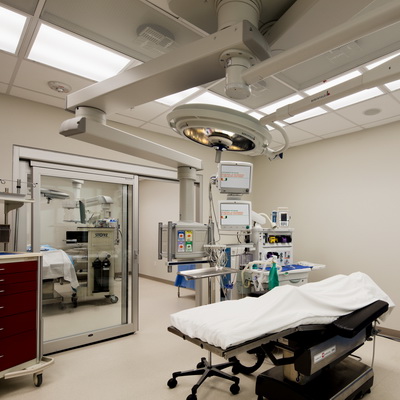
Prepare Today, Lead Tomorrow
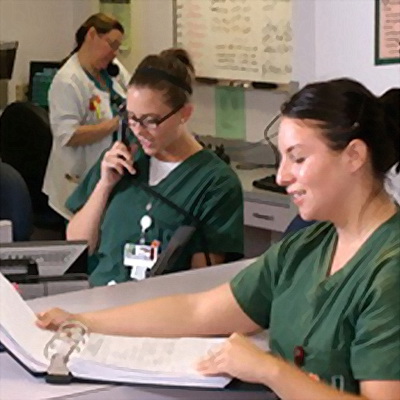
Clinical Matching
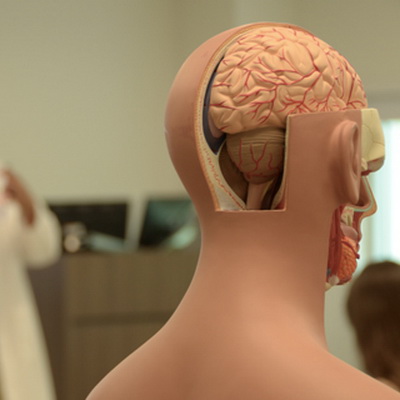
Learn. Innovate. Transform.
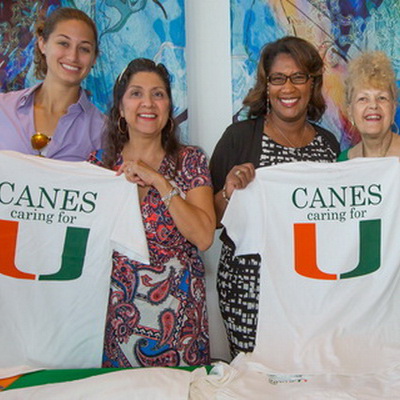
Join the SONHS Family!

- P.O. Box 248153 Coral Gables , FL 33124
- 305-284-3666 305-284-3666
- Academic Calendar
- Alumni & Friends
- Medical Center
- Hurricane Sports
- Parking & Transportation
- social-facebook
- social-twitter
- social-youtube
- social-instagram
Copyright: 2024 University of Miami. All Rights Reserved. Emergency Information Privacy Statement & Legal Notices
Individuals with disabilities who experience any technology-based barriers accessing the University’s websites or services can visit the Office of Workplace Equity and Inclusion .
What Are the Highest-Paying Jobs in Public Health?

NurseJournal.org is committed to delivering content that is objective and actionable. To that end, we have built a network of industry professionals across higher education to review our content and ensure we are providing the most helpful information to our readers.
Drawing on their firsthand industry expertise, our Integrity Network members serve as an additional step in our editing process, helping us confirm our content is accurate and up to date. These contributors:
- Suggest changes to inaccurate or misleading information.
- Provide specific, corrective feedback.
- Identify critical information that writers may have missed.
Integrity Network members typically work full time in their industry profession and review content for NurseJournal.org as a side project. All Integrity Network members are paid members of the Red Ventures Education Integrity Network.
Explore our full list of Integrity Network members.
Public Health Jobs Overview
- Top-Paying Undergraduate Jobs
- Top-Paying Graduate Jobs
Are you ready to earn your online nursing degree?

Public health professionals help prevent and control disease, respond to emergencies, and promote overall health at the population level.
They also conduct important scientific research that can lead to better treatments and health outcomes. Public health positions are challenging, but they can also be very rewarding from a financial and professional standpoint.
Learn more about the field and its highest-paying roles, including for professionals with both undergraduate and graduate-level training.
Popular Online Master’s in Public Health Programs
Learn about start dates, transferring credits, availability of financial aid, and more by contacting the universities below.
Public health is the science and practice of protecting and improving community health through education, policy, and research. There are various professions included in the public health field, including:
- Epidemiologists
- Health educators
- Environmental health scientists
- Medical and health services managers
- Biostatisticians
Demand for these and other health professionals is growing faster than the national average. Public health professionals help society prepare for and respond to pandemics and other health emergencies and address growing rates of chronic disease.
Public health positions requiring an undergraduate degree typically pay lower salaries than positions that require a graduate-level education. For example, data from the federal Bureau of Labor Statistics shows that health education specialists, a position that requires a minimum of an undergraduate degree, earn a median annual wage of $62,860 , while medical scientists, which require a graduate-level degree, earn a median of $112,380 per year .
The Highest-Paying Undergraduate Public Health Jobs
Public health professionals with undergraduate degrees can pursue many opportunities. Your salary will vary depending on geographic location, job function, and experience. A bachelor of public health is one common undergraduate public health degree . While an undergrad degree is the minimum educational requirement, employers may offer more to those with graduate degrees.
| Rank | Career | Median Annual Salary |
|---|---|---|
| 1 | Public Health Nurse | |
| 2 | Emergency Management Director | |
| 3 | Environmental Scientist | |
| 4 | Social and Community Service Manager | |
| 5 | Healthcare Consultant With Public Health Skills |
1 | Public Health Nurse
A public health nurse focuses on community health, preventing disease, and promoting wellness. They operate in a variety of settings, including schools, clinics, and community centers. They use education, advocacy, and direct care to target underserved populations. Public health nurses play a critical role in managing public health crises and improving overall community health outcomes. Their key responsibilities include conducting health screenings, education, and vaccination.
Average Annual Salary: $72,314
2 | Emergency Management Director
An emergency management director develops plans and procedures for responding to natural disasters and other emergencies. This ensures the community’s safety and improves resilience. These professionals coordinate with a variety of agencies to manage resources and lead response efforts. Their key responsibilities include risk assessment, emergency response training, and public communication. The role is crucial for mitigating the impact disasters have on communities and safeguarding public health.
Average Annual Salary: $80,092
3 | Environmental Scientist
Environmental scientists study conditions and identify, mitigate, and prevent health hazards. They analyze air, water, and soil samples to develop pollution control strategies and work on policies that protect human health and the environment. Governmental agencies, nonprofit organizations, and consulting firms often employ environmental scientists. They play a critical role in addressing issues like waste management and environmental problems like toxic spills.
Average Annual Salary: $57,785
4 | Social and Community Service Manager
A social and community service manager oversees programs that support public health. They work with nonprofit organizations, government agencies, and healthcare facilities, managing staff, developing budgets, and coordinating services. In their role, they assess community needs, implement effective programs, and evaluate the program’s impact to improve community health and social outcomes. Services may include housing, child welfare programs, and mental health support.
Average Annual Salary: $77,030
5 | Healthcare Consultant with Public Health Skills
These healthcare consultants offer expert advice on health issues, with an emphasis on public health. They help develop programs to promote health and prevent diseases. These professionals work with nonprofit organizations, private organizations, and government agencies to create policies and interventions that improve community health.
Average Annual Salary: $79,978
The Highest-Paying Graduate Public Health Jobs
Public health offers a variety of rewarding careers for those with advanced degrees. Jobs requiring a master’s in public health degree or higher require specialized knowledge and skills to tackle complex health challenges using research, policymaking, and advanced clinical practices. Public health jobs are in demand, driven by ongoing health challenges.
| Rank | Career | Median Annual Salary |
|---|---|---|
| 1 | Biostatistician | |
| 2 | Health Economist | |
| 3 | Genetic Counselor | |
| 4 | Healthcare Administrator | |
| 5 | Epidemiologist |
1 | Biostatistician
A biostatistician in public health applies statistical methods to analyze and interpret data relating to health outcomes. Biostatisticians design studies, manage data collection, and perform complex statistical analyses. Their work is critical to identifying health trends, evaluating interventions, and guiding decision-making. They contribute significantly to the advancement of medical and public health research.
Average Annual Salary: $82,480
2 | Health Economist
A health economist analyzes the economic impact and aspects of healthcare to inform policy and improve efficiency. Health economists primarily study the costs, benefits, and impacts of health policies and interventions to optimize resource allocation and ultimately enhance health outcomes. They are employed by government agencies, research institutions, and nonprofits where they play a crucial role in shaping effective systems and policies.
Average Annual Salary: $81,161
3 | Genetic Counselor
A genetic counselor can assess individual risk for inherited conditions, including genetic disorders and birth defects. They provide information and support patients and families to help them understand risks and their testing options. Genetic counselors have an important long-term impact on public health practices as they are involved in population-based screening programs, lobbying for public policy, public health-related research, and chronic disease programs.
Average Annual Salary: $81,076
4 | Healthcare Administrator
Some healthcare administrators go on to lead hospitals or large business units within a facility or healthcare system. There are many different jobs within this field, however, from the correctional system to the nation’s most prestigious hospitals, a graduate-level public health degree can prepare you to pursue them.
Average Annual Salary: $78,447
5 | Epidemiologist
An epidemiologist studies patterns, causes, and effects of disease conditions within a defined population. They are often involved in designing and conducting studies, collecting and analyzing data, and developing public health interventions that help to control and prevent health problems. Epidemiologists play a crucial role in managing health outbreaks and informing public health policies.
Average Annual Salary: $69,676
Frequently Asked Questions About Public Health Jobs
What is the highest-paying public health job.
Salaries are highly influenced by geographic location, level of education, organization, job description, and any certifications you may hold. Biostatisticians and health economists earn some of the highest salaries in the public health field.
Is public health a good career path?
Yes, public health appears to be a good career path for those interested in making a difference in their community. Jobs in public health are also in high demand. The career path offers diverse job opportunities, competitive salaries, and the chance to contribute to your community.
What do people in public health do?
People working in public health help to build healthy communities. They contribute to protecting and improving community health through research, health education programs, public policy, and healthcare services. They address issues like disease prevention, environmental health, and health disparities.
What are some examples of public health workers?
Examples of public health workers include epidemiologists, who study disease patterns; health educators, who promote wellness programs; biostatisticians, who analyze health data; public health nurses, who provide community-based care; and health service managers, who oversee healthcare operations.
Page last reviewed on June 10, 2024
Related Pages

5 Places Where Public Health Nurses Work
Public health nurses work in a variety of settings, from clinics and schools to nonprofit organizations. Learn more about career options and work settings for this profession.

7 Reasons to Get a Job in Public Health
A career in public health offers job stability, variety, and the chance to make a difference in the world.

What Are the Most In-Demand Jobs in Public Health?
The COVID-19 pandemic led to an increased demand for trained public health professionals. Explore some of the most in-demand public health jobs and find out if the field is right for you.
- Partnerships
Accelerated Bachelor of Science in Nursing Charlotte, NC
redefining what’s possible
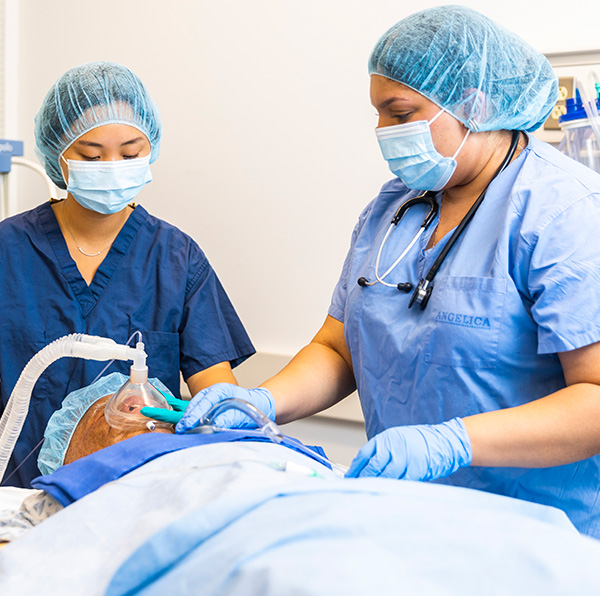
Want a career in nursing and already hold a BA or BS in another field?
Northeastern’s Accelerated Bachelor of Science in Nursing Program, offered at the university’s Charlotte, NC campus, is designed for those who already hold a bachelor’s degree in another field and wish to acquire a bachelor’s degree in Nursing with licensure as a Registered Nurse.
The Accelerated Bachelors of Science in Nursing is blended 16-month, full-time program combines online didactic coursework and hands-on learning experiences. Students work closely with nursing faculty to master the core skills necessary to excel in the nursing profession as a registered nurse. The program also prepares students to successfully take the National Council Licensure Examination for Registered Nurses (NCLEX-RN).

Why Charlotte, NC?
Northeastern University in Charlotte is home to Northeastern’s Center for Health Sciences . As a leader in health sciences, life sciences, and healthcare innovation, and as longtime members of the Charlotte community, we leverage our connections across the region to design health sciences and healthcare degree programs relevant to Charlotte’s growing health sector.
Degree: BS in Nursing (or 62 college credits) Start Dates: January, May, and September
Application Deadlines: Summer: March 15 Fall: July 19 Spring 2025: Nov 15 GRE: Not required Note: Not F1-eligible
Contact Information
Northeastern University School of Nursing Charlotte Campus 2151 Hawkins Street, Suite 800 Charlotte, NC 28203 Tel: 1-866-891-1490
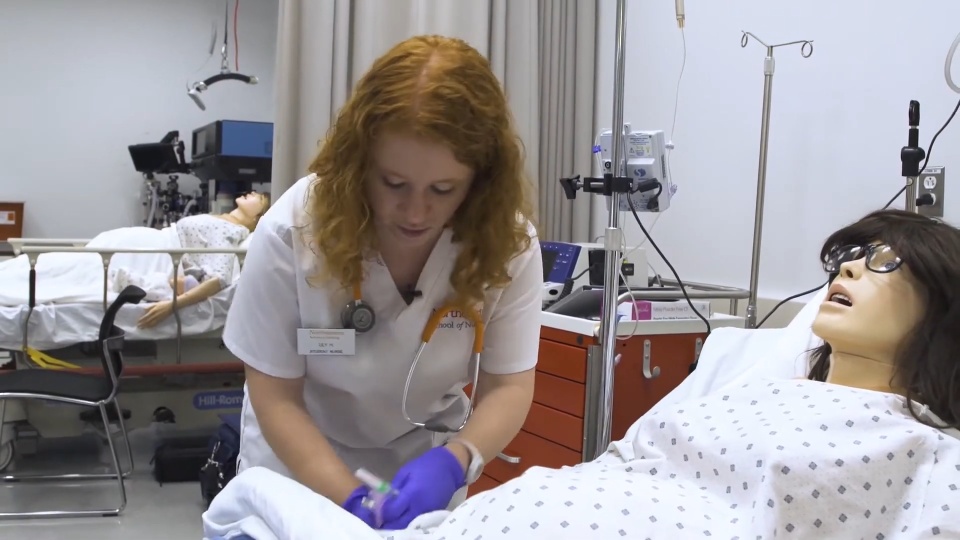
Video: Meet Lily Harris ’21
Meet Lily Harris ’21
The curriculum includes 67 credits of undergraduate coursework taken across 4 semesters. The majority of these credits are completed online through an e-learning platform that allows students to listen to lectures, submit assignments, complete interactive learning modules, and engage in discussion with faculty and classmates. Hands-on experience is achieved with a variety of clinical rotations and experiences in a skills and simulation laboratory.
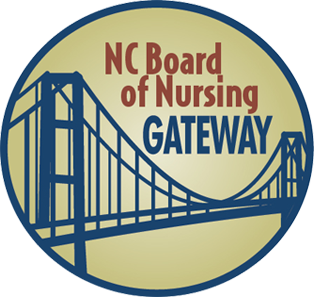
The prelicensure program at Northeastern University School of Nursing Charlotte campus is approved by the North Carolina Board of Nursing.
The Bouvé College of Health Sciences School of Nursing has an extensive network of clinical affiliations at health centers, major teaching and community hospitals and clinics that allow students to engage in clinical experiences covering a wide range of nursing specialties that include:
- Adult health
- Obstetrics and women’s health
- Behavioral and mental health
- Public health
- Management and leadership.
Handbooks and Manuals
Admissions requirements.
Applicants must have completed all prerequisite courses with a minimum grade of C or higher to begin the program. Science prerequisites (microbiology, chemistry, and anatomy and physiology ) must have been completed within the last 10 years. Non-science courses include statistics, developmental psychology, nutrition and a social science course.
All applicants are required to submit a personal statement in response to the questions outlined in the Personal Statement link, and upload a brief video (no more than 2 minutes in length) addressing specific questions as outlined in the video directions link.
The goal statement and video provide the School of Nursing a glimpse of the applicant’s personality and passion for nursing beyond what the written application can demonstrate.
Admissions Checklist
- Degree Requirements Applicants must have a Bachelor of Science or Bachelor of Arts degree from an accredited college or university.
- Undergraduate GPA of 3.0 or Better
- Official Test Scores Test of English as a Foreign Language (TOEFL) scores are required for all applicants who do not hold undergraduate or graduate degrees from U.S. institutions or institutions where English is not used. #3629 college code. The required iBT TOEFL score is 100.
- Letters of Recommendation Three letters of recommendation from professional references, one of which must be from an academic reference.
- Personal Statement What is your current career and why do you wish to transition to a career in nursing at this point in your life Describe how you plan to handle the return to school and the demands of full-time study. What characteristics do you believe you possess that will make you a good nurse and student leader? Provide an example of when you believe you demonstrated leadership qualities.

Connect with Us
Got questions? Were here to help.
Ready to jump in and apply?
Get more information
Tell us exactly what you’re interested in and get the information you need to make the right choice for you.

Army graduate program names award after Nursing’s Jim Reed
| The at Baylor University has named an award in honor of , an associate clinical professor in the ’s . “In keeping with the tradition of operational readiness and clinical excellence, the ‘Jim Reed Award for Clinical and Operational Excellence’ is awarded to the student that best exemplifies the critical thinking and adaptability needed for the battlefield nurse anesthetist,” the award announcement said. “This individual represents the core mission of preparing our future anesthesia providers for the battlefields of today and tomorrow.” Reed, who joined the faculty three years ago and earned his Bachelor of Nursing from the university in 1992, said, “I was completely surprised by the naming of this award, and it is a tremendous honor to have my name attached to it in perpetuity. It is tough to describe how much this honor means to me. “Given that this is the clinical and operational readiness award, it is even more of an honor to me, as that is where the rubber meets the road for our patients both in hospitals and in deployed settings. It is an honor to be an alumnus of the USAGPAN program and to continue that proud legacy of excellence here in our program at UArizona.” The USAGPAN started in 1981 and has been training most active-duty Army CRNAs in the specialty of field anesthesia, ensuring that graduates are qualified to carry out their duties. They are often the sole anesthesia provider in combat and field operations. “Lt. Col. Jim Reed is an Army nurse anesthetist who has exemplified the true meaning of battlefield anesthesia,” Col. Peter J. Attilio, PhD, CRNA, director of the USAGPAN, wrote in a letter announcing the new award. “Reed has been an emphatic proponent of operational readiness, engaging in the education of numerous nurse anesthetists in both military and civilian environments. His personal and professional achievements in both the practice and education of independent battlefield nursing anesthesia are emblematic of the goals of the USAGPAN.” Reed retired from the Army as a lieutenant colonel in 2011 after serving 27 years, 20 of which were on jump status as a paratrooper. He enlisted in the Army after high school and was part of an active-duty special forces unit in Massachusetts. He then served in a National Guard special forces unit while he was an undergraduate at the university. During his career in the Army, Reed completed 14 combat deployments, serving on a special mission unit surgical team that supported elite special operations troops. “Jim Reed is the perfect person to name this award for,” said , dean of the College of Nursing. “His dedication to country, service, the college and his students exemplifies not only the award but also the mission of educating students. We are extremely proud of him and his work.” “It has been very special to come home to do this important work at the College of Nursing,” said Reed, a native of Tucson. “I have a fantastic leadership team in , and , who have mentored and allowed me to flourish as a faculty member in the program. As they are both veterans, they understand the regimented style I have and the importance of academic rigor. Dr. Hoch is a tireless advocate for our program, our faculty and our profession.” |

UC College of Nursing celebrates outstanding preceptors and organizations

Teaching tomorrow’s advanced practice nurses remains essential to the ongoing success of the profession but, as a growing number of students enroll in graduate nursing programs across the country and demand for preceptors increases, students pursuing Master of Science in Nursing (MSN) and Doctor of Nursing Practice (DNP) degrees can face challenges.
In response, the University of Cincinnati College of Nursing has created and implemented several resources aimed at reducing known barriers to preceptorship and increasing the level of support offered to our preceptors.
"We assembled a team and designed an online platform presenting resources that facilitate preceptor readiness, management of contracts, faculty engagement, seamless communication and increased recognition of preceptors,” says the college’s Assistant Dean of Academic Affairs Jamie Heck, PhD. “Removing those barriers allows preceptors to focus on shaping a meaningful and stimulating student experience.”
To celebrate and thank outstanding practitioners and partners whose commitment inspires the next generation of advanced practice nurses, in 2022 the college launched the Outstanding Graduate Preceptor Award and the Outstanding Organization Award , followed by the Outstanding Prelicensure Preceptor Award, in 2023.
In Spring 2024, 59 advanced practice and 45 prelicensure nursing students nominated their preceptors for this year’s awards. Two separate committees — one for undergraduate and one for graduate — reviewed nominations and chose the following award recipients:
- Rita Hill, Cincinnati Children’s Hospital Medical Center
- Toni Lansdell, University of Cincinnati Medical Center
- Stephanie Burbick, Pediatric Associates in Youngstown, OH
- Vicky Magobet, Diamond House Detox in Sacramento, CA
- Lindner Center of HOPE in Cincinnati, OH
- ACE Health and Wellness Solutions in Sacramento, CA
Precepting UC College of Nursing graduate students allows providers to stay current with evidence-based practice, build relationships with future peers in the profession and share their vision of the advanced practice nursing role, among other benefits.
“I try to precept as many students as I’m able to, as I enjoy teaching and learning from them, who keep me up to date on practice beyond pediatrics,” shares award recipient Stephanie Burbick, FNP. “Students from UC always join clinical experiences well prepared.”
Associate Professor and Chair of Advanced Practice Department Kim Mullins, DNP, APRN-CNP, AOCNP, is thankful for the opportunity to show preceptors their impact extends beyond the hands-on component of nursing education.
“We are glad to offer students the opportunity to share how deeply they were influenced by these role models and to show appreciation for our preceptors,” Mullins says.
The comments below were included in nominations and provide insight into how preceptors and clinical experiences have significantly influenced our students’ path in the nursing profession, their interactions with others and their approach to making well-informed decisions.
“ Darcy was encouraging and helpful in the process and worked as a key catalyst in my education. I have grown so much through this experience. I feel well-prepared to practice because she has empowered me in multiple ways and increased my confidence. ” — Adria Strable
“ I had some hesitation if I made the right decision in going back to school to become an NP. Oncology was always my passion, but I was scared that I may be stepping away from patient care and not like it. After my clinical rotation with Marti, I knew without a doubt that this was the right move for me. Watching her work with these patients and having more involvement in their care decisions and letting me mirror her role gave me the confidence I needed that this was what I was meant to do .” — Alanna Iorio
“ I believe that when the student is ready, the teacher appears. That the right person is going to come along at just the right time and that understanding and confidence will fall into place. Marie was that mentor for me. It is like the symbolic passing of the lamp that we have all participated in as nurses... When it is my turn, I hope I can contribute to someone's transition and learning experience like she has with mine .” — Evelyn Robbins
“ Dr. S. has been instrumental in my growth, offering a blend of academic rigor, clinical excellence, and emotional support. Her encouragement and positive feedback have not only facilitated my learning but also instilled a profound sense of confidence and purpose as I advance in my nursing career ." — Marie Akers
“ I want to be like Dr. F. ‘when I grow up!’… She is not afraid to speak up, advocate for, or defend what she believes in. She removes barriers and enables women to be the best versions of themselves .” — Michelle Duell
“ Before my clinical experience with Karyn, I considered dropping out of the program. After I was placed with her and saw the incredible, life changing impact she has had on her patients' lives, I was inspired to continue in hopes that I can make the same impact someday .” — Holly Roberts
For their awards, preceptors receive a commemorative plaque and a cash award; organizations receive a commemorative plaque.
Interested in precepting our students? Learn more and let us know here .
- College of Nursing
Related Stories
New sites available now on bearcats landing.
April 29, 2021
Learn more about the new sites launched on Bearcats Landing, UC's new intranet.
Future of Nursing 2020-2030 report to be released
May 5, 2021
The Future of Nursing 2020-2030: “Charting a Path to Achieve Health Equity” is being released on Tuesday, May 11. Greer Glazer, PhD, dean of the University of Cincinnati College of Nursing is one of the 15 people who served on the committee composing the report. The report explores how nurses can work over the next decade to reduce health disparities and promote equity, while keeping costs at bay, utilizing technology and maintaining patient and family-focused care.
UC Day of Giving kicks off with celebration of scholarship gift
April 15, 2021
UC Day of Giving is kicked off with an important scholarship gift for nursing and engineering.

- Appointments

- Resume Reviews

- Undergraduates
- PhDs & Postdocs
- Faculty & Staff
- Prospective Students
- Online Students
- Career Champions
- I’m Exploring
- Architecture & Design
- Education & Academia
- Engineering
- Fashion, Retail & Consumer Products
- Fellowships & Gap Year
- Fine Arts, Performing Arts, & Music
- Government, Law & Public Policy
- Healthcare & Public Health
- International Relations & NGOs
- Life & Physical Sciences
- Marketing, Advertising & Public Relations
- Media, Journalism & Entertainment
- Non-Profits
- Pre-Health, Pre-Law and Pre-Grad
- Real Estate, Accounting, & Insurance
- Social Work & Human Services
- Sports & Hospitality
- Startups, Entrepreneurship & Freelancing
- Sustainability, Energy & Conservation
- Technology, Data & Analytics
- DACA and Undocumented Students
- First Generation and Low Income Students
- International Students
- LGBTQ+ Students
- Transfer Students
- Students of Color
- Students with Disabilities
- Explore Careers & Industries
- Make Connections & Network
- Search for a Job or Internship
- Write a Resume/CV
- Write a Cover Letter
- Engage with Employers
- Research Salaries & Negotiate Offers
- Find Funding
- Develop Professional and Leadership Skills
- Apply to Graduate School
- Apply to Health Professions School
- Apply to Law School
- Self-Assessment
- Experiences
- Post-Graduate
- Jobs & Internships
- Career Fairs
- For Employers
- Meet the Team
- Peer Career Advisors
- Social Media
- Career Services Policies
- Walk-Ins & Pop-Ins
- Strategic Plan 2022-2025
Tips for Starting and Advancing Your Nursing Career
- Share This: Share Tips for Starting and Advancing Your Nursing Career on Facebook Share Tips for Starting and Advancing Your Nursing Career on LinkedIn Share Tips for Starting and Advancing Your Nursing Career on X

Tips for Starting and Advancing Your Nursing Career was originally published on Vault .
Nursing is one of the most rewarding careers—and one of the fastest-growing (in part because it's largely immune to advances in AI ). As a result, many people looking for meaningful work have found their passion in nursing. And whether you're a veteran practitioner or nursing hopeful, here are five ways to easily and quickly advance your career.
1. Take online extension courses
Life is busy. As a result, many practitioners prepare for work in the field by taking advantage of available extension courses, such as an MSN online program. By enrolling in an online Master of Science in Nursing program, today's emerging healthcare professionals up their career game while managing to stay on top of their day-to-day responsibilities.
In leading MSN programs across the U.S., fledgling nurse practitioners work hand-in-hand with experienced healthcare professionals. By doing so, they receive the benefit of an exceptional educational experience. During training, nursing candidates learn about the latest medical best practices. At the same time, nurse educators teach students the essential critical thinking skills that they'll need to excel in the field.
2. Find a mentor and network
The more help you have during your educational journey, the better prepared you are to work in the field. A mentor can help to guide your decision-making during your training and beyond.
By connecting with a mentor, you can access their experience and expertise as you explore various career opportunities. Begin your search for a mentor by speaking to others who are already working in a specialty that addresses your interests. There's no need to feel intimidated during your mentor search. Most people are more than happy to talk about their careers.
It's also a good idea to network with like-minded professionals. You should start networking as soon as you enter school and continue to do so throughout your career. Don't wait for networking events to come up to make connections. Networking is as simple as exchanging numbers with your peers to share ideas and talk about the healthcare profession.
3. Consider this growing nursing field
Forensic nursing is expanding faster than many other jobs in the U.S. The field emerged in the 1980s, when the need arose for professionals who are experienced in both legal and healthcare matters. During that time, the legal system needed healthcare professionals who could identify injuries and evaluate various scenarios. Trained forensic nurses are highly qualified to fulfill these roles. They can accurately document injuries and traumas and have the fortitude to deal with difficult situations such as deaths and serious injuries.
If you choose to work in forensic nursing, you could work in one of several environments. For instance, you may find employment in a:
- Community anti-violence agency
- Community crisis center
- Coroner's office
- Correctional center
- General medicine hospital
- Medical examiner's office
- Psychiatric hospital
During your career as a forensic nurse, you may find yourself working on cases that involve anything from arson to medical malpractice. You could deal with dangerous situations such as bioterrorism, drug abuse, and homicide. The legal system may also task you to conduct autopsies or capture crime scene photography.
4. Prep for interviews
For any nurse practitioner specialization, you need to make it past an interview to land a job. By preparing for the interview , you'll have a better chance of success.
It may seem counterintuitive, but it's imperative to get a good night's sleep before the interview. You should try to sleep at least a full eight hours before the big day. It's also essential that you wear the right clothing for the interview. Women interviewees should remain cautious about wearing too much makeup or perfume, and all job candidates should wear a suit. Although many organizations have casual dress days, a suit is standard interview attire, unless you've been informed otherwise.
5. Keep the long run in the mind
After you've landed a job as a nurse practitioner, you'll want to do as much as possible to help people. However, it's important to remember that you must also consider your own wellness. Therefore, avoid common hazards of the profession, such as burnout .
Stress is a part of work in the healthcare profession. Anything from unrealistic career expectations to dealing with mortality events can serve as a trigger. Over time, a series of stressful work-related events can lead to emotional health problems. However, if you remember to take care of yourself in the field, you'll enjoy a long, satisfying career as a nurse practitioner.
Sarah Daren has been a consultant for startups in multiple industries, including health and wellness, wearable technology, nursing, and education. She implements her health knowledge into every aspect of her life, including her position as a yoga instructor and raising her two children. When she’s not watching the New York Yankees play, Sarah enjoys practicing yoga and reading a good book on the beach.

COMMENTS
The PhD program prepares the nurse scholar to develop and conduct scientific research that advances the theoretical foundation of nursing practice and healthcare delivery. The program is designed to prepare nurses for careers as research scientists, often in academic or governmental positions.
Ph.D. in nursing programs range from $400 to over $2,300 per credit hour at more distinguished institutions. However, several universities will fund your Ph.D. tuition itself or through a federal research grant.
The PhD Program in Nursing prepares nurse scholars who will advance nursing science and promote equitable health outcomes and care systems, with a focus on social determinants of health (SDOH). Students will acquire the knowledge and skills necessary to design, implement, and evaluate innovative models of care that improve health outcomes ...
Costs & Tuition. We are committed to assisting all full-time PhD students for four years of tuition, fees, living stipend, and health insurance. You may be funded internally or externally, depending on the options available. The doctoral program leadership will determine which funding is most appropriate for all incoming students.
PhD Program in Nursing. Mentoring nurse scientists of the future is our priority. PhD Program. Financial Support. Full-time interdisciplinary educational experience that is 100% funded for four years. Meet the Students. Our students bring diversity in personal, educational, and clinical experience.
Our doctoral programs prepare students to lead health care innovations and influence policy—founded on the science and theory of nursing, analytic principles, evidence-based practice, and strong leadership —at the highest organizational level. With access to world-renowned nursing faculty, cutting-edge facilities, and opportunities for interdisciplinary collaboration throughout the Johns ...
Application Deadline: November 15, 2023. Decisions Posted: Early 2024. Program Start Date: September 2024. The Columbia University School of Nursing PhD program is a full-time, research-intensive curriculum that prepares nurses for careers as nurse scientists who will conduct research across a broad range of populations and health conditions.
The PhD program in Nursing at UNC is one of the best in the country. We: Prepare nursing scholars to conduct scientific studies consistent with the program vision: to enhance the health of individuals, families and communities; increase the effectiveness of health care systems; and further the translation of research into practice. Have ...
Emory's PhD program in Nursing is committed to improving human health, the experience of health, and the provision of health care through the discovery of new knowledge and its translation into practice. The program is designed to prepare researchers who want to revolutionize health care and improve health outcomes for diverse populations.
A Nursing PhD program supporting nursing leaders who advance the field, their careers, and make key clinical contributions for a healthier world. A longstanding commitment to theory and research is what makes the PhD in Nursing program at the University of Connecticut (UConn) something special.
The PhD program fully prepared me for my role as a nurse scientist. The faculty were experienced and knowledgeable, and challenged me to broaden my understanding of research. Cheryl Krause-Parello (PhD, RN, FAAN), Class of 2007, has received numerous accolades for her work, including AAN Edge Runner designation from the American Academy of Nursing.
Quickview. Degree: Nursing PhD Application deadline: June 1 GRE: Required Study options: Full-time/part-time Please Note: PhD students in the Bouvé College of Health Sciences may not request enrollment deferrals. If you are admitted for a given term but wish to be considered for a future term instead, you must re-apply to the program in order to be considered for admission and funding.
The PhD in Nursing Science program is designed for diverse nurse scholars who are interested in pursuing research and academic careers in public or private health care. Admitted students seek to advance nursing through scientific discovery, and they hold bachelor's degrees in nursing (or BSN equivalent) and master's degrees in nursing (or a ...
Our PhD program prepares you for a career in nursing education, research, health systems, or clinical science to enhance the care of individuals and families across the lifespan. PhD-prepared nurses lead the profession, teach the next generation of nurses, and expand nursing's impact on health policy and public health.
The PhD in nursing program prepares students for careers as scholars, nurse scientists., and academics ready to contribute to nursing science, knowledge, theory, and practice through systematic inquiry. By graduation, PhD in nursing students will: demonstrate advanced knowledge of nursing, related sciences and humanities, and methods of inquiry.
The PhD program prepares nursing scholars who will generate and transmit knowledge that is fundamental to the discipline of nursing and to nursing practice. The full scope of nursing concerns related to direct, indirect, and institutional care, as well as the social and policy factors shaping that care, are within the purview of the degree ...
Earn a GW Nursing Doctor of Philosophy in Nursing to advance the theoretical foundation of healthcare delivery and nursing practice. Our PhD program is designed to equip graduates with the knowledge and skills in theoretical, methodological, and analytical approaches needed to conduct research and apply knowledge in the fields of nursing science and healthcare.
The University of Michigan School of Nursing Ph.D. program, which began in 1975, produces leading scientists who advance knowledge for the discipline of nursing and the health sciences. The program is predicated on a strong foundation of clinical expertise framed by a nursing perspective; education at the doctoral level builds upon and extends ...
Nursing. This Doctor of Nursing (PhD) program is a research-focused degree that prepares nurse scientists for research-intensive academic careers. The curriculum delves into the evaluation of both behavioral and biological theories related to health and illness. You'll gain the expertise to design and conduct rigorous clinical nursing studies ...
11. Summer (PhD Year 1) NURS 818: Research Practicum*** P: Completion of 2 credits of NURS 819. 2. Total: 2. Fall (PhD Year 2) NURS 811: Measurement of Nursing Phenomena P: NURS 840, NURS 841, NURS 850, NURS 851, NURS 814, NURS 815 and recommend concurrent enrollment in NURS 816 or permission of the instructor. 3.
8) Villanova University - Villanova, PA. If you are looking at an online Ph.D. in Nursing program to attain the highest nursing degree, then you could consider Villanova University's Ph.D. that prepares you to conduct clinical and educational based nursing research towards better nursing practice and education.
The program is designed to be completed in a five-year, full-time plan of study. The program highlights both a structured teaching and research residency. The plan below is a sample of the DNP Advanced Practice/PhD curriculum. For a dual degree, all coursework must be completed before either degree is awarded.
The PhD program prepares nurse scientists to provide leadership through scientific inquiry and innovative practice. Faculty of the Ross and Carol Nese College of Nursing believe that significant learning at the doctoral level occurs best within a mentor-type model. Highly individualized plans of study provide each student the opportunity to ...
In the PhD in Nursing Leadership program, you will explore a diverse range of courses that can help equip you with skills and knowledge for leadership roles within healthcare. Courses such as ...
The School of Nursing and Health Studies (SONHS) Graduate Program tracks prepare nurses to assume advanced practice roles in their profession. ... The MSN Adult-Gerontology Acute Care Nurse Practitioner and Family Nurse Practitioner Programs at the University of Miami School of Nursing and Health Studies are accredited by the Commission on ...
They provide information and support patients and families to help them understand risks and their testing options. Genetic counselors have an important long-term impact on public health practices as they are involved in population-based screening programs, lobbying for public policy, public health-related research, and chronic disease programs.
Northeastern's Accelerated Bachelor of Science in Nursing Program, offered at the university's Charlotte, NC campus, is designed for those who already hold a bachelor's degree in another field and wish to acquire a bachelor's degree in Nursing with licensure as a Registered Nurse.. The Accelerated Bachelors of Science in Nursing is blended 16-month, full-time program combines online ...
The U.S. Army Graduate Program in Anesthesia Nursing at Baylor University has named an award in honor of James "Jim" R. Reed, DNP, CRNA, an associate clinical professor in the University of Arizona College of Nursing 's DNP-Nurse Anesthesia Program. ... PhD, dean of the College of Nursing. "His dedication to country, service, the ...
Teaching tomorrow's advanced practice nurses remains essential to the ongoing success of the profession but, as a growing number of students enroll in graduate nursing programs across the country and demand for preceptors increases, students pursuing Master of Science in Nursing (MSN) and Doctor of Nursing Practice (DNP) degrees can face challenges.
By enrolling in an online Master of Science in Nursing program, today's emerging healthcare professionals up their career game while managing to stay on top of their day-to-day responsibilities. In leading MSN programs across the U.S., fledgling nurse practitioners work hand-in-hand with experienced healthcare professionals.